A Quintessence of Civility

“As a quintessence of civility, the bee works always for the common good, and can no more be bribed or corrupted than a flower.”
CLAIRE PRESTON Bee, London 2006


“As a quintessence of civility, the bee works always for the common good, and can no more be bribed or corrupted than a flower.”
CLAIRE PRESTON Bee, London 2006

What a year we had! Besides the horror and suffering it brought to so many people, 2022 will go down in history as a year of paradigm shifts. 2023 and 2024 will show us whether the “turning points” of 2022 were sustainable. Will politicians now have the strength and courage to set a decisive course for the future of the planet and upcoming generations? Or will we remain stuck between right-wing and left-wing populism in day-to-day politics?
The enormous complexity of balancing our environment, our economy and our social fabric requires the highest level of professionalism, consistency and cooperation, plus the courage to take risks.
European politics, and especially German politics, made decisions after 24 February 2022 that seemed completely unthinkable before. The sudden courage to change course was unexpected and really encouraging. A lot happened, and one should not belittle what was done – to support Ukraine, to secure energy supplies and to cushion the economic impact on the economy and households. Yes, everything could have been done better and more efficiently. Yes, mistakes were made. But the changes were appropriate and courageous. Courageous decisions are
always prone to error. After 1989 and 2004, 2022 was one of the most moving years in European politics in post-war history.
The next two years will show whether the multiple crises in Europe this year will contribute to the realisation that security, the environment, energy and the social fabric of our continent are much better off when nation states act together with the European Union and not on their own.
Will we lose courage or won’t we? Will the strategically indispensable course that has been set for Europe once again fall victim to small-state thinking? Can Europe resume the great developments of the first 50 years of its post-war history? Or will we sink into political irrelevance for good?
The next few years will be exciting and set the trend.
ERSTE Foundation looks to the future with confidence and will use this confidence and its tools to make Europe a continent that is highly attractive to young people from all over the world due to the continent’s political, economic, cultural and social appeal.
Photo: Peter M. MayrWe have already proven in the past that we can boldly shape the future. In 2022, we had an anniversary to celebrate. 25 years ago, Erste österreichische Spar-Casse, a small savings bank in Vienna, took a historic step. It merged with GiroCredit to form Erste Bank der österreichischen Sparkassen Bank AG and went public with the equivalent of 510 million euros – the largest IPO on the Vienna Stock Exchange to date. The historic savings bank association of 1819 agreed to allow the Anteilsverwaltungssparkasse (share management savings bank), which had held the ownership rights to Erste Bank since 1993, to be transformed into the newly established ERSTE Foundation in 2004.
Erste Group acquired savings banks in Central, Eastern and South-Eastern Europe, most of which it had historical ties with. This has created one of the largest banking groups in Central Europe. And with ERSTE Foundation, there is a core shareholder that consistently bears its responsibility towards the societies in which the bank successfully operates by investing in strong cooperation, stable democracies, vibrant culture and, last but not least, financial health for all.
When we look back, this development seems to have happened as a matter of course. But it did not. It was the result of (mostly) good decisions and the people who implemented them.
We were therefore very sad to learn that two important people are gone forever – people who had accompanied ERSTE Foundation for many years and who had made its work their own through their absolute commitment. On 13 March 2022, the former Austrian Vice Chancellor Erhard Busek passed away at the age of 80. He had been a friend of ERSTE Foundation from the beginning, a great supporter of our initiatives for a united Europe. From 2006 to 2014, he was the chairman of ERSTE Foundation’s advisory board. Under his aegis, a major joint project of European foundations, the European Fund for the Balkans, was launched at a time when
hopes were still high that all the countries in Europe could soon become members of the European Union. We have relied on his vast network of contacts for many activities and plans, on his reputation as an exceptional, trustworthy politician, and on the comprehensive knowledge he used until his death to make Europe a better place for all people.
Mario Catasta lost his brave battle with a serious illness in September 2022. We feel profound gratitude for everything he did for Erste Group and ERSTE Foundation during his life. As chairman of ERSTE Foundation’s management board from 2020 to 2021 and as a member of the supervisory board, he played a decisive role in shaping the further development of ERSTE Foundation. Mario was a valuable colleague and dear friend whom we will not forget.
The supervisory board would also like to thank its long-time member Ilse Fetik. Ms Fetik, who was appointed to the supervisory body of the core shareholder by the works council of Erste Group in accordance with the articles of association, retired last year. I would also like to expressly thank the employees of ERSTE Foundation for the work they have done this year, and for their commitment and creativity. On behalf of the entire supervisory board, I wish you and all of us courage, farsightedness, determination and good luck as we tackle the challenges that lie ahead.
Andreas Treichl ChairmanAndreas Treichl (Chairman)
Bettina Breiteneder
Maximilian Hardegg
Barbara Pichler
Franz Portisch
Johanna Rachinger
Philipp Thurn und Taxis
Markus Trauttmansdorff
Manfred Wimmer
Kurt Zangerle

Are you also wondering whether things will ever get better? As we review last year’s events, we find ourselves once again coming to terms with a major, unforeseen catastrophe. It was amid the pandemic’s fourth or fifth wave when, on 24 February 2022, we were stricken with a new horror that has brought death and destruction to people in our immediate neighbourhood. The Russian war of aggression against Ukraine, which began in 2014 with the illegal annexation of Crimea, turned into a brutal assault on the entire nation and a threat to Europe.
ERSTE Foundation joined many others in responding swiftly to the escalation of the war and the suffering of the Ukrainian people that resulted from it. We provided a special budget of one million euros, which was allocated to three areas: to the brilliant aid organisations operating at the Ukrainian border in Slovakia, Hungary, Romania and Moldova; to an emergency fund for Ukrainian media and a fund for independent media in exile, aimed
at reinforcing independent news coverage, which is even more important in times of war; and to cultural initiatives in Ukraine – such as the Kyiv Biennale, which we have been supporting for many years – and in Austria. They offer a place for cultural workers, both those who bravely hold out and those who have fled, to ensure their physical and creative survival. Read more about it from page 14, where you will also find out how Erste Group’s and the savings banks’ donations and hands-on support completed the great #StandWithUkraine package.
2022 was totally overshadowed by the war. On 20 May, we initially intended to celebrate World Bee Day by gathering those close to ERSTE Foundation, people who stimulate us and collaborate with us in projects. The idea was to meet in a casual setting to share ideas about how we aim to jointly tackle the tasks of the future. We abandoned this plan in the face of war and violence. It was not the right time for casual meetings. Rather, it was time
The Management Board of ERSTE Foundation: Boris Marte (CEO), Eva Höltl, Martin Wohlmuth, Wolfgang Schopf (Deputy CEO). Photo: Peter M. Mayrfor Europe to be quick in making important decisions. So we teamed up with the Institute for Human Sciences and at short notice organised the Time to Decide Europe Summit on 20 May. After welcoming speeches by the Austrian federal president, the president of Estonia and the Ukrainian foreign minister, 26 experts from 14 countries spent a whole day discussing how to reconstruct Ukraine and what lessons the Balkans had taught us about war and the post-war period. We also sought to reflect on the future of Central Europe, the European Union and not least Russia (see p. 30).
December 2022 saw the first of five planned Culture Policy Labs held at ERSTE Foundation in cooperation with the Ukrainian Ministry of Culture and Information Policy, with topics ranging from Ukraine’s cultural heritage and its reconstruction after the war to the importance of culture in the self-image of a modern European country that Ukraine wants to become.
Parallel to the urgent geopolitical events and humanitarian catastrophes in Europe, a completely different crisis has long been looming over Austria and other Western European countries. Demographic trends will soon mean that ever more members of an increasingly ageing population will need to be cared for by fewer and fewer families. ERSTE Foundation founded a start-up, Two Next, in 2021 to develop new methods to deal with structural social problems of this kind. Now there’s a new app developed with all large
Austrian care organisations that digitally connects informal carers with professional counsellors from the care sector. The oneyear pilot phase of the app Alles Clara began in 2022. Go to page 66 to find out why this tool not only eases the burden for relatives in emotionally challenging situations but is also a great opportunity for professional careers.
We embarked on new paths in social banking in 2022 by adding the first innovative projects to our portfolio that use impact investing to integrate social entrepreneurship into social change processes. We are pleased to report that more than 250,000 people have had a learning experience in finances at Erste Financial Life Park (FLiP). That’s a quarter of a million people, mostly school children and young people, who have learned at FLiP in a playful way how to best manage their money. In the summer of 2022, “Six Fixes for the Balkan Six” brought together a group of prominent Europe’s Futures fellows, who sought to work out six practical proposals to give fresh impetus to the stalled EU enlargement process for the Balkan states.
In 2021 we started working on reformulating our foundation’s mission. A new policy paper uncovers the foundations of our past on which we can build our future: for a common idea of ERSTE Foundation and Erste Group – as an undertaking made by people for people. We joined forces with prominent figures from academia, literature, art and business to trace our own mandate and put it into new words. We asked ourselves what reality we
live in, what challenges the world around us is facing, and how we can react adequately. We would like to thank all those involved, in particular Christian Seiler, who guided us with great sensitivity and understanding and used his linguistic skills to help us find the right words. From page 42, you can read his description of this open process.
This new compass will guide us through the labyrinth of crises and challenges that lie ahead. We have also gained new companions, while others have left. After 17 years of distinguished service in various roles, including that of CEO of ERSTE Foundation from 2012 to 2016 and most recently that of senior advisor to the board, Franz Karl Prüller retired at the end of 2022. We wish him all the best!
The motto of this year’s report, “A Quintessence of Civility”, is borrowed from the beautiful book Bee by Claire Preston. She has a high opinion of bees (rightly so, we think) and, in terms of ethos, puts them on a par with the friendly ecosystem they live in and on. In our updated policy paper, in which we describe our ecosystem of philanthropy and responsibility, we put it this way: Bees take what they need by giving what is needed. We would like to live in such a world. That is what we are working for.
Boris Marte CEO Wolfgang Schopf Deputy CEO Eva Höltl Board Member Martin Wohlmuth Board MemberERSTE Foundation is a private savings bank foundation under the Austrian Savings Bank Act. In accordance with its statutes, the foundation must perform two tasks in parallel: serving the common good and holding a permanent stake in Erste Group Bank AG.
In order to serve the common good, ERSTE Foundation strives to invest part of its dividend from its stake in Erste Group Bank AG (Erste Group) in philanthropic projects. Each year, the bank’s managing board submits the proposed dividend payment for approval at the general shareholders’ meeting. Due to the stresses that it expected the financial sector to be put under as a result of the Covid-19 crisis during the past few years, the European Central Bank (ECB) had issued a recommendation for European banks to only pay a limited dividend. After this recommendation was withdrawn, Erste Group was again able to approve a scheduled dividend in 2022. Thus, a dividend of EUR 1.60 per share was paid in May 2022. ERSTE Foundation used this dividend income to finance ongoing operations and ERSTE Foundation grants, and, on the other hand, to reduce foundation liabilities by EUR 30 million. In addition, ERSTE Foundation further increased its stake in Erste Group.
In accordance with the foundation statutes, ERSTE Foundation must have a permanent and qualified stake in Erste Group. The foundation increased its stake in Erste Group’s share capital by 0.3 percentage points during the 2022 fiscal year by acquiring shares on the stock exchange.
ERSTE Foundation forms a syndicate, together with the savings bank group consisting of Austrian savings banks, numerous savings bank foundations and share management savings banks as well as Vienna Insurance Group/Wiener Städtische Wechselseitiger Versicherungsverein–Vermögensverwaltung. Since the savings bank group also bought shares in Erste Group in 2020, the syndicate’s stake increased by almost 2 percentage points to 23.9% of voting rights in Erste Group.
The contract that forms the basis for this syndicate would have expired in 2022. It was extended until 2032. The syndicate agreements entitle ERSTE Foundation to influence how contracting partners vote at Erste Group supervisory board elections. The savings bank group, which collectively holds a syndicate share of around 7.3%, currently has the right to nominate two members of Erste Group Bank AG’s supervisory board.
In the past, ERSTE Foundation supported Erste Group in its regional and national investments and therefore repeatedly participated in Erste Group’s capital increases, consequently incurring liabilities. ERSTE Foundation’s debt at year-end 2022 stood at EUR 170 million. ERSTE Foundation currently has a direct stake of 11.55% in Erste Group Bank AG.
Challenging environment weighing on share price
After posting its second-highest gain last year since going public in 1997, the Erste Group share saw a strong start to the year, but then suffered significant losses in the wake of geopolitical events. Strong operating performance, solid asset quality and cost of risk forecasts were not acknowledged by the market. The key themes were macroeconomic developments (specifically GDP growth, inflation and labour market data) and their impact on income components as well as the introduction of windfall taxes. It was only in the final quarter of the reporting period, after the release of better-than-expected results, especially for net interest income, that the share recovered some of the ground it had lost. Despite these gains, the Erste Group share was down disproportionately versus the European banking index and, at its year-end closing price of EUR 29.90, was 27.7% lower than at year-end 2021. It hit its low at EUR 21.66 on 26 August and its high at EUR 44.98 on 9 February.
25th anniversary of Erste Group’s IPO
25 years ago, on 4 December 1997, Erste Group went public in an IPO with a volume corresponding to EUR 510 million, the largest-ever share issue in Austrian stock market history at the time. The IPO laid the foundation for Erste Group’s growth in Central and Eastern Europe. The capital it raised also helped fund investments into technology and digital innovation. Combined with later supplemental public offerings, the stock market listing played a key role in Erste’s growth from a regional savings bank in Austria to a leading financial services provider in Central and Eastern Europe with around 16 million customers in seven core markets.
The 2022 fiscal year marked the first time Erste Group offered its employees a new employee share programme, which was also extended to the employees of ERSTE Foundation. Joining the programme not only enables employees to participate directly in the success of Erste Group but also to become co-owners of the company. Approximately 30,000 employees took part in the programme in 2022. This also strengthened Erste Mitarbeiterbeteiligung Privatstiftung (Erste Employees Private Foundation), which bundles the voting rights of the shares acquired under the employee share programme and exercises those rights in a uniform manner.
The number of shares of Erste Group Bank AG remained unchanged at 429,800,000 during the 2022 fiscal year. At year-end 2022, Erste Group’s market capitalisation stood at EUR 12.9 billion, 27.7% lower than at year-end 2021 (EUR 17.8 billion). The Erste Group share is listed on the stock exchanges of Vienna, Prague and Bucharest. Its main stock exchange is Vienna, where its trading volume averaged 820,277 shares per day in 2022.
Shareholder structure as of 31 December 2022 by investors (in %)
Total number of shares: 429,800,000
Project implementations and grants 2022
103 implemented or supported projects
Wiener Städtische Wechselseitiger Versicherungsverein* ERSTE Foundation* Savings banks and savings bank foundations*
Identified trading 1%
Employees*
Private investors in Austria
Funding for project partners EUR 9 m
Total: EUR 11.4 m
Direct project expenses
International institutional and private investors
* ERSTE Foundation controls 23.9% of shares in terms of the voting rights at Erste Group's supervisory board elections (including 11.35% from the shares of the savings banks, the private savings bank foundations, Wiener Städtische Wechselseitiger Versicherungsverein and Erste Employees Private Foundation) and directly holds 11.55% of Erste Group.
**Start-up funding was provided to Two Next.
Performance of the Erste Group share and major indices (indexed)
Erste Group Share
100 50
31.12.2022 1.1.2022
Austrian Traded Index (ATX) DJ Euro Stoxx Banks On 29 March 2022, volunteers cover a monument for Princess Olga, the Apostle Andrew as well as Cyril and Methodius in the historic centre of Kyiv with sandbags to protect it from Russian attacks.
On 29 March 2022, volunteers cover a monument for Princess Olga, the Apostle Andrew as well as Cyril and Methodius in the historic centre of Kyiv with sandbags to protect it from Russian attacks.
Like many other organisations and individuals around the world, ERSTE Foundation contributed to financing immediate relief efforts shortly after war broke out in Ukraine. In March 2022, it provided a special budget of one million euros for short and medium-term aid to address the effects of the war on the people of Ukraine. The foundation was able to draw on its long-established networks in civil society in Central and Eastern Europe. In close coordination with the teams of Erste Group’s Social Banking departments in Slovakia, Hungary and Romania, ERSTE Foundation also supported NGOs in the border region. These aid organisations have been helping people who have fled to these countries. In Ukraine itself, the foundation has joined forces with Ukrainian and European partner foundations to provide logistical assistance to civil society organisations, including cultural initiatives and independent media, and to ensure their safety and evacuations where necessary. Finally, in Austria, we work with partner organisations to offer aid programmes to the people who have arrived in our country.
“Despite all the suffering, the great solidarity and the emotional and physical commitment of numerous helpers, as well as their financial and logistical support, inspire us with courage.”
Franz Karl Prüller, who coordinates ERSTE Foundation’s Ukraine aid efforts, says: “By the end of 2022 we were supporting more than 40 projects; most of them provide direct refugee aid, but they also involve cultural initiatives and support independent journalism. However, as we keep getting new requests, we will have to think about increasing our special budget once it is exhausted, since the war is continuing with unabated brutality and the victims continue to need our absolute solidarity and support.” Prüller has visited many projects himself. “The work of these mostly very local organisations, largely voluntary and with few resources, is extraordinary. Despite all the suffering, the great solidarity and the emotional and physical commitment of numerous helpers, as well as their financial and logistical support, inspire us with courage and give confidence and new hope to so many people.”
Erste Group, whose core shareholder is ERSTE Foundation, and the savings banks also helped with a wealth of measures and large donations. They ranged from providing exchange services for Ukrainian currency in cash when refugees first arrived in Austria and opening a day centre for refugees at the group’s headquarters in Vienna to rendering volunteer work and regularly appealing to employees and customers to donate – which resulted in a total of 11 million euros in donations. Even Erste Group’s online banking tool George, which is also available in the countries bordering Ukraine – Hungary, Slovakia and Romania –, was updated to include a Ukrainian-language version.

Since the war began, the Nova Simja (“New Family”) aid organisation in Ukraine has extended its support to children from refugee families and the wounded. It also offers therapeutic support to the volunteers. We received this report in late June 2022. Support services continue unabated in 2023.
“Time flies by. But for us, time stopped on 24 February 2022.” Tanja Berezhnaya is a project coordinator at the rehabilitation centre of the Nova Simja (“New Family”) aid organisation. Since the war started, she and her team have been working day and night in extreme conditions. Located in Chernivtsi in southwestern Ukraine, the rehabilitation centre usually specialises in offering care to children from families with addiction problems and provides early addiction prevention services to adolescents and young adults who have displayed signs of drug use. ERSTE Foundation has been providing funding to Nova Simja for many years to enable this work.
Since the Russian war of aggression against Ukraine began, Nova Simja has been forced to extend its support to children from refugee families and the wounded who are drug addicts and/or struggling with an HIV diagnosis. Tanja Berezhnaya describes the situation after the war broke out: “Our regular work has not decreased but increased. We are currently supporting eight refugee reception centres, but the need is huge. We have set up psychological recovery spaces and equipped them with board games and toys. Our psychologists use art therapies with the children, while social workers help them cope with their lives, which have been turned upside down. We supply the soup kitchens with food, ensuring 500 meals a day. At the same time, we distribute food packages to refugees who are able to cook for themselves.”
“Our psychologists use art therapies with the children, while social workers help them cope with their lives.”
It is particularly important to collect medical supplies for people who have been forced to leave their homes, as many of them suffer from thyroid problems. According to the WHO, only 50 per cent of Ukraine’s pharmacies are operational because many pharmaceutical factories have been destroyed. “We regularly travel to Romania to buy the medicines and dressing material we need, not only for refugees, but also for hospitals and doctors who treat people in need of medical care under enemy fire in the war zone. Once a week, our psychologists offer therapeutic support to the city’s volunteers, who are suffering from acute stress and are at risk of burnout.”

 Office Ukraine, team Vienna, from left to right: Oleksandra Horbatiuk, Ania Zorh, Larissa Agel, Natalia Gurova, Michaela Geboltsberger, Susanne Jäger. Photo: Mariia Jeroshkina
On 30 November 2022, Katerina Chuyeva, Deputy Minister of Culture and Information Policy of Ukraine, spoke at ERSTE Foundation about the challenges of dealing with cultural heritage in Ukraine during the war and afterwards.
Office Ukraine, team Vienna, from left to right: Oleksandra Horbatiuk, Ania Zorh, Larissa Agel, Natalia Gurova, Michaela Geboltsberger, Susanne Jäger. Photo: Mariia Jeroshkina
On 30 November 2022, Katerina Chuyeva, Deputy Minister of Culture and Information Policy of Ukraine, spoke at ERSTE Foundation about the challenges of dealing with cultural heritage in Ukraine during the war and afterwards.
Since November 2022, ERSTE Foundation has been organising Culture Policy Labs in Vienna, quarterly seminars and brainstorming sessions focusing on future Ukrainian cultural policies and the protection and restoration of the cultural heritage. The first lab was a pilot initiative to test the event’s format. From 30 November to 2 December 2022, it brought together 28 international culture experts and practitioners from eight European countries, including 15 from Ukraine. The Ukrainian Ministry of Culture and Information Policy (MCI) endorsed the event, which also welcomed Deputy Minister Kateryna Chuyeva and the director of the ministerial department of cultural heritage, Mariana Tomyn. Participants drew up recommendations pertaining to Ukrainian cultural heritage and its protection in times of war and beyond. The primary objective was to look at cultural heritage management through the lenses of current risks and future opportunities for protection that are in accordance with international law, effective national policymaking, public-private partnerships, sustainable investment, decentralisation, citizen engagement and European integration.
Due to the difficult situation that the escalation of Russian violence in Ukraine is causing many artists, a coordination office for Ukrainian cultural workers was set up in Austria just a few days after 24 February 2022: the Office Ukraine. Shelter for Ukrainian Artists. The central office is located at MuseumsQuartier in Vienna (tranzit.at) with liaison offices in the federal states, such as Graz (< rotor >) and Innsbruck (Künstlerhaus Büchsenhausen). Office Ukraine is available to artists and those working in the cultural sector in Ukraine who seek help. They can approach the mediating and coordination platform both online and directly via its offices. The platform connects cultural workers from Ukraine with institutions, individuals and initiatives from Austria who want to support them in crisis situations.
The Office Ukraine. Shelter for Ukrainian Artists has been created in cooperation with tranzit.at, the Austrian Federal Ministry for Arts, Culture, the Civil Service and Sport, the Austrian Federal Ministry for European and International Affairs, < rotor > Centre for Contemporary Art, springerin, Künstlerhaus Büchsenhausen and other initiatives. Every individual, initiative or institution that seeks to express their solidarity with Ukrainian artists and the artistic field in this war situation is invited to join this platform.
artistshelp-ukraine.at
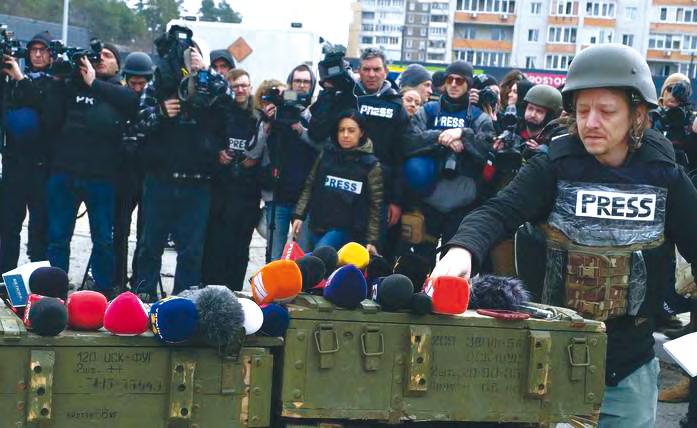
From the first day of renewed Russian aggression against Ukraine on 24 February, it was clear that independent reporting is indispensable for obtaining reliable information about the situation in the country, its population and the development of the conflict. ERSTE Foundation therefore decided early on to invest in two areas: in direct aid for Ukrainian media in Ukraine and in supporting independent Russian media in exile.
All Ukrainian media organisations have been facing major financial challenges since February 2022. According to the Ukrainian Ministry of Culture and Information Policy, the country’s advertising market plummeted by 70 per cent in the first half of 2022. It is reported to have recovered to 60 per cent of pre-war levels by the end of 2022. The safety of journalists remains the biggest problem for Ukrainian media. Frequent power cuts also pose a major challenge to their work. Media organisations in occupied territories have been forced to stop their publishing and printing operations or continue operations under the enforced provisions of the occupying forces.
Launched in February with ERSTE Foundation support, the Media Investment Development Fund (MDIF)’s emergency fund for Ukrainian media initially mainly provided protective vests and bullet-proof helmets for journalists working in Ukraine. MDIF still renders direct support to five local editorial offices: media outlets in Kyiv, Lviv, Melitopol, Kherson and Chernivtsi. The newspapers in Melitopol and Kherson had to shut down under the Russian occupation; Kherson has now relaunched the publishing of its newspaper Grivna. A total of 230 tonnes of newsprint were supplied to regional papers in 2022. Print media were particularly needed in areas affected by power and internet outages. Financial support, however, also enabled many media outlets to expand their online services and greatly increase their reach.
Despite the lack of press freedom, Russia has developed a relatively vibrant ecosystem of independent media, with investigative reporting by major newspapers and niche media, an independent regional press and a significant number of journalists with high professional standards. Built over three decades, this media industry is about to be completely wiped out by the war on Ukraine and the crackdown on what remains of the country’s free press. This will not only likely result in a massive loss of journalistic expertise, but also further reduce access to reliable information for millions of Russians, both inside the country and abroad. Virtually all independent media have had to relocate at least part of their operations and staff to other countries.
Launched in March 2022 by Reporters without Borders Germany, the Schoepflin Foundation and the Rudolf Augstein Foundation, the European Fund for Journalism in Exile – JX Fund is helping media workers quickly and flexibly to continue their work after they have fled war and crisis zones. It aims to strengthen independent media in exile beyond the current phase of heightened attention and to support the building of sustainable media outlets accessible for their home countries. The research report on the situation of Russian media in exile, Rebuilding Russian Media in Exile – Successes, Challenges and the Road Ahead, which the JX Fund produced in record time in 2022, recommends taking action on three levels: there is a need for providing support to individual journalists, including a substantial number of freelancers, direct and indirect support for media organisations, and assistance for the network of media hubs and centralised support functions (e. g. back office, tech and distribution).
Alevtina Kakhidze is a performance artist, graphic artist (including comics), author and activist in the Ukrainian art and cultural scene. Born in Zhdanivka in 1973, she now lives near Kyiv and says she has “witnessed the abrupt and chaotic changes Ukraine has undergone since the end of the USSR and the uncertain times that followed after that – including today’s undeclared war with Russia”. In her performances and her astute and critical drawings, she comments on “well-intentioned” pieces of advice, manipulative statements and information circulating in Europe regarding the war in Ukraine. For the exhibition General Alert. Wars That Have Never Ended, Alevtina Kakhidze was invited to design a poster for the public space. She has provided a series of additional drawings for this annual report.
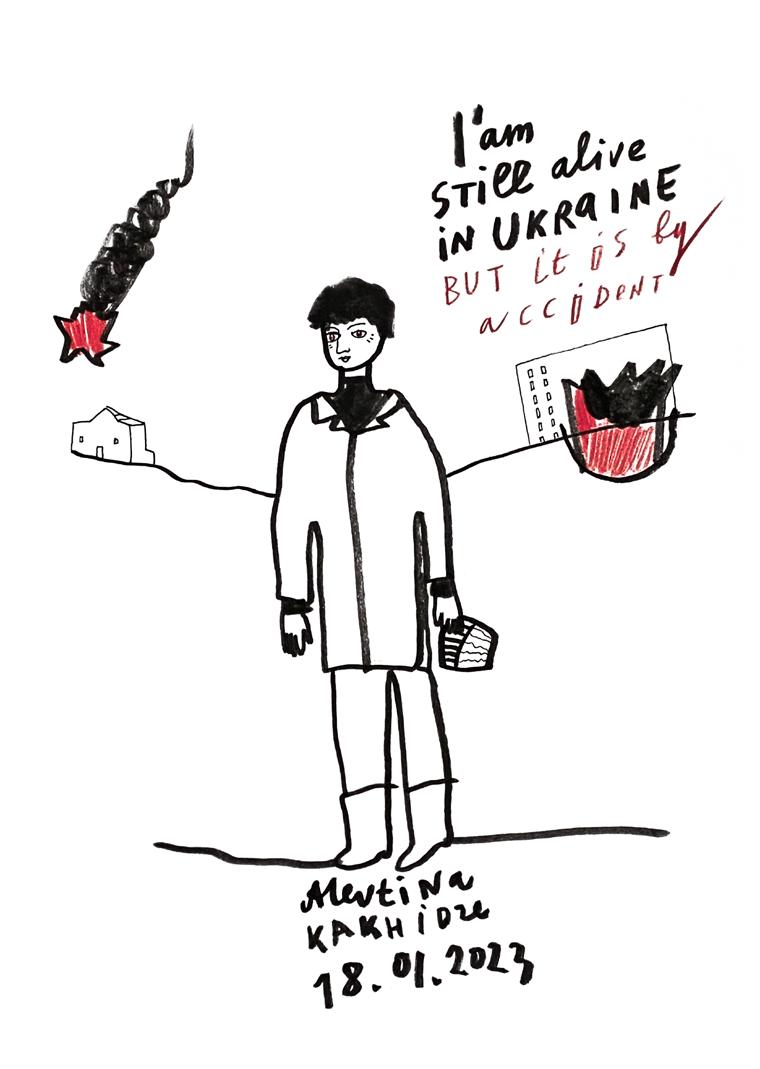
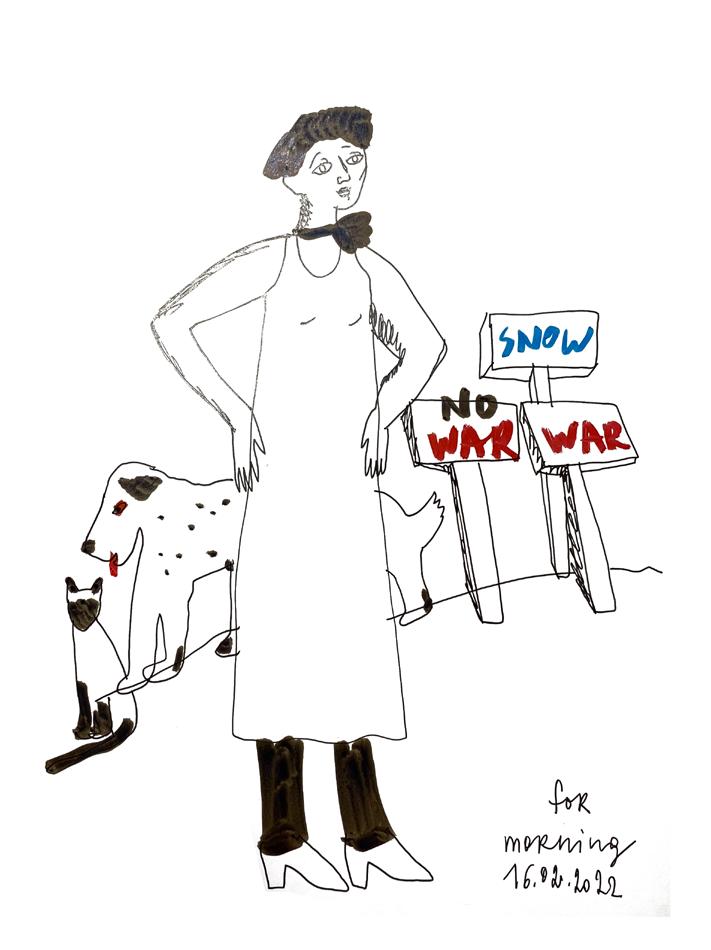
Alevtina Kakhidze 2022-02-15
Drawn for morning 16.02.2022


Alevtina Kakhidze
2022-03-07
A Quote from War And Peace by Leo Tolstoy
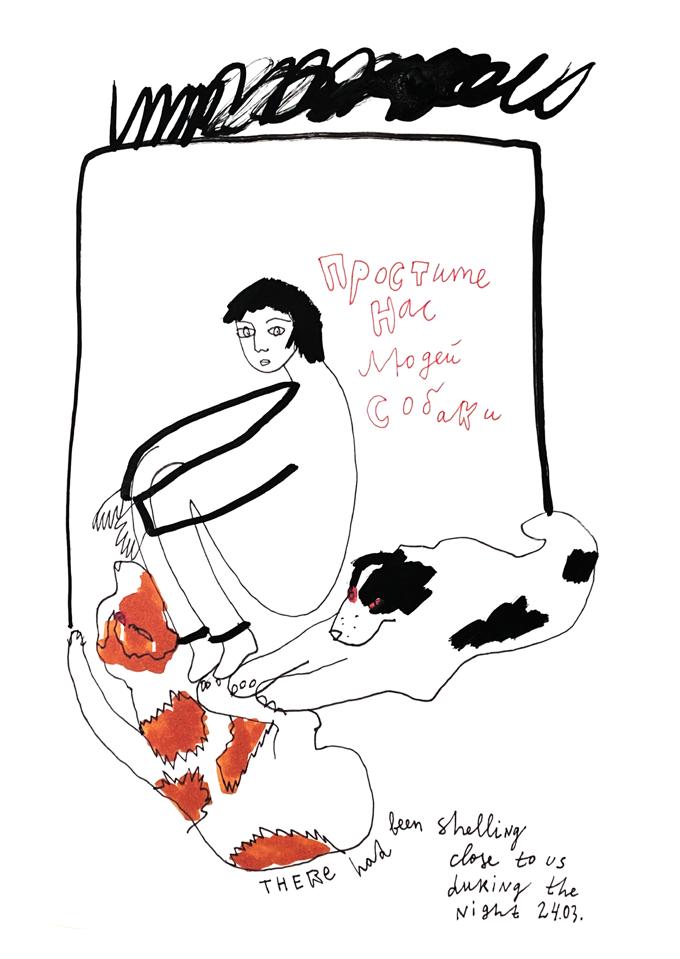


The shock was still fresh. On 20 May, as if it had happened yesterday, everyone remembered the morning of 24 February, 2022, when Europe woke up to a grave new world. Something considered unthinkable after WWII had happened, and, as a result, the European security order was blown up. Russia’s military aggression against Ukraine put an end to the “end of history” era, which had begun in 1989. This attack has triggered events in Europe previously unimaginable.


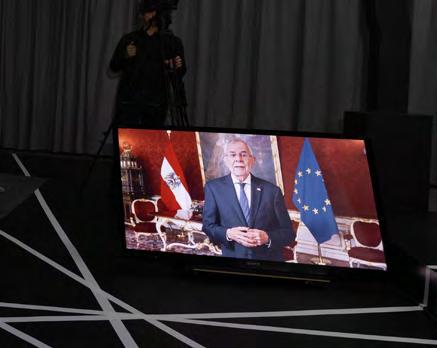
Opening via video by the Federal President of the Republic of Austria, Alexander Van der Bellen, followed by opening addresses from the Minister of Foreign Affairs of Ukraine, Dmytro Kuleba, (via video) and the Prime Minister of Estonia Kaja Kallas (via live stream).
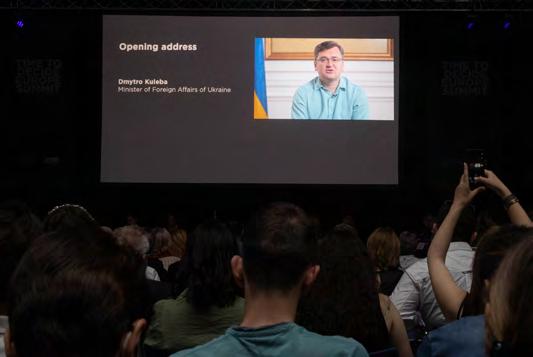

Time to Decide Europe Summit was co-organised by ERSTE Foundation and the Institute for Human Sciences (IWM) on 20 May 2022 from 9 am to 8 pm at Stage 3 in Vienna.
#TimeToDecide22
ERSTE Foundation and the Institute for Human Sciences (IWM) in Vienna wanted to look ahead and think about the consequences of these dramatic events for Ukraine, for Europe and the EU, and, of course, for Russia. The tableau of participants in the Time to Decide Europe Summit, planned since March, was unusual. We invited some of the brightest minds to debate the difficult questions that Europe was now facing and the answers and solutions to determine its future. For an entire day, a large panel of 26 renowned experts, intellectuals and thinkers discussed five key questions for Europe.
After an introduction by the summit hosts Boris Marte (ERSTE Foundation) and Ivan Vejvoda (IWM), Alexander Van der Bellen, Federal President of the Republic of Austria, opened the day with a video message. He was followed by Dmytro Kuleba, Minister of Foreign Affairs of Ukraine, who gave the opening address. Finally, the Prime Minister of Estonia, Kaja Kallas, spoke live via stream to the international audience.
What followed was a multi-voiced debate, with two speakers and a moderator for each topic and a giant fishbowl of experts joining in the ensuing discussion. In addition, the audience was invited to participate. The reports on the day’s events turned out to be as multi-voiced as the discussion itself had been.
Nicholas Watson has been editor of Reporting Democracy since 2020 and is based in Prague. His report on the Time to Decide Europe Summit – Experts Call For ‘New Marshall Plan’ For Ukraine – appeared on 2 June 2022 in Reporting Democracy and Balkan Insight.
Tim Gosling is editor of Reporting Democracy based in Prague. His analysis of the conference and the political situation in the EU – EU Seen Transformed By The War In Ukraine – appeared on 6 June 2022 in Reporting Democracy.
Réka Kinga Papp is editor-in-chief of Eurozine and shared her remarks on the summit exclusively for this annual report.
Nicholas Watson and Tim Gosling wrote reviews on the Summit for Reporting Democracy, the journalistic platform of BIRN and ERSTE Foundation, which a few days earlier had kicked off a new Fellowship for Journalistic Excellence cycle in Vienna. Their insights will be quoted below as well as Réka Kinga Papp’s comments on the conference. The editor-in-chief of Eurozine joined the summit together with many Austrian and international journalists.
“Ukrainians took EU values very seriously; now they’re dying for them. The EU is at the heart of this conflict, but can it live up to those values?”
NIKOLA DIMITROV
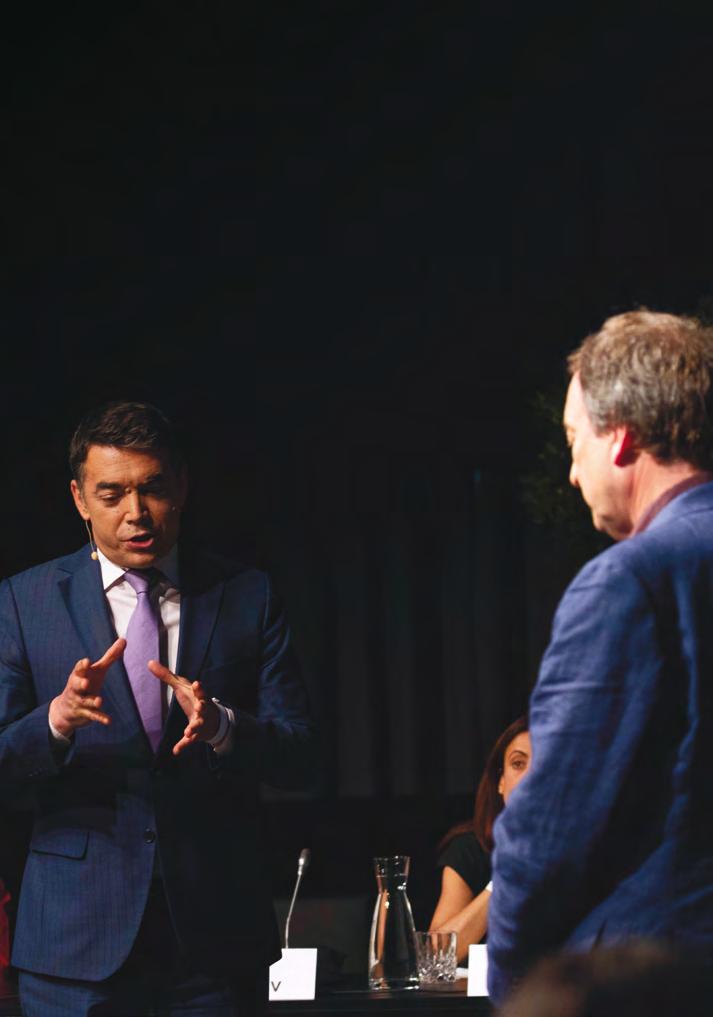
The morning started with two debates. Serhii Plokhy and Nathalie Tocci imagined a postwar Ukraine and moderator Olga Tokariuk’s speech posed a big question addressed to Plokhy and Tocci: How should Ukraine be rebuilt after the war?
Destruction in human lives and physical infrastructure have been massive in Ukraine. But every crisis holds an opportunity, pointed out Serhii Plokhy, professor of Ukrainian history at Harvard University. Plokhy argued that the Russian aggression is not only destroying buildings and physical infrastructure but also the remnants of Ukraine’s Soviet past, which opens up a real chance to build a new, modern, 21st century Ukraine. Trust in state institutions, in parliament and the president himself, while traditionally low, has grown immensely in the past few months. And a previously deeply divided society has been spectacularly reunited in the fight for sovereignty. While this might open up an opportunity for a political rebirth of the country, massive help will be needed from the global community to make use of it. Plokhy urged the West – but specifically the European Union – to come up with a new Marshall Plan in the vein of the US programme that provided more than 15 billion dollars to help finance rebuilding efforts in Germany and Europe following World War II. Yet others were quick to caution that given Ukraine’s oligarch-dominated, corruption-riddled economy, money should go hand-in-hand with strict supervision and control of funds. (…) But postwar times might still be months, if not years, away. Nathalie Tocci, director of the Istituto Affari Internazionali in Rome, brought the discussion back to earth by pointing out that “Putin might not be able to win this war, but he will try to make sure that Ukraine will not win it either.” As long as the Russian army is ruthlessly destroying whatever it can, it makes little sense to talk about rebuilding the country, at least not in a physical sense, she explained. Tocci also warned that Ukraine needs to be rebuilt politically as well, and cementing in a “civil form” of nationalism is far from a done deal. “Nationalism and liberalism can go hand in hand for a while, but they can diverge, leading to a backsliding like in Hungary,” she said. -
Nicholas WatsonIvana Dragičević, editor-at-large at N1 Television, posed the following question to the next dialogue team: What lessons can we draw from the Balkans? Misha Glenny, rector of IWM and war reporter for the BBC in the Yugoslav wars, talked with Nikola Dimitrov, former deputy prime and foreign minister of North Macedonia, about frustrating experiences in the Balkans regarding EU enlargement processes.
People who are simply against enlargement use the Western Balkans as an excuse to delay Ukraine’s membership,” claimed Nikola Dimitrov, the former diplomat who spent several years seeking to accelerate North Macedonia’s EU accession process that began in 2005. “Ukrainians took EU values very seriously; now they’re dying for them. The EU is at the heart of this conflict, but can it live up to those values?” -
Tim Gosling
 Above: Olga Tokariuk, non-resident fellow at the Center for European Policy Analysis (CEPA), independent journalist and researcher in Ukraine.
Photo: eSeL.at - Lorenz Seidler
Below: one half of the panel of “Time to Decide Europe”.
Above: Olga Tokariuk, non-resident fellow at the Center for European Policy Analysis (CEPA), independent journalist and researcher in Ukraine.
Photo: eSeL.at - Lorenz Seidler
Below: one half of the panel of “Time to Decide Europe”.
This was the first question of the afternoon. Márta Pardavi, co-chair of the Hungarian Helsinki Committee in Budapest, asked Gerald Knaus of ESI and Polish sociologist Karolina Wigura whether Central Europe will be the big winner or the big loser of the Ukrainian crisis and how the region will be transformed – socially, economically, and politically. What will be the impact of the refugee influx from Ukraine? And the influx of money from the West?
There was little discussion on the panel about Ukraine’s failure to clean up its political and economic systems over the last 30 years. But a return to corruption and nationalism – the twin pillars of illiberalism – cannot be discounted once the conflict ends. And the likely arrival of huge inflows of reconstruction money is only likely to aggravate that process. “Hungary shows that such money flows encourage oligarch structures to steal them,” said Zsuzsanna Szelényi of the CEU Democracy Institute. “In Ukraine and the Western Balkans, these networks are ready and waiting.” Like its neighbours in Central and Eastern Europe, Hungary is a keen supporter of Ukraine’s swift EU accession, despite the bitter barbs its prime minister, Viktor Orbán, has traded with Kyiv and his often close relations with Vladimir Putin. And that’s not because he’s keen to usher his neighbour towards liberal democracy. Rather, Orbán and other nationalists inside the EU see Ukraine and the Western Balkans as potential allies for their ongoing effort to build an illiberal bloc inside the EU. As the regime in Hungary proves, there’s no guarantee that the EU’s long, drawn-out accession process will cement democratic standards into place in any member state. But many in the audience came away suggesting that at the very least, it’s smart to try to make sure they’re there at the start, while some on the stage said that the war means Brussels should patrol the rule of law with more vigour, not less. “If we don’t have the rule of law, then we allow the Kremlin to continue meddling at the heart of our democracy,” said Heather Grabbe, director of the Open Society European Policy Institute. “We need stronger and clearer safeguards for democracy and better anti-corruption action.” -
Tim Gosling“There are three wars: military, economic and public opinion. And they won’t all end at the same time. The economic war especially will last for some time.”
IVAN KRASTEV
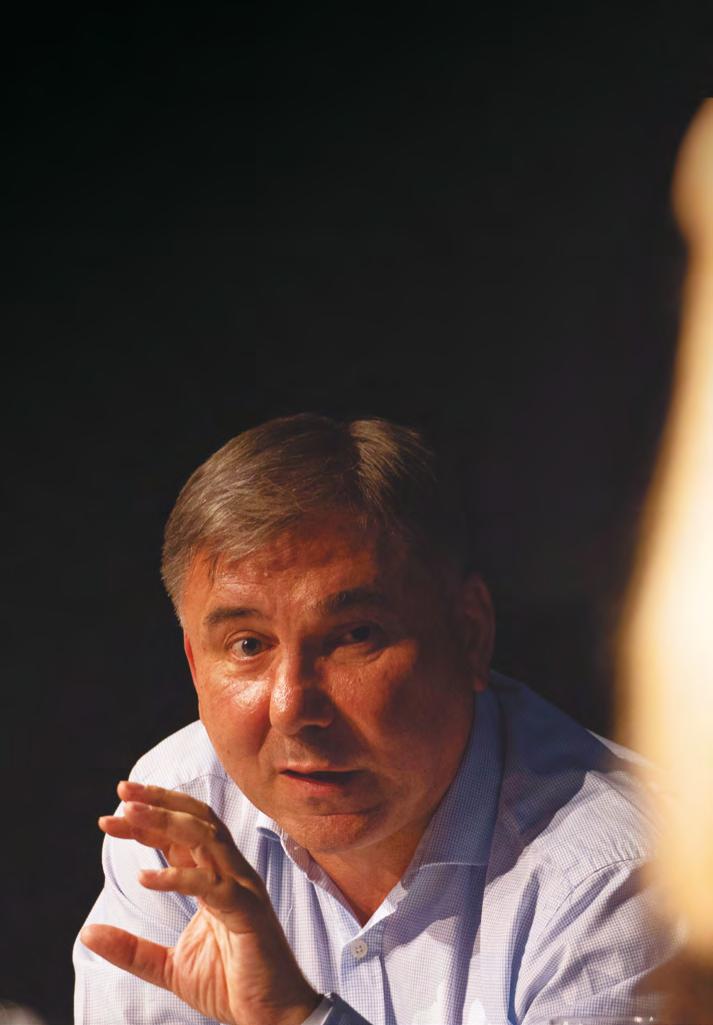 Ivan Krastev, permanent fellow at the IWM.
Ivan Krastev, permanent fellow at the IWM.
Ivan Krastev and Misha Glenny chaired a discussion on the following question: How will the European Union be transformed? Franziska Brantner, Parliamentary State Secretary at the German Federal Ministry for Economic Affairs and Climate Action, joined them via live stream for a discussion on whether the war in Ukraine might be an opportunity for Europe to solve its most pressing problems: its dependency on Russia for energy, the green energy transition, its security and sovereignty. Or does it pose the risk of destroying the EU?
But rather than dwell on the question of EU enlargement vis-à-vis Ukraine and the Western Balkans, Ivan Krastev of IWM said it is important to consider just how deeply Russia’s invasion is set to impact the EU itself. “The evil that is being done in Ukraine is becoming the heart of Europe,” he stated. And just as with the financial crisis, migrant crisis and Donbas crisis since 2014, the result is going to be further instability, he explained. “This is part of the war,” Krastev warned, hinting at the expanded arsenal that hybrid warfare has introduced. “There are three wars: military, economic and public opinion. And they won’t all end at the same time. The economic war especially will last for some time.” (…) The observation that fundamental security issues must now trump “EU values” sparked calls from across the panel for the EU to seek to restart the stalled expansion process with a push to reduce the demands put upon candidates. Noting that enthusiasm for the EU project has waned in the Western Balkans due to years awaiting progress, several discussants stated that the EU should now stop concentrating on “technical issues” and become a “political project”. -
Tim GoslingTwo core ideas have driven European, and prominently, German trade and diplomacy with Russia in the past decades. The first such doctrine is that there is no military solution to international conflict. The second, that the way to avoid war and international conflict is to build economic interdependencies. Although this approach has proven successful in appeasing historical conflicts between certain nations, it spectacularly failed to protect Ukraine from murderous aggression. - Réka Kinga Papp
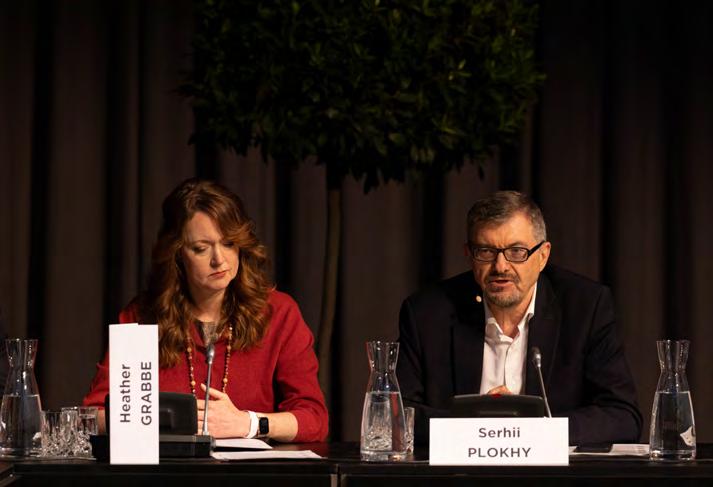
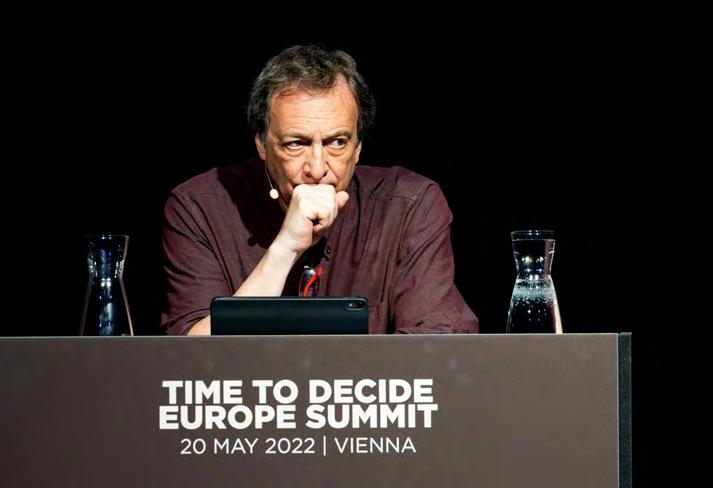 Above: Heather Grabbe, director of the Open Society European Policy Institute, and Serhii Plokhy, Mykhailo S. Hrushevsky Professor of Ukrainian History, Harvard University.
Photo: eSeL.at - Lorenz Seidler
Below: Misha Glenny, rector of the IWM in Vienna.
Above: Heather Grabbe, director of the Open Society European Policy Institute, and Serhii Plokhy, Mykhailo S. Hrushevsky Professor of Ukrainian History, Harvard University.
Photo: eSeL.at - Lorenz Seidler
Below: Misha Glenny, rector of the IWM in Vienna.
The last round had to treat one of the most difficult issues. The members of the panel were Stephen Holmes, professor of law at New York University and expert in Russian history and society, Maxim Trudolyubov, editor-at-large of Meduza, and the Russian theatre critic and historian Marina Davydova, who served as moderator.
Editor-at-large of Meduza.ru, Maxim Trudolyubov, painted a future Russia that seems unlikely right now, and has never even been close to reality. He finds, however, that such a Russia is the only one worth imagining. “I’ll be as fanciful as possible,” he began outlining not a forecast but a wish for “the kind of Russia we all need, and Russians need themselves. … It would include independent institutions.” The first such institution Trudolyubov wants to see is an independent court able to rule over government actions. “Nothing of the kind has ever happened in Russia, and Russians have very little experience with any independence of any kind, especially institutions. So it’s really unlikely. But without it, Russia doesn’t really have a future that I want to see.” - Réka
Kinga PappAt the end of that day, the last Ukrainian defenders of Mariupol surrendered. The military successes of the Ukrainian army in September were still in an unknown future, as was the strategy of destruction of civilian Ukrainian targets and infrastructure by the Russian army beginning in October 2022. Estonian Prime Minister Kaja Kallas’s opening speech echoed at the end of the summit: “This threat will not go away.”
Participants on stage
Dimitar Bechev, Europe’s Futures fellow, director of the European Policy Institute; Franziska Brantner, parliamentary state secretary at the German Federal Ministry for Economic Affairs and Climate Action; Marina Davydova, theatre critic, director, historian and producer; Nikola Dimitrov, Europe’s Futures fellow, former deputy prime and foreign minister of North Macedonia; Ivana Dragičević, editor-at-large at N1 Television; Florence Gaub, deputy director of the EU Institute of Security Studies; Misha Glenny, rector at IWM; Heather Grabbe, director of the Open Society European Policy Institute; Christo Grozev, CEO of Bellingcat; Stephen Holmes, visiting fellow at IWM and Walter E. Meyer Professor of Law at New York University; Anna Jermolaewa, Russian/Austrian artist in Vienna; Gerald Knaus, Europe’s Futures fellow, chairman of the European Stability Initiative (ESI); Ivan Krastev, permanent fellow at IWM; Olivia Lazard, visiting scholar at Carnegie Europe; Europe’s Futures fellow; Stefan Lehne, visiting scholar at Carnegie Europe; Boris Marte, CEO of ERSTE Foundation; Márta Pardavi, co-chair of the Hungarian Helsinki Committee; Serhii Plokhy, Mykhailo S. Hrushevsky Professor of Ukrainian History, Harvard University; Mariia Rohovets, Ukrainian artist from Bucha; Susanne Scholl, writer, journalist & former ORF correspondent in Moscow; Sławomir Sierakowski, senior fellow at the German Council on Foreign Relations; Zsuzsanna Szelényi, Europe’s Futures fellow, director of the Democracy Institute Leadership Academy; Nathalie Tocci, Europe’s Futures fellow, director of the Istituto Affari Internazionali; Olga Tokariuk, non-resident fellow at the Center for European Policy Analysis (CEPA), independent journalist and researcher in Ukraine; Maxim Trudolyubov, editor-at-large of Meduza; Ivan Vejvoda, permanent fellow at IWM; Karolina Wigura, sociologist, Robert Bosch Academy fellow, member of the board at Kultura Liberalna Foundation; Želimir Žilnik, Serbian film director
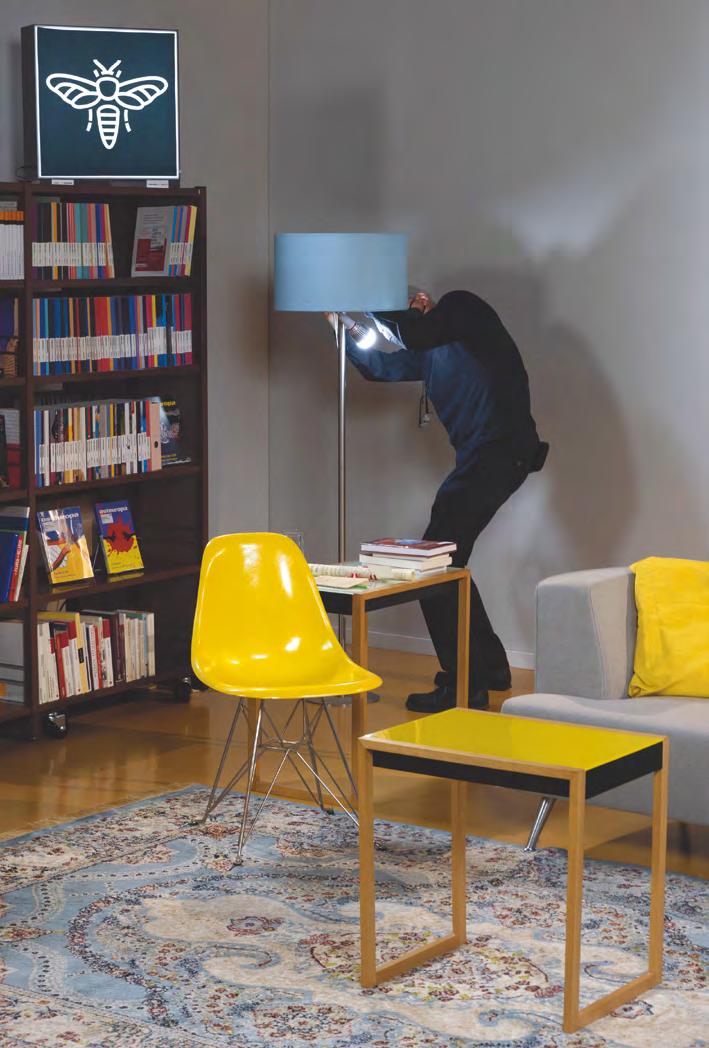
It all started with a phone call and a comparison. Wasn’t it a journalist, Boris Marte asked me on the other end of the line, who wrote the famous lines that now adorn the façade of the Vienna Secession building, “To Each Time Its Art. To Art Its Freedom”? Correct: this slogan was coined by theatre and art critic Ludwig Hevesi, a contemporary and enthusiastic advocate of Gustav Klimt. But what has this got to do with me?
“We are currently attempting to define our identity,” said Boris Marte, CEO of ERSTE Foundation. “And we don’t want to produce corporate speak but create something substantial and understandable. Are you interested? Would you help us?” I was interested. We met and Boris introduced me to the project team, Marianne Schlögl and Maribel Königer. I said yes. But I never suspected where this path would take me.
In 2022, ERSTE Foundation took another step in its comprehensive identity and strategy process. It began a year earlier when we set up the WERKRAUM (see Annual Report 2021), an initial space to discuss and reflect on concepts of how we work in changed times. Inspiring companions of ERSTE Foundation pointed us in a certain direction. In 2022, all we had to do was follow this path. With the help of Austrian author and columnist Christian Seiler, formerly editor-in-chief of the news magazine Profil, and his fine feeling for language, form and powerful thoughts, we continued to develop our valued founding idea from the early 19th century into a form suitable for our times and put down in writing all the important information on our motives, internal structures, working methods and objectives. Getting there was an exciting journey, the final product was in sight. Christian Seiler reports on this experience.
We began our work in January 2022. I sifted through the extensive collection of ERSTE Foundation publications, taking a more detailed look at the charter that established the savings bank’s direction and contains words still valid today: “No age, no gender, no social standing, no nation shall be excluded from the benefits that the Spar-Casse (savings bank) offers to every depositor.” I worked through the small advertising brochure from 1820, which has a special title: Build savings banks! Words of a humanitarian to all elders, pastors, schoolteachers, factory owners, trade owners and masters. The German term Menschenfreund (friend of the people, humanitarian), which has long since been replaced by the neutral term philanthropy, touched me –and a few months later, the writer Michael Köhlmeier exclaimed in one of our colloquia, “You must not replace this word under any circumstances. The Menschenfreund must be respected and preserved” – but I’m getting ahead of myself.
So we delved into a project whose outcome was anything but clear to us. We knew that it should focus on a text that creates a sense of identity and encapsulates the essence of the work done in and by the foundation. What form this text should take, whether short, long, technical, poetic, was unclear, and it remained uncertain for quite a long time, basically until we had finally drafted a first version (and even then, the work was far from over. I’m getting ahead of myself again).
Since we all agreed that the identity of a modern institution cannot be derived from its history alone (even when history, of course, plays a central role), we came up with the idea of inviting people whom we wanted to talk to about substantive issues of the foundation’s self-awareness. To this end, we defined thematic areas that seemed to make sense to us: Change – Meaning and Form – Future and Diligence – Mission – Prosperity and Resources – People – Location. Then we thought about who we wanted to talk to about these topics, openly, without limitations, to jointly discuss, listen and reflect on the present times and the tasks facing ERSTE Foundation.
One winter evening – it was dark and raining outside – we wrote down the names of people we wanted to ask about something – and who we thought capable of helping us with their wealth of knowledge and thoughts. Since, as we all know, reality tends to flatten out overly ambitious ideas, we didn’t worry about feasibility at first, but simply focused on who we wanted to sit down with. The result was a breath-taking list of experts from business and civil society, philosophy and art, theory and practice. I remember leaving the office that evening saying that we had just won the world planning championship, so now all we had to do was implement what we had planned…
The somewhat improbable but nonetheless true punchline of this story is that all the people we asked agreed to talk to us. We were able to set up a series of talks, which we called “ERSTE Colloquium”.
Here is the line-up:
PROSPERITY AND RESOURCES
Naika Foroutan, social scientist
Christoph Badelt, economic adviser
PEOPLE
Barbara Prainsack, philosopher
Doron Rabinovici, writer and activist
SENSE AND FORM
Herlinde Pauer-Studer, philosopher
Michael Köhlmeier, writer
MISSION
Eva Höltl, board member of ERSTE Foundation, occupational physician and head of the Erste Group health centre
Gerhard Fehr, behavioural economist
FUTURE AND DILIGENCE
Sigrid Stagl, environmental economist
Marc Elsberg, thriller author
CHANGE
Lisz Hirn, philosopher
Valentin Groebner, medievalist
LOCATION
Nataša Ilić, curator and co-director of Kunsthalle Wien
Ivan Krastev, political scientist
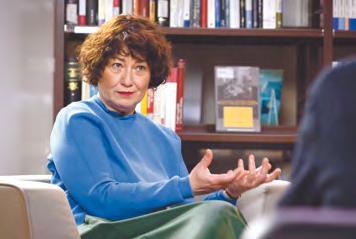

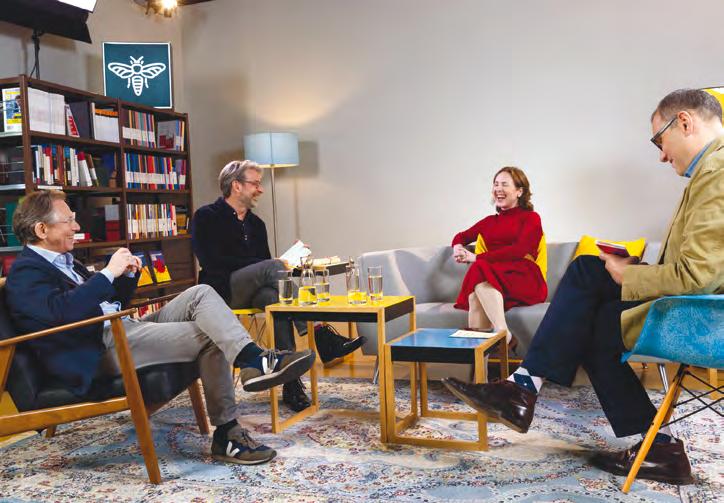
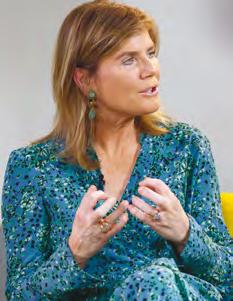
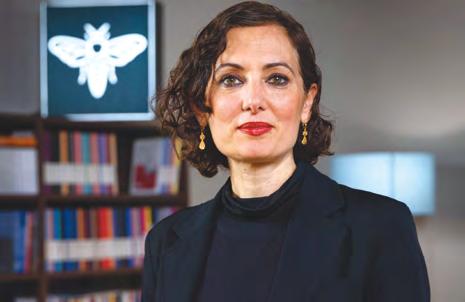
Boris Marte and I moderated these talks, which we held in April and May 2022. In the light of the prominent participants, we asked filmmaker Igor Bararon to create an adequate setting for recording the talks. Igor came up with the idea of setting up a living room in the foundation’s meeting room, where we then conducted all the talks. You can view excerpts from our conversations and the complete recordings of the seven talks on the ERSTE Foundation YouTube channel.
We talked about politics and feelings. We talked about experiments and failure. We talked about social developments that take a completely different direction than we think. We struggled for definitions and noted down words, terms, correlations that we had not been aware of in this form but whose magnetic pull immediately captivated us – for instance, the old-fashioned term gewahr sein (be cognizant), used repeatedly by political scientist Barbara Prainsack, that instantly made sense to us in terms of ERSTE Foundation’s work (in the end, it also appears as a quote in our text The Philanthropist – I’m getting ahead of myself again). Finally, we asked everyone attending what they would do if – for whatever reason – they inherited a bank. Their answers are a cornucopia of brilliant thought and formulation, a bonus to the contextual conversation.
At the same time, ERSTE Foundation’s project managers prepared texts they presented during workshops, describing their work in great detail. I had the chance to listen to them telling their individual stories to each other, asking and answering questions. It was a breakthrough in my understanding of how diverse and novel the foundation’s work is, how thoroughly the individual colleagues had influenced their departments, and how many concrete results had already been achieved. I was later presented with a correspondingly extensive volume of content-heavy texts, which contained everything that makes up the foundation. However, at that time I still had no idea how to merge these highly diverse texts with others yet to be written.
Help came from the outdoor pool in Schönbrunn. There, Boris Marte – true to the motto that we get the best ideas in the shower – put down a structure for the content of what was to be our final product, which we knew by then would be a kind of catalogue. The drawing from Boris’ A4 notebook, sketched with a pen and a highlighter, accompanied our team throughout the next few weeks as we began to collate, prune, rearrange and revise the various texts.
However, the central axis of our publication, around which everything else was to be grouped, was still missing: The Philanthropist (the title is the last time I’m getting ahead of myself). In her first drafts, designer Anna Liska, whom we ask to create the graphic design of our project, instinctively sketched this text in oversized letters. I took this idea with me to my retreat, where I began to design scenes that seemed useful as a basic substrate for what we had been working on together in the past six months. I was careful not to set off in the elevated language of the UN Convention on Human Rights but to ensure it was equally accessible to a variety of readers, from the board members of Erste Group to the employees in the banks’ branches. I wanted to start with a scene that describes what connects people without sounding pastoral (and I wrote it – because form shapes perception – in 24-point letters).
A person walking in front of us drops a glove. Without thinking, we bend down and pick it up. We call the person’s attention to it; he or she looks at us, first sceptically, then in surprise. The person takes the glove, nods and smiles at us – and we smile back, wordlessly rewarded.

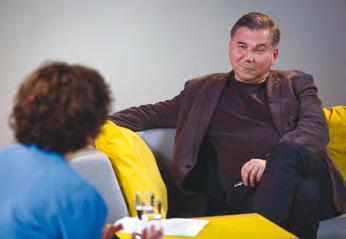

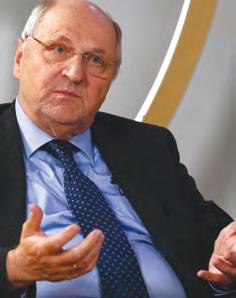
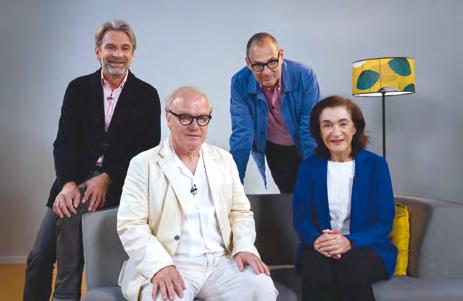
When reading a text, we first think about what mood or sound it conveys. The tone of this text is very unusual for a document that is supposed to create an identity for a foundation. I was unsure whether it would strike a chord when I presented the first draft to the team. My doubts soon vanished. The punchline at the end of the first paragraph reads: “We are philanthropists”. What could be more fitting than to put this formulation at the beginning?
Only those who have already been involved in the production of books and magazines know the steps it takes for a first draft to turn into a binding final version. I’ll spare you the details and the number of correction cycles we needed, because the truth is: we are still working on it. The text has proven to be so fundamental and important for ERSTE Foundation that at the time of printing this annual report, the foundation’s bodies were still discussing its final form. We strive for validity beyond the present moment.
But I will share the idea we derived directly from the ERSTE Colloquia: to add to the content of the publication, which is to talk about Who We Are and How We Work by including contributions by authors who can cast a specific glance at the world we live in. So we invited 13 people to tell us about their areas of expertise. In alphabetical order, they are Philipp Blom, Naika Foroutan, Andrea Grill, Edit Inotai, Gerald Knaus, Olivia Lazard, Wolf Lotter, Thomas Ramge, Dieter Roelstrate, Sigrid Stagl, Nathalie Tocci, Andreas Treichl and Sonja Zekri. Needless to say, we needed feedback, lots of feedback. We had already gone through the publication line by line with Maribel Königer and Marianne Schlögl; then Boris Marte informally distributed The Philanthropist to people he trusted, collected their responses and linked me up with people whose comments made particular sense to him – thank you for a thoroughly fruitful conversation, Eva Höltl –, so that I was able to replace misleading phrases and delete superfluous passages.
Finally, we presented our work to ERSTE Foundation’s supervisory board. As Dörte Lyssewski, ensemble actress of Vienna’s Burgtheater, had lent her voice to The Philanthropist, we took the supervisory board members for a walk through the botanical garden in Vienna while they listened to Lyssewski’s voice. And as we had hoped, it sparked discussions: about the language, the images, the emotions, the message. These discussions will soon be complete. The text will be printed. It will embody a process that is the core of what ERSTE Foundation does: to passionately engage with the world and find ways to shape it for the better.
Top left, from left: Boris Marte, Valentin Groebner, Christian Seiler, Lisz Hirn; top right: Ivan Krastev; centre, from left: Gerhard Fehr; bottom left: Christoph Badelt; bottom right, from left: Boris Marte, Michael Köhlmeier, Christian Seiler, Herlinde Pauer-Studer. Photos: eSeL.at - Lorenz SeidlerWe believe that financial literacy is life literacy.
Everyone wants to attain financial independence and live in dignity and prosperity. To achieve these goals, we need a sound understanding of how to handle money. Everyone should have access to this knowledge.
We provide young and older people with opportunities to increase their financial literacy and develop tools to enable those who are in a difficult financial situation to regain their ability to act and thus reclaim their personal freedom.
“They don’t rest until the problem is truly solved.”
Uli Grabenwarter, Deputy Director Equity Investments at the European Investment Fund (EIF), explains in an interview with Franz Karl Prüller, Senior Advisor to the Board of ERSTE Foundation, why he advocates impact-centric investing instead of opportunistic impact investing.
Franz Karl Prüller: Uli, you are an expert in social impact investing and have accompanied and supported the development of that scene in Europe for many years. How do you view its development, and why are you advising ERSTE Foundation pro bono on its strategy development in this area?
Uli Grabenwarter: Today it is possible to achieve market-compliant returns with impact investing. However, this opportunistic approach actually promotes a short-sighted perspective. Because it only solves an asset allocation problem, not fundamental societal problems that lie outside of a given market-compliant return spectrum. That was my approach to a differentiation between opportunistic impact investing and impact-centric investing, as I call it. The latter creates a targeted, predefined impact as a funding target and then sets up funding for that target. They are two totally different approaches, both of which have their presence and justification in the financial world, but with very different consequences.
On a macro level, when we wonder about the sustainability of our livelihoods, the opportunistic impact-investing dimension is totally insufficient. This has led me to get involved pro bono in projects that contribute to a change in mindset. My hope is that the financial industry system itself can be re-constructed to live up to this kind of sustainability in a more focused way.
How do you view Erste Group’s social banking and social impact investing activities?
Erste has already worked on many aspects of impact-centric investment through social banking. You approach investment issues with a reference to a specific social problem – that’s impact-centric. You start with a social objective and move to the financing structure, and you’ve already had some success stories (see page 55). For me, it’s a matter of authenticity. You aren’t working from a marketing perspective; one senses a strong, common interest in helping shape a new way of thinking about how to approach the role of the financial industry. That was the decisive point where I thought, I’m interested in this; I’m available as a sparring partner.
What areas of untapped potential exist for ERSTE Foundation and Erste Bank that we do not see at present?
I see untapped potential above all in the structured development of financial engineering expertise to make impact solutions financeable that lie outside the market spectrum of conventional financial markets. We are in a situation where we are throwing catalytic, philanthropic capital at impact solutions that could also be financed to a large extent through conventional market instruments. But using catalytic philanthropic capital as a risk buffer or as risk transformation potential could create financial instruments that really
benefit from the complementarity of these two sources of finance and take impact investing to a new level in terms of its effectiveness and scale.
Does that catalytic, philanthropic capital exist in Central and Eastern Europe?
It does. However, the capital of wealthy individuals in this region is still more fragmented and less structured than in North-Western Europe, where there is now a relatively broad base of successful family offices and foundations that are very conscious and proactive about using capital purposefully. That is not yet true to the same extent in Central and Eastern Europe (CEE) due to this region’s shorter development history of private wealth. It therefore takes a greater effort to achieve this potential here than it does in Western Europe. But that does not mean it can’t be done. The question is rather how to concentrate it to achieve critical mass.
As far as the implementation of financial instruments in CEE is concerned, one should not necessarily focus entirely on the financial resources of this region. There are quite a number of foundations and high-net-worth individuals elsewhere in Europe that have understood very well the interconnectivity of our society and are aware that the stability we take for granted and guaranteed in the “old” members of the EU depends very much on the socio-political stability of East-
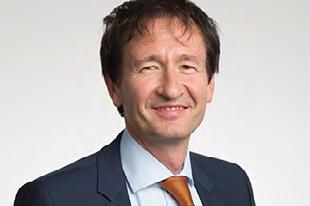
ern Europe. And there is no better time than the one we are living in right now to observe this quite tangibly on the basis of day-to-day events.
Do you see a special opportunity to create a financial market for social impact investing by having a charitable foundation as a major shareholder in a retail bank?
It is a unique combination. The origin of such a paradigm shift in the financial industry must be rooted in awareness-raising at the level of the institution’s shareholders. When an institution has the privilege of having a shareholder that is not only historically but also statutorily bound to live this thought leadership of socio-political relevance, the mandate to proactively address this dimension of competitiveness in the future almost inevitably follows. Here, Erste Bank has potential that in other institutions requires a much longer lead time to realise because this awareness has to be raised across the entire shareholder base. They do not have a lead investor like ERSTE Foundation in the organisation that already brings this way of thinking with it due to its own origin.
What are the chances that a financial market for social impact investing could really emerge in a region as heterogeneous as CEE?
I don’t believe the objective should be a uniform financial market. Because social impact
investing has an essential criterion in its DNA from the very beginning: contextuality. We always have to assess impact where it was created. It’s utopian to say, for example, that we have a social housing solution and we are now rolling it out from Prague to Sofia and it will work in the same way everywhere. I think it’s utopian to set a goal like that for social banking activities. However, what we can do is create expertise on financing instruments that enable the implementation of clearly contextualised impact goals and projects in the most varied environments. Here, for example, the social banking arm of Erste Bank can offer success stories where this has already been accomplished on a project-specific basis. The task now is to replicate the expertise and experience the bank has gained in this manner in order to develop financing solutions that can realise very specific projects in various fields of activity across the entire catchment area of Erste Group. A solution that is created like that cannot be transferred at will. But in the future no one in social banking who has to develop an impact-centric financial solution for a problem in his or her own environment will have to reinvent the wheel every time either.
In this context, how do you view the approach our social banking has taken to building an investment market through subordinated loans?
I believe subordinate capital is generally indispensable when dealing with socio-political problems, because when we compare impact-driven businesses and traditional business models, we have to assume that
the founders have a completely different approach to their society’s success. The commitment of a social entrepreneur or impact entrepreneur doesn’t just extend to economic success and a possible exit; impact entrepreneurs are generally driven by the idea of solving a social problem. They don’t rest until the problem is truly solved. This requires the presence of long-lasting but also non-dilutive capital, and that’s where the subordinated loan plays a very decisive role. Because on the one hand it gives the subsequent providers of outside capital a safeguard in terms of the company’s liability capital. On the other hand, it leaves the ownership, identity, allocation and control of the company and its mission to the founders. And that is a very important component that needs to be taken into account. That’s why I believe subordinated loans are a very decisive product, especially in social banking and social impact investment, although they are massively underrepresented in the market. They are an absolutely indispensable component in a product range for social banking and social impact investing. In this respect, subordinated debt must be an integral part of an impact-oriented product range of financing instruments, as envisaged in Erste Group Social Banking’s concept for a comprehensive Social Impact Investment Strategy 2022.
Uli Grabenwarter is Deputy Director Equity Investments at the European Investment Fund (EIF). In this role, he oversees the EIF’s activities in venture capital, impact investing and technology transfer. The EIF is Europe’s largest fund-of-funds investment platform in these markets. Previously, Mr Grabenwarter was responsible for the EIF’s strategic equity development, and in that context he led the establishment of the Social Impact Accelerator, the first pan-European social impact investing fund-of-funds. From 2010 to 2012, he was part of a 20-month research project on impact investing in collaboration with the IESE University of Navarra in Barcelona and the Family Office Circle Foundation based in Switzerland, analysing best market practices for impact investing in private equity and venture capital. Mr Grabenwarter is a visiting professor for private equity and venture capital at IESE University and an angel investor in life science companies. Since 2018, he has been a trustee of the Global Steering Group for Impact Investment and a board member at several asset management companies and family offices.
Quasi-equity in the form of a subordinated loan strengthens the capital base of an organisation or company without changing the ownership structure. It is granted at a fixed interest rate for the agreed contract term and offers an individual repayment schedule. Quasi-equity is subordinated, i.e. it is the last loan to be repaid in the event of bankruptcy. Erste Social Finance supports social or green enterprises and non-profit organisations as well as social housing and infrastructure projects in this way. Among them are the following organisations:

Signtime: Deaf and hard-of-hearing people often have difficulties learning to read. So they often have limited access to written information. SignTime has developed SIMAX, a 3D animated avatar that translates text into sign language. SIMAX makes digital content accessible to deaf people. In doing so, it reduces communication barriers and improves integration. simax.media

Organic Tools: Small-scale organic fruit production is on the decline because it relies heavily on manual labour. Combined with low prices in recent years, this has led to a dramatic decline in Europe’s organic orchards, which have high ecological value. In addition, hand harvesting often leads to inefficiency and wastage of fruit. With this in mind, Organic Tools has developed a technical solution that uses rechargeable batteries to collect and sort fruit. These tools help preserve biodiversity and increase agricultural production. organic-tools.com

Unverschwendet (Unwasted): According to the WWF, more than 176 million kilos of fruit and vegetables are lost in Austrian agriculture every year. Unverschwendet (“unwasted”) transforms surplus fruit and vegetables into delicious products such as jams, syrups, chutneys, sauces and much more. Since October 2022, the company has been working with the Hofer grocery chain and supplying the Rettenswert (“worth saving”) product line. Unverschwendet is a culinary solution to food waste. unverschwendet.at
An Austrian study on the “impact factors of competent money management” identified that financial literacy, frequent gambling, shopping addiction, materialistic value orientation and impulsive behaviour are all factors that clearly correlate with building up debt.
Prompted by board member Eva Höltl, the head of Erste Bank’s health centre, ERSTE Foundation commissioned a study on the “impact factors of competent money management” in early 2022. The study aimed to examine the specific factors in people’s money-related behaviour that often determine their financial lives and financial decisions. Based on a survey of some 2,000 people in Austria from January to April 2022, it used a holistic approach to analyse in detail the correlations of influencing factors such as frequent gambling, impulsivity and shopping addiction with the aim of providing relevant recommendations and strategies.
Its authors, Oliver Scheibenbogen and Ute Andorfer of the Anton Proksch Institute, designed the study to be representative in terms of age, socio-economic factors such as household income, educational qualifications and migrant background. It focused on factors such as financial literacy, frequent gambling, shopping addiction, materialistic value orientation and impulsive behaviour, showing how these factors are related to building up debt.
The study found that financial literacy is significantly lower among people with dangerous levels of debt – commonly these are loan instalments that cannot be serviced, tax debts or fines. Sound financial literacy is, however, instrumental in adequately and proficiently countering the pending financial risk, especially when the debt situation poses an existential threat.
Men score significantly better than women in terms of financial knowledge in all age groups, while Generation Y, i.e. young millennials aged 15 to 28, score worst. In addition to current, mostly unforeseeable crises such as illness, job loss and divorce, an existing gambling disorder or pathological shopping habits are crucial factors for building up dangerous levels of debt.
Men are significantly more prone to developing a gambling disorder than women. While the gender differences in mild to moderate forms of gambling disorder are not very significant, men are three times more likely than women to suffer from a severe disorder.
Compared to people with no migrant background, first-generation migrants are about 3.5 times more likely and second-generation migrants about three times more likely to suffer from a gambling disorder. Seven per cent of the respondents showed pathological shopping behaviours (shopping addiction), a pathological disorder that requires multi-professional treatment. As with gambling, the probability of developing pathological forms of shopping behaviour decreases significantly with age.
The study identified the following as particularly vulnerable groups for building up dangerous levels of debt:
– People with poor financial knowledge, which mainly includes women and young people
People with low net household incomes (1,000–1,500 euros)
– Second-generation migrants
The study significantly contributed to clarifying the correlations between mental illness (gambling and shopping addiction), personality traits (impulsivity) and socio-demographic variables and the likelihood of building up dangerous debt levels.
The differences between the types of debt are particularly evident in terms of risk appetite, which is twice as high in people with dangerous levels of debt as in people without debts.
In addition to people suffering from impulsive behaviour (esp. the willingness to take risks), gambling addiction and shopping addiction, those on very low household incomes are particularly vulnerable to building up dangerous debt levels. Prevention therefore also means combating poverty. People are most likely to build up dangerous levels of debt when they face personal crises such as job loss, divorce or bankruptcy in case of self-employment. Also, the urge to “keep up” quickly pulls people with low incomes into the debt trap.
It is important to scale up financial literacy programmes as general safeguards to protect people from accumulating excessive debt. The general public also has poor knowledge about the effects of excessive gambling, an issue that should be addressed much more widely. Basic emotion regulation skills and the identification of alternative behaviours are further elements that will enable people to resist the material “temptations” of a highly consumption-oriented society with self-regulation and the ability to make their own sound decisions.
If you are interested, you can get the study here: office@erstestiftung.org
The study authors:
Priv.-Doz. Mag. Dr Oliver Scheibenbogen
Clinical psychologist and health psychologist
Oliver Scheibenbogen is head of the Anton Proksch Institute Academy (since 2021), and of the department of Clinical Psychology, as well as research coordinator of the Anton Proksch Institute (since 2013). In 2018 he became deputy chair of the Institute of Social Aesthetics and Mental Health at the Sigmund Freud Private University Vienna. He heads the department of Creativity and Lifestyle Planning and coordinates the interests of the European Society on Treatment of Alcohol Dependence and Related Disorders (ESTAD). Oliver Scheibenbogen is also a biofeedback therapist and trainer and board member of the Austrian Association of Biofeedback and Psychophysiology. He has been providing consulting and research services to companies since 2016.
Mag. Dr Ute Andorfer
Clinical and health psychologist, psychotherapist (behavioural therapy)
Ute Andorfer joined the Anton Proksch Institute in 2000. Her main areas of expertise are psychotraumatology, gender and diversity, addiction in the workplace, burn-out and relatives of addicts. Alongside her clinical work, she has also been working as a freelancer (psychotherapy, supervision, self-awareness) since 2001. Since 2018 she has been a trainer for the Austrian Association for Behavioural Therapy.

The School Pilot for Economic Education was unveiled to the public at a press conference in May 2022. Attended by the Austrian Minister of Education, Martin Polaschek, the event recognised the 30 schools that are implementing the four-year pilot project that began in September 2022 and providing their students with practical, effective economic education.
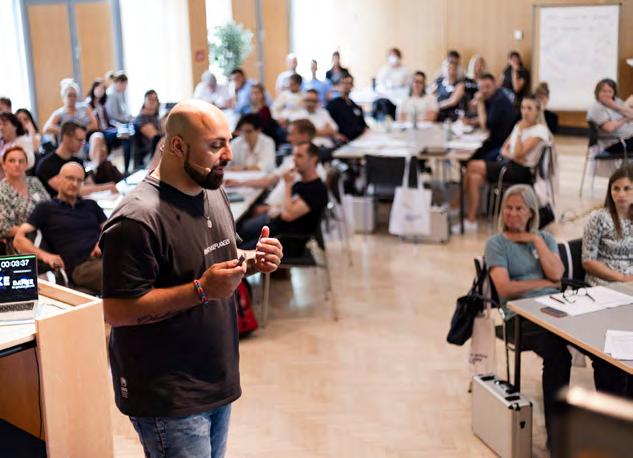
The first training seminar within the framework of the school pilot took place in May 2022. It offered more than 80 teachers an opportunity to network, collaborate on content and learn new pedagogical methods. A lecture by keynote speaker Ali Mahlodji provided them with fresh inspiration.
2022 marked an incredible 250,000 visitors for Erste Financial Life Park since it opened in 2016. That’s a quarter of a million people – mostly children and youth – who have had a learning experience in the interactive course at Erste Campus, the FLiP2Go bus in the provinces or one of the many online offers. This rich experience in directly imparting financial knowledge, and the constant reminder of the need for it while pupils are still in school, has made ERSTE Foundation one of the founding partners of the Foundation for Economic Literacy.
The Foundation for Economic Literacy was established in December 2020 from a broad civil society alliance. The foundation works to raise awareness, support teachers and strengthen the education system.
Founding members: Chamber of Labour, ERSTE Foundation, Federation of Austrian Industries, Innovation Foundation for Education, MEGA Education Foundation, Oesterreichische Nationalbank and Austrian Federal Economic Chambers
The central goal of the Foundation for Economic Literacy is to sustainably anchor practical economic and financial education in the Austrian school system. That is why the School Pilot for Economic Education launched. It offers 60 schools from across Austria a comprehensive programme of accompanying measures over a period of four years. The first tranche with 30 schools started in the winter semester of 2022-23. It’s time for their first interim report.
In 2021 and 2022, some 93 Austrian lower secondary schools (middle schools and general secondary schools – lower level) applied to participate in the School Pilot for Economic Education. 60 of them were ultimately selected. The Foundation for Economic Literacy is assisting these schools with content and teaching to establish an economic education focus. The participating schools incorporate an in-depth focus on economic education in their geography and economics teaching. In addition, they can choose whether they want to implement an additional in-depth focus from level six onwards in the form of cross-curricular project weeks or a newly introduced compulsory subject.
The participating schools receive extensive support. They are provided with teaching and learning materials, and teachers can obtain further training and coaching. Schools can network with one another and establish contacts with representatives from the business community. Marketing measures complete the package, as does financial support of up to 20,000 euros for four years.
To learn from the schools’ experiences, a team of academics from the Institute for Advanced Studies (IHS), the University of Duisburg-Essen and the Oesterreichische Nationalbank (Austrian Central Bank) is working in tandem with the school pilot. These academics are focusing on the school pilot’s practical implementation and its expected and unexpected impacts. Over a period of four years, they will conduct several surveys with pupils and interviews with school administrators and teachers.
The schools of the first tranche of the School Pilot for Economic Education:
Vienna
AHS Heustadelgasse
MS Hainburger Straße
MS Ko50
MS Spallartgasse
Musik- und Informationsmittelschule
Vienna Bilingual Middle School
Wiener MS Kauergasse
GTMS Medwedweg
Europäische Mittelschule
MS Pöchlarnstraße
Lower Austria
Mary Ward PG & ORG St. Pölten
Musikmittelschule Eggenburg
NÖMS Weitersfeld
MS Vitis
Burgenland
BG/BRG/BORG Oberschützen
BG/BRG/BORG Oberpullendorf
MS Eisenstadt Rosental
Naturparkmittelschule Rechnitz
Sportmittelschule Oberschützen
Upper Austria
MS Kopernikus
MS Münichholz
BG WRG Körnergymnasium
Styria
MS Waldbach
MS Andritz
MS Dr. Th. Körner-Kopfenberg
Carinthia
MS Gegendtal
Salzburg
MS Bürmoos
Tyrol
WRG Ursulinen
MS Matrei am Brenner
MS Achensee

“We are pleased that our school pilot is finally being implemented in so many Austrian schools after such intensive preparation. We want every pupil to have practical basic knowledge and skills at age 14 that enable them to understand general connections in the economy and how they can help shape them. That’s what we want to achieve with the school pilot project.”
MATTHIAS REISINGER Managing Director of the Foundation for Economic Literacy“Our aim is for our students to acquire skills for realistic life planning. When doing so, we want to pay special attention to the areas of basic economic understanding and financial education.”
DANIELA KAINDL-KALTENBÖCK
Teacher at Neue Mittelschule Hainburger Straße, Vienna
“Economic education is an essential component of practical life learning. In addition, we are seeing a steady increase in youth indebtedness. Economic education can help prevent that.”
DANIEL KARACSONYI
Headmaster of the Secondary School for Sports, Oberschützen/Burgenland
“It takes skills and courage to be a mature participant in society. We want students to understand that the economy has been shaped and can be shaped, and we want them to see themselves as part of the economy.”
KIRSTIN STUPPACHER
Teacher at Neue Mittelschule, Bürmoos/Salzburg
We believe that most people want others to do well.
Many are personally active on behalf of others, whether professionally or on a voluntary basis. That is why we support those who are committed to changing our society for the better.
We invest in the development of new digital approaches, in capacity building and organisational development of NGOs and in the expansion of networks between sustainable social enterprises. We aim to empower people who actively address the social challenges of our time.
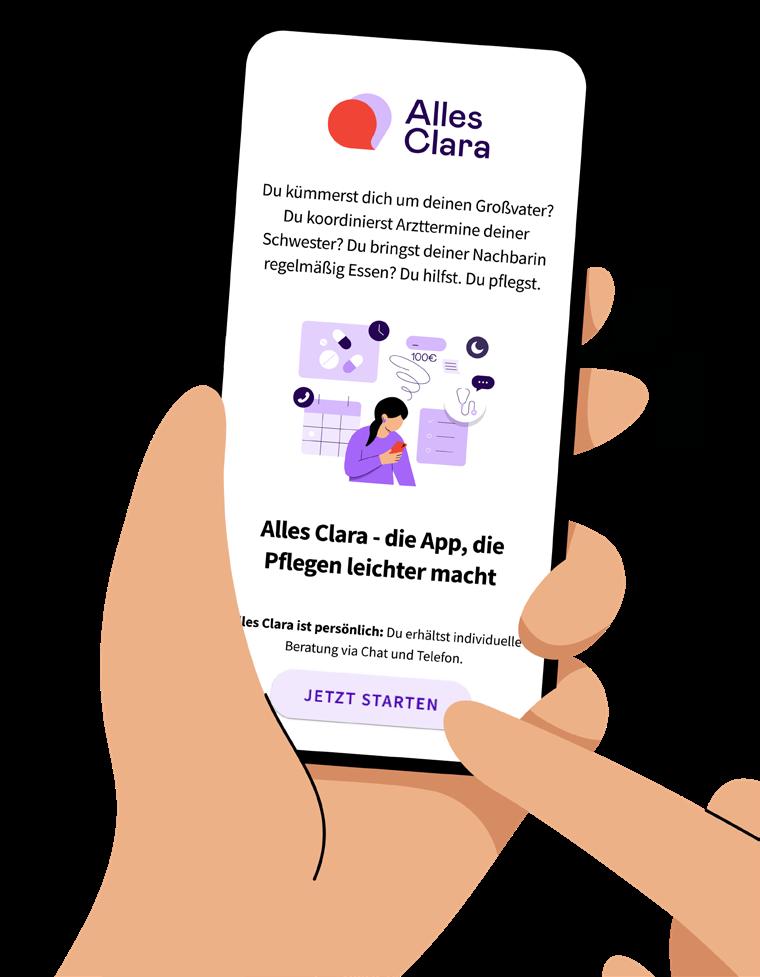

Laura R. works in the controlling department of a large company. She enjoys her job, it challenges her, and she feels comfortable on her team and with her employer. In her personal life, however, she has been feeling less and less comfortable. In addition to a partner and a 12-year-old daughter, she has a mother who lives alone and needs a lot of attention and help. Laura doesn’t like to talk about it. Of course she takes care of her mother. But caring for her is becoming more and more demanding. She often has the feeling her personal life revolves entirely around the needs of others. She bounces back and forth between her daughter and her mother, while doing the housework, shopping and cooking. Laura thinks it’s just too much.
Hello. My mother has moderate Alzheimer’s disease. She lives alone, goes to Schönbrunn for hours because she lives right there... That’s great. She always finds her way home... But day centre and appointments in general are always like the lottery... because she forgets to stay home. Personal hygiene and changing clothes are a problem – for me, not for her... Even the home help has given up on helping her with her personal hygiene. For me, the daily visits are just an obligation now, because she is against everything. I am her only relative, but I have a family and a job. I feel like I am slowly coming to the end of my tether. I constantly deal with excessive demands, restlessness at night and heart palpitations because I am afraid and worried. At the same time, I don’t want to be ungrateful to my mother. After all, she didn’t choose this. It’s only bad if it gets to the point where I no longer want to go to my mother’s, even
Johannes and Romana L. live and work in Vienna. They have a young daughter and a large social network. Every fortnight they go to the countryside to visit Johannes’ single father, to help him in the house and garden, to do bulk shopping and cook for the week ahead. One day Johannes’ father falls and has to be hospitalised. The doctors predict that he will need daily support in many areas of life from that point on. Johannes suddenly has many questions that need to be answered as quickly and as best as possible.
Can you help me? My father fell a few weeks ago. He broke the neck of his femur and his hand... My wife and I were already helping him before that, driving from Vienna to visit him every other weekend in Salzburg... The doctors say he needs more help and probably won’t be able to cope on his own... What should we do? I’ll take my remaining three weeks of leave and move in with him for now, but then what?... That’s not a permanent solution. What does all this mean for me and my family now? What do I need to see to? I want him to be well.
These two stories are typical for about one million people in Austria who care for someone close to them. Parents of children with impairments are also caregivers. They help with personal hygiene, they wash, cook, go shopping, organise doctor’s appointments and sometimes they just sit and listen. It’s exhausting, and it usually means shouldering a lot of responsibility. About a third of these family carers have a job, and a relatively large proportion of them have families and children. Balancing work, family and caregiving is a challenge, and in many cases it’s perceived as an insurmountable obstacle. The fact that contact points and services differ considerably from federal state to federal state only makes things more difficult. As a result, those affected often have to quit their regular job either partially or completely. So it is absolutely critical to provide assistance to family carers in places where nursing homes are overburdened and people want to live in their own home for as long as possible. Critical because, after all, family carers in Austria handle up to 80% of all care and nursing needs.
Thank you for contacting Alles Clara with your concerns! My name is Hannah and I work here at Alles Clara as a qualified health and nursing assistant within online counselling. To start, I have a few very specific questions for you, and then we’ll see how we can best solve your situation...




On the other hand, the professional sector is under pressure too. There are many reasons for the worrying shortage of care workers and the high drop-out rates in the industry, including high physical and psychosocial stress, the challenge of balancing work and family life and limited opportunities for professional development. The low status and lack of recognition for carers do not make caregiving more attractive as a profession either.
Here we have another example. Hannah S. wanted to do something with people after she finished school. Fast forward to today and she has been working in mobile care for over 15 years. As with most of her colleagues, the physical strain has become a burden on her health. A hectic schedule and jumping in for colleagues who have called out quickly make her feel overwhelmed. Hannah says she likes her job. However, it is becoming clear to her that something has to change if she is to do it for a long time to come. In addition, she knows she needs to work full time if she wants to receive an adequate pension later. But she can’t manage that physically in mobile care.
Now there’s a new digital application that can help Laura, Johannes and even Hannah. Called Alles Clara, it connects carer relatives with professional counsellors, providing them with respite and care counselling. The virtual counselling rooms enable them to exchange information in chats to discuss current issues and work through complex situations in a manner that respects information privacy. The counselling rooms are based on widely used messenger tools so they build on familiar patterns of behaviour.
Developed by Two Next Data protection concept by Deloitte; Jank Weiler Operenyi; Nikolaus Forgó, Professor of Technology and Intellectual Property Law at the University of Vienna
Research Ludwig Boltzmann Institute for Digital Health and Patient Safety
Evaluation Hanna Mayer, Professor of Nursing Science at the Karl Landsteiner Private University for Health Sciences, Krems
Insurance Wiener Städtische Versicherung
Partners in the public sector Federal Ministry of Labour and Economy; Federal Ministry of Social Affairs, Health, Care and Consumer Protection
Alles Clara counsellors are qualified health and nursing professionals like Hannah S. or clinical psychologists and psychotherapists. They undergo intensive training to become online counsellors, which optimally prepares them to counsel people seeking advice. The Nuremberg University of Technology assists with implementation, and the counsellors remain employed by their employers. Employers currently represented on the app include the large Austrian care organisations Caritas, Diakonie, Hilfswerk, Rotes Kreuz and Volkshilfe. Alles Clara digitally coordinates and connects them with people seeking advice. Online counselling accounts for between 10 and (in exceptional cases) 20 hours of their weekly working time. During the remaining working hours, the counsellors are active on site in the practice. Online counsellors perceive Alles Clara as a flexible working environment and feel that now they too can finally work from home sometimes. They have time to research information and meet the individual needs of those seeking advice. Counselling from their laptop relieves physical strain and enables them to balance their work and family obligations or other activities. In doing so, Alles Clara wants to make caregiving a more attractive profession in the long term for those who practise it or are considering entering the field.
Partner aid organisations Caritas, Diakonie, Hilfswerk, Red Cross and Volkshilfe
Users Erste Bank and Sparkassen, ÖBB, IBM, Magenta, Deloitte, Wiener Städtische Versicherung, Coca Cola HBC, Caritas Wien, Energie AG
Users are very happy with the app so far. Those seeking advice feel they are receiving very good support through this new channel while the counsellors like their new role and feel it challenges them. Initial evaluations of the Alles Clara impact model show that it makes carer relatives feel recognised while protecting their privacy. This is one of the many benefits of a digital solution; third parties do not see carers making contact or getting attention and appreciation, and the support they receive is discreet but effective. This is not an unimportant effect in Austria, where care is still a shameful topic. The future will show the extent to which the application is scalable. Additional cooperation partners are set to be taken on and new counsellors are set to be added in 2023. The number of users is expected to increase, and quality assurance for counselling will become more professional. A byproduct of the Alles Clara app is the emergence of a secure messenger tool that will support privacy in online counselling in the social sector in future.
From mid-July to the end of December 2022:
895
Access codes entered 398
Registered advice seekers 117
Consultations
16
Counsellors from the care sector
2
counselling psychologists
1,268
Downloads of the Alles Clara app
6 care organisations
An online conference called “Perspectives and Potential for Family Carers” was launched in January 2022 by the Innovation Network for Relieving the Burden on Family Carers. The network is an association encompassing Caritas Vienna, Lebenshilfen Soziale Dienste, the Ludwig Boltzmann Institute for Digital Health and Patient Safety, semanticlabs and Two Next inclusion. The conference highlights relevant topics on caring for close friends and relatives from a scientific and practical point of view and aims to provide low-threshold inspiration and information to those affected. It will be held online each year until further notice. The conference is funded by ERSTE Foundation and the National Foundation for Research, Technology and Development and is organised within the framework of the Laura Bassi 4.0 programme with generous support from the Federal Ministry of Labour and Economy (BMAW).
You can watch talks from the 2022 conference here: two-next-inclusion.org/konferenz2022
alles-clara.at
Social innovation should be based on collective action and facilitated by digital technology, says Johanna Mair. On the occasion of the launch of Alles Clara – the app that makes caregiving easier, Maribel Königer talked with Johanna Mair and Two Next managing director Nicole Traxler about citizen participation and wellstructured innovation processes.
Johanna Mair has been researching social innovation, social impact and the roles of different social groups for many years. As professor of organisation, strategy and leadership at the Hertie School in Berlin and co-director of the Global Innovation for Impact Lab at Stanford PACS, she is a true expert in the field. She is also the academic editor of Stanford Social Innovation Review. Her article “Open Social Innovation” (with Thomas Gegenhuber, see below) claims a new spirit of cooperation between civil society and governments. Since 2021, Johanna Mair has been a member of the “Verein DIE ERSTE österreichische Spar-Casse Privatstiftung”, the historic founder of ERSTE Foundation and Erste Group.
Nicole Traxler has been managing director of Two Next GmbH, the innovation subsidiary of ERSTE Foundation, since 2020 and is a board member of Alles Clara – the association for relieving the burden on family carers. She gained experience and expertise in social entrepreneurship as co-director of the Social Impact Award (2009-2012) and in setting up the NGO Academy (2013-2017), an institution that offers capacity-building programmes to social enterprises and non-profit organisations in Central and Eastern Europe and was jointly founded by ERSTE Foundation and the Vienna University of Economics and Business. At ERSTE Foundation, Nicole has been working on digital innovation solutions in the social sector since 2017.



Maribel Königer: In one of your recent articles you reflect on social innovation’s needs of a makeover. Why?
Johanna Mair: When it comes to drivers of social change, too many people, including those in institutions, still think of heroic individuals, the state, civil society, and business as singular agents of social change. Instead, we need to experiment with social innovation based on collective action and facilitated by social and digital technology. This includes forging alliances, building multistakeholder networks, and adopting collective-impact formats where various actors such as industry, NGOs, and governments collaborate. Unfortunately, collective efforts to build platforms pooling resources or facilitating interaction among organised civil society and the public sector have rarely included citizens as collaborators. However, citizens are affected by social problems and they have the skills and expertise to develop solutions.
Can you give an example of how citizens can play a role in social innovation?
Johanna Mair: Sure, many examples are wellknown! Citizens have collectively contributed to the world’s largest encyclopaedia (Wikipedia) and helped astronomers to categorise galaxies (Zooniverse). Citizens are central to this kind of work and should be included in social innovation processes as well. A great example of involving actors from different sectors is the creation of the app Alles Clara
Nicole Traxler: Alles Clara connects people who have concerns, questions and worries about caring for close relatives with professional counsellors from the care and psychology sectors via a secure counselling app. From the very beginning, we therefore included the large care organisations, professional caretakers, caretaking relatives as well as stakeholders, the public sector and

researchers in developing the app. Two Next, ERSTE Foundation’s innovation subsidiary, played a central role in this process. The team defined and coordinated all processes and spaces for creating and developing ideas. It brought together the sectors’ different languages, cultures and perspectives in a collaborative project.
What would it look like – ideally –if all stakeholders in a society collectively participate in an open process of social innovation?
Johanna Mair: Imagine an experiment where citizens, civil society, social enterprises, companies, foundations, philanthropists, and public administration came together in an open process of social innovation. This experiment would be actively supported by the government and the chancellery or president’s office of a large and seemingly well-functioning democratic country. It would likely lead to a more inclusive and effective approach in tackling societal challenges and facing crises.
How did the innovation process around Alles Clara start?
Nicole Traxler: The idea for Alles Clara was born during the Corona pandemic, when the nursing crisis and the low political and social support for the nursing profession became obvious. The care organisations, primarily Caritas Vienna, pointed out to the particularly difficult care situations in families. In the summer of 2020, we therefore joined forces with Caritas Vienna, the Ludwig Boltzmann Institute for Digital Health and Patient Safety for a research project to better understand the living environments and needs of family caregivers.
Each process starts with an assessment of the problem?
Johanna Mair: Yes, that is usually the case. In the mobilisation phase, challenges are identified, problems further specified, and ideas and potential solutions scouted. Successfully scouting for ideas and possible solutions requires stakeholders to become aware of the call to action and decide to commit their time, skills, and knowledge to the solution search. There are different innovation management tools, depending on the scope and the desired reach. Open data hackathons fall into the category of innovation processes with narrow scope and broad reach. They are a viable option if one wants to create awareness for a specific problem or a complex challenge.
Johanna Mair: There are typically three main phases in a hackathon: the bundling phase, the curation phase, and the scaling phase. In the bundling phase, problems, ideas, and solutions are matched and combined, and experimentation linking problems and solutions begins. Organisers establish a space for creating, developing, and gathering ideas. Participants can submit their ideas using digital platforms that foster collaboration; they can meet online, offline, or both.
Johanna Mair: That is also part of a process. In the curation phase, problem-solution combinations are selected. Organisers need to carefully sort solutions and at the same time manage the community. The fundamental question for the selection is whether to continue with one or a limited number of ideas, or to keep as many solutions as possible as part of the process. Picking a small number of projects has the advantage that the organisers

can concentrate resources and provide hands-on assistance, but the stakes are high. In contrast, selecting many projects and supporting them for an extended period allows projects to develop their impact potential at their own pace. Organisers need to manage and nurture the community, facilitate collective action, and enable ongoing experimentation. Sometimes impact investors or external experts help to make a decision.
Alles Clara pursued a different process. What did this process look like?
Nicole Traxler: The research project has shown that one in eight people in Austria is caring for someone else. Nevertheless, it is incredibly difficult to reach these people. They often work around the clock, have little to no free time and are the main caregivers of at-risk groups – it was our first Covid summer, a long time before the first vaccinations were available. That’s why we went through
steps similar to those in hackathons, but in a much smaller and customised setting. Three small groups consisting of the project team, experts and some people affected by the situation focused on the different needs of family carers. In the course of several workshop days, they came up with different idea concepts and continued to develop them with continuous feedback from carers and experts. However, involving all the relevant stakeholders, including people from the IT section, did not save us from basically repeating many solutions, or from moments without a single solution idea; we needed to refocus on understanding the problem and rearrange the puzzle pieces to finally work out a solution idea from which Alles Clara emerged. The reaction of involved carers in our alpha tests in spring 2021 and the external validation of being recognised as innovative by the Magenta #TUN Award gave us the impetus to continue working on this project and professionalise processes.
Advisors from Alles Clara during training. Photo: Ian EhmSo the curation phase sorts through the proposals. What comes next?
Johanna Mair: Problem solving, of course. In the scaling phase, solutions are put on different pathways to achieve impact. Innovators need to make critical decisions on the scaling pathway. In hackathons, organisers can support innovators in this process in various ways, such as offering concrete resource support, serving as intermediaries, and leveraging their networks to link innovators with promising solutions to potential scaling partners. Organisers can engage in either direct mediation or indirect mediation.
Nicole Traxler: Two Next took on both roles in developing Alles Clara. We were and are innovators and organisers. Nevertheless, this would not have been possible without the support of ERSTE Foundation. We faced a number of challenges in solving problems, such as the implementation model, the training of the counsellors, the counselling liability, app development and, above all, of course, the data protection concept. Alles Clara deals with health data, partly from third parties, so it was clear that we had to work very meticulously. It was only through joint efforts and involving the different sectors that we were able to solve all these issues. So we grew to about 150 people who have contributed to
the project in different roles. In the summer of 2022, we were able to start the one-year pilot phase thanks to our cooperation with large Austrian companies that offer Alles Clara to their employees as a relief.
In the pilot phase, Alles Clara is supported by the Austrian Federal Ministry of Social Affairs, Health, Care and Consumer Protection. The project will also be presented to Austria’s federal state governments as the care sector falls under state competence. Why is this important?
Johanna Mair: Including governments and the public sector shows promise. For many societal challenges, the public sector and established social service providers are indispensable partners for specifying problems, co-creating prototypes, and scaling solutions.
Shouldn’t it be normal to include the biggest player in social care, that is the public sector?
Johanna Mair: Good point. But social innovators often express scepticism about the commitment and efficacy of the public sector and its willingness to continue improving solutions in the process of scaling. But in my view, it is absolutely necessary. If we could integrate the public sector and citizens early in the process of identifying challenges, iterating ideas,
learning more about the problems, and developing and prototyping solutions, it could create a sense of collective responsibility for our institutional infrastructure and enable collective learning about how to tackle societal challenges and face crises.
Social innovation has created an ecosystem of organisers, participants and entrepreneurs. What is in there for philanthropy?
Johanna Mair: For foundations, it is an appealing approach to tackle complex and/or unexpected challenges. However, the open and participatory nature of the process requires foundations to depart from strict adherence to logic models or strategic plans to monitor and evaluate the success of social innovation. Performing anticipated metrics would be counterproductive to such a project’s potential.
Nicole Traxler: Based on our experience with Alles Clara, I would agree. ERSTE Foundation placed a lot of trust in us and gave us plenty of liberty. Short lines of communication enabled us to act and make decisions and adjustments quickly. Rigid project monitoring would have restricted our pace and flexibility and possibly inhibited various iterations to find an innovative and really good solution.
Johanna Mair: Foundations should invest in evaluation as a learning resource, rather than as an accounting effort. They need to carefully assess whether the challenge benefits from a collective-action approach to develop and scale solutions effectively. Social innovation processes might be less effective if funders micromanage them. Foundations should ask if they trust both the organisers to steer the process and the participants to self-organise in the process. They should also consider whether they are ready to accept outcomes that might be unintended but equally valuable to society. ERSTE Foundation’s solution is smart, of course: founding your own innovation subsidiary (Two Next) that is free to experiment and test the best solutions. Read the full article
We believe that the European idea is worth fighting for.
Complex problems such as the climate crisis, the negative consequences of globalisation and radical changes in the presence and use of media and information have aroused fears and pessimism in many people. New rifts between East and West appear to be opening up.
Simple solutions sound tempting but make the situation worse. We aim to bring together the best brains and political decisionmakers, promote firstrate journalism in the public interest and help shape the debate about a resilient, democratic, united Europe.
Following Russia’s unprovoked and unjustified invasion of Ukraine in February 2022, a new bold vision for the European Union is needed. This watershed moment has put the European project to test as it’s clear the proliferation of crises in the last decade has undermined the unity of the bloc.
Therefore, it is time for the European Union to face the future with strategic resolve and visionary determination. It should focus on playing a role in restructuring the global security architecture, embrace the struggles between democracy and autocracy, and be flexible enough to deal with new challenges that will undoubtedly arise as the world order shifts. The European Union’s current mechanisms were built to maintain peace after the Second World War, new ones must prevent widespread conflict and preserve democracy in a very different looking world.
From the moment the first Russian missile struck Ukrainian soil, the security provided by the 1975 Helsinki Accords was shattered. The agreement established the inviolability of central and eastern Europe’s frontiers and put to bed one of the continent’s immediate security concerns. While the region shifted after the dissolution of the Soviet Union in 1991, the conflicts that unfortunately arose were not due to a sovereign state invading another. So, when Russian tanks crossed the border from Belarus to advance on the Ukrainian capital Kyiv, the foundations of Europe were rocked.
Russia’s assault on Ukraine challenged the key founding philosophy of the European Union: that interdependencies and mutually beneficial economic relationships could prevent war and conflict. However, the boundaries of this philosophy have been sorely tested in recent years. Despite Russia’s aggressive behaviours – starting with the Georgian War in 2008, followed by the annexation of Crimea and the war in Eastern Ukraine in 2014, and the relentless bombardment of Syria in 2015 – some European Union member states continued to export military hardware to Russia in the hope of keeping diplomatic channels open. Right now, this founding philosophy is not dead, but it needs a methodical reality check that would address not just Russia but China as well. A resilient European Union security infrastructure needs to factor in the price of globalisation and needs to be prepared for sudden shocks to global supply chains.
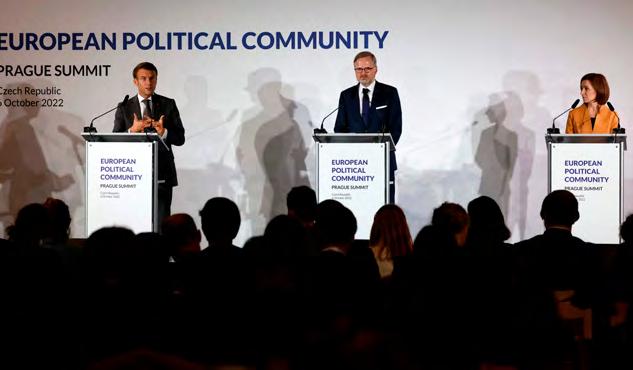
Europe’s reliance on Russian energy has been discussed for years, yet it is disappointing that contingencies were not put in place. Furthermore, Europe cannot continue to rely on the United States for security guarantees. This habit is a failure to properly address the threat Russia and other autocratic states pose to the stability of the Union. While the transatlantic relationship must be nourished, Brussel’s desire to wield hard foreign policy power needs to come from within. To create such an architecture, however, the bloc needs to address the key obstacle of its development: decision-making processes among member states. As the renewed war in Ukraine has shown, the bloc can move fast on some sanctions and armament purchases but struggles with a common defence and security policy. This needs to change.
Although it is easy to assess Putin’s decision to roll tanks across the border into Ukraine as one of a declining power determined to project chaos, in reality it was a calculated step to challenge the resilience of western alliances. On March 20 2022 the Russian Foreign Minister Sergei Lavrov pointed to this when he described the current crisis as a “fateful, epoch-making moment in modern history”. While the unchallenged power of Russian President Vladimir Putin and his warped version of history must be factored in, the Kremlin clearly reached a tipping point. They had been seeding the ground for years by undermining democratic resilience in the West, tampering with free and fair elections, funding far-right nefarious political actors, and giving aspiring autocratic states a framework to clamp down on human rights and independent media. Furthermore, Russia had been keen to use China’s rise to global pre-eminence to break the European as well as the transatlantic unity. During this time, Western partners were focused on finding ways to appease authoritarianism rather than on forming a consequence-led united front against it. Any new bold vision of the European Union must focus not on appeasement but strike a hard balance between action and consequence.
In Europe, new institutions are being experimented with in order to solve the urgent problems of the present. On 9 May 2022, Emmanuel Macron presented the European Political Community (EPG) 2022, intended to be a new intergovernmental organisation including 45 European and Western Asian states to better cooperate in the areas of politics, security, energy, transport, investment, infrastructure and passenger transport. The EPG founding meeting took place on 6 October 2022 in the Czech capital, Prague, in the presence of heads of state and government of over 40 countries. The photo shows French President Emmanuel Macron (left), Czech Prime Minister Petr Fiala (centre) and Moldovan President Maia Sandu at a press conference during the EPG founding summit in Prague. Photo: Ludovic Marin / AFP /APA PicturedeskThe war in Ukraine has shown us now is not the time for complacency. It is high time for new kinds of thinking, for the growth of partnerships, and the continuation of deterrence building. It’s also a time to be flexible in thinking and in strategy.
Any new bold vision for the European Union needs to understand and adapt to a world where anything can happen and everything is weaponised, from supply chains to energy, from information to resource acquisition. Nothing is outside the realm of possible, be it further Russian threats to the bloc’s eastern front, more aggressive economic policies from China or foreign funding for populist actors in democratic states. In this new world we are living in, the European Union will have to act in novel ways that could be at first uncomfortable and costly but will ultimately protect the hard-won values that Europe stands for.
Europe’s Futures is a cooperation between ERSTE Foundation and the Institute for Human Sciences (IWM) to develop new perspectives for a re-strengthened, united, and democratic Europe by engaging liberal-democratic voices from Central, Eastern and South-Eastern Europe in high-level academic, social and political debate on the future of the European Union. Europe is living through its most dramatic and challenging period since World War II. The European project is at stake, and its liberal democracy is being challenged from both inside and outside. There is an urgent need from all quarters of state and non-state actors to address the burning problems, to buttress what has been painstakingly achieved through the political peace project. Since 2018, each year six to eight leading European experts take up an engagement at the Institute for Human Sciences in Vienna. Europe’s Futures creates a platform of voices presenting ideas for action whose goal is to reinforce and project forward a vision and reality of Europe. The programme is an endeavour based on in-depth research, concrete policy proposals, and encounters with state and civil society actors, public opinion and media. It is directed by Ivan Vejvoda.
This essay was published for the first time in June 2022.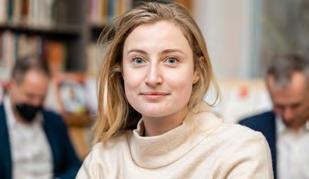
Amanda Coakley is an Irish reporter and producer working in international media. Her fellowship project was an investigation into an under-studied aspect of illiberal policies in Central Europe: the decline of women’s reproductive rights brought about by the rise of ultra-conservatism. Currently a senior staff writer at Coda Story, she has reported for The Irish Times, The Guardian, Foreign Policy, Politico Europe, Financial Times, Al Jazeera, Euronews, RTÉ, CNN International, and others. In October 2020 she covered the war in Nagorno-Karabakh and throughout 2022, the refugee crisis caused by the Russian attack on Ukraine. Prior to her career in journalism she was a publisher at Penguin Random House. In 2021 she was selected among winners of 30 To Watch: Young Journalist Awards in the field of International Affairs.

Olivia Lazard is a French scholar of the geopolitics of climate, the transition ushered by climate change and the risks of conflict and fragility associated with climate change and environmental collapse. She worked for various NGOs, the United Nations, the European Union, donor states in the Middle East, Latin America, Africa and Asia, trying to understand how globalisation and the international
political economy have shaped patterns of violence and vulnerability. Her research has led to European External Action Service integrating environmental peace-making as part of their mediation toolkit. Believing that the European Union stands at a critical juncture with its Green New Deal, Europe’s Futures fellow Olivia produced a case study of a possible full-fledged ecological diplomacy approach to EU’s foreign policy, with novelties such as support for the creation of a global public good regime for the collective management of critical minerals. Her 2022 Ted Talk “The Blind Spots of Green Energy Transition” has been rated among the top 10 on “green energy”.
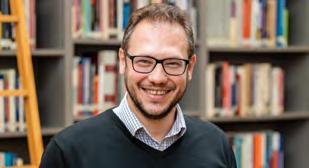
Zoran Nechev is a leading specialist on relations between the European Union and the Western Balkans. He heads the Center for EU Integration of the Institute for Democracy “Societas Civilis”, a North Macedonian thinktank devoted to research and capacity-building in matters related to the EU. He is an associate fellow at the Deutsche Gesellschaft für Auswärtige Politik and was previously affiliated with the Center for International and Comparative Studies at ETH Zürich and the EU Institute for Security Studies. During his fellowship, Zoran analysed Germany’s role in the EU’s strategic shift to greater “strategic autonomy” and how this process could affect membership perspectives for candidate countries in the Western Balkans.
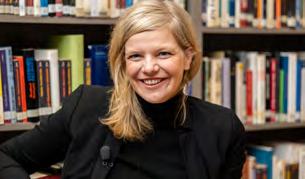
Janka Oertel is a foremost German expert on Chinese foreign policy, green tech transition and security in East Asia. Currently the director of the Asia Programme at the European Council on Foreign Relations, she previously served in leading positions at the German Marshall Fund and Körber Foundation’s Berlin office. She was a visiting fellow at the German Institute for International and Security Affairs (SWP) and worked at United Nations Headquarters as a Carlo Schmid fellow. She has published widely on topics related to EU-China relations, US-China relations, security in the Asia-Pacific region, Chinese foreign policy, 5G and emerging technologies, as well as climate cooperation. For Europe’s Futures, Janka assessed China’s leadership’s approach to the economic dimensions of the green transition and articulated policy recommendations on how to best manage and mitigate the impact of China’s new role as a competitor to the European Union on the green tech transition.
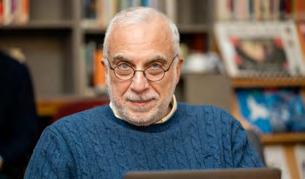
Soli Özel is a professor of international relations and political science at Istanbul Kadir Has University and a crucial independent voice and commentator on political developments in Turkey. Soli’s articles and opinion pieces appear in a wide variety of leading newspapers in Turkey and elsewhere around
the world. He is a columnist for Haberturk newspaper and a frequent contributor to The Washington Post’s Post Global. He is on the board of directors of International Alert and a member of the European Council on Foreign Relations. His recent publications include A Moment of Elation: The Gezi Protests/Resistance and the Fading of the AKP Project and The Making of a Protest Movement in Turkey: #Occupygezi. Soli’s research as Europe’s Futures fellow investigated the most likely scenarios for Turkey’s political future and its relationship with the European Union and what implications these may have.

Oana Popescu-Zamfir is director of the thinktank Global Focus Center and a renowned public figure in Romania. She is a former State Secretary for EU Affairs in the Romanian government and a former foreign policy adviser to the president of the Romanian senate. She also directs the Democratic Resilience Index project, which assesses democratic resilience in several Central European countries. She was a Fulbright grantee at Yale University and served as teaching assistant to the former UN Secretary General adviser Charles Hill and to the prominent historian Paul Kennedy. As a Europe’s Futures fellow, Oana focused on the interaction between democracy and security in the post-truth (disinformation) era and how it reflects on the democratic resilience of European societies.

Wojciech Przybylski, a distinguished public intellectual from Poland, used his Europe’s Futures fellowship to write a strategic foresight study with four different scenarios that map out how European democratic security will be challenged by 2030, and how to prepare for it. Wojciech is the editor-in-chief of Visegrad Insight portal and chairman of Res Publica Foundation in Warsaw. Previously, he was the editor-in-chief of Eurozine, a magazine representing a network of European cultural journals. He has launched and leads the New Europe 100 project that is creating a community of successful innovators from CEE in cooperation with Financial Times and Google. He has published in Foreign Policy, Politico Europe, Journal of Democracy, EU Observer, VoxEurop, Hospodarske noviny, Gazeta Wyborcza, and others. His book Understanding Central Europe (co-ed. with Marcin Moskalewicz) was published in 2017 by Routledge.
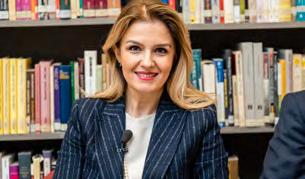
Valbona Zeneli’s fellowship goal was to examine how continued expansion of Chinese engagement in Central and South-Eastern Europe could affect the EU integration process of the candidate countries in the Western Balkans and how the European Union should respond. Uniquely qualified for the topic, Valbona is a German-Albanian scholar and since
2011 national security professor and the chair of the Strategic Initiatives Department at the George C. Marshall European Center for Security Studies. Previously, she served as the Black Sea and Eurasia programme director, as professor of international economics at the European University of Tirana and as associate professor at the New York University of Tirana. She was chief of protocol and later the economic adviser to the Albanian prime minister. In 2022 she was among recipients of the Inspiration Award for women who have made a significant impact in their fields and who serve as role models for the next generation of women.
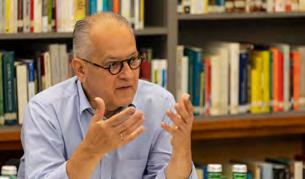
Ivan Vejvoda is head of Europe’s Futures at the Institute for Human Sciences (IWM) in Vienna. Before joining the IWM as a permanent fellow in 2017, he was Senior Vice President for Programs at the German Marshall Fund (GMF) of the United States. From 2003 until 2010, he served as executive director of GMF’s Balkan Trust for Democracy. He came to GMF in 2003 after distinguished service in the Serbian government as a senior adviser on foreign policy and European integration to Prime Ministers Zoran Ðjinđjić and Zoran Živković. Prior to that, he served as executive director of the Belgrade-based Fund for an Open Society. Ivan Vejvoda was a key figure in the democratic opposition movement in Yugoslavia during the 1990s, and has published widely on the subjects of democratic transition, totalitarianism, and post-war reconstruction in the Balkans.
The states in the Western Balkans with candidate status are Albania, Bosnia and Herzegovina, Montenegro, North Macedonia, and Serbia. Kosovo is an applicant. At the European Council on 24 June, 2022 Ukraine and Moldova were granted candidate status; Georgia is still an applicant.
A long version of this text was published in June 2022. Co-authors: Nikola Dimitrov, Srdjan Cvijić, Isabelle Ioannides, Zoran Nechev, Ioannis Armakolas, Oana Popescu-Zamfir, Valbona Zeneli, Stefan Lehne and Rosa Balfour. Edited by:
Thanks to geography, the stability, security and democratic resilience of the Western Balkans are inextricably linked to the EU’s own stability, security and democratic resilience. Faced with an ongoing war of territorial conquest in Ukraine and hence an all-out assault against the European security order, it is in the EU’s strategic interest to anchor all like-minded countries by having them adhere to its vision of a rules-based system.
Zoran Nechevand Tim Judah
The EU can do this only by jump-starting the stalled accession process of like-minded Western Balkan countries. If the EU cannot secure the countries that it entirely surrounds, it will never achieve either strategic autonomy or manage to play a global role. The Western Balkans is the missing puzzle in Europe’s jigsaw for creating an integrated and coherent geopolitical space. Simply put, any vision and planning for the EU’s strategic autonomy and European sovereignty will be seriously undermined if the Western Balkans, the space that is crucial for European security, remains up for geopolitical grabs. It is essential for the EU to keep geopolitical competitors or adversaries out of the region that is, to quote President Emmanuel Macron, “in the heart of Europe”.
Granting Ukraine, Moldova and Georgia an accession perspective will send shock waves through the existing enlargement process. But simply using an already failing template for them would only result in stagnation and frustration in both regions. In order to deliver positive outcomes, the process must become more flexible, dynamic and rewarding.
Adjusting the existing methodology to the new challenges should be based on the following principles:
1A relentless focus on the fundamentals – rule of law, democratic standards, and economic reforms – in order to promote progress in governance and prevent backsliding. Inclusion in the EU monitoring mechanisms such as the Rule of Law Report, EU Justice Scoreboard, the European Semester and others in order to counter the perception that enlargement risks diluting democratic standards in the EU.
2
The gradual phasing-in of candidate countries in various sectors of EU integration would build institutional capacity and promote cooperation and trust between candidates and member states. The Commission, in coordination with member states and accession countries, should work towards bold proposals for phasing-in EU policies that would be of mutual interest to all. An example of this could be the participation in the EU internal market as a priority interim objective for all interested accession countries.
3
Increase socialisation (including financial) in European institutions: Fulfilment of precise criteria and standards in specific sectors should be rewarded with targeted financial support from the funds now reserved for EU member states. Likewise, this can be enhanced with candidate country participation in the capacity of observers with a right to contribute to discussions but without voting rights to meetings of the Council and its bodies in specific policy areas.
4
Earlier access to structural funds to reduce the gap in financial support between candidates and member states and promote socio-economic convergence. The Western Balkans is one of the most socio-economically underdeveloped parts of Europe. An earlier and gradual increase of financial support would lead to earlier socio-economic development benefits.
5
Elevate foreign and security conditionality to an equal footing with the current focus on the fundamentals. In the new geopolitical environment, the fundamentals and external relations should be the two pillars that determine progress and/or backsliding in the accession process or eventual closer association.
6
Streamlining the decision-making process on enlargement in order to reduce the number of vetoes. The need to protect and, at the same time, streamline the decision-making process against the abusive use of veto powers is imperative.
Six Fixes for the Western Balkan Six - YouTubeLogo-Shortcut
Lorem ipsum dolor sit amet, consetetur sadipscing elitr, sed diam nonumy
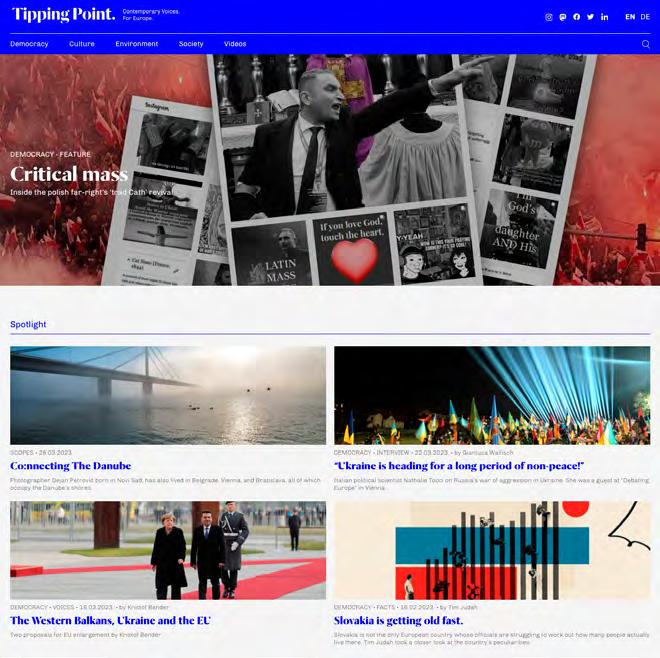
sadipscing elitr, sed diam nonumy eirmo na aliquyam erat, sed diam voluptua. At v a rebum. Stet clita kasd gubergren, no s sit amet. Lorem ipsum dolor sit amet, numy eirmod tempor invidunt ut labore e
In 2022, ERSTE Foundation’s online magazine got a fresh layout, a new web address and a new name: Tipping Point. For five years prior to that, we had been publishing articles on ERSTE Foundation’s website that dealt with societies in Central and Eastern Europe, their social cohesion, state of democracy and activities in the realm of contemporary culture. The magazine, which did not have a name then, grew and matured during this period. It developed its own identity – and it deserved greater visibility. So we created more space for it at www.tippingpoint.net.
271 journalistic pieces appeared in English and German in the ERSTE Foundation magazine until December 2022. 40 of them were exclusive videos. 160 authors, many of whom are from Eastern Europe, have offered us their best work or written exclusively for us. We have collaborated with artportal, Balkan Insight, Datum, dekoder, Dennik N, Eastblog, Der Standard, Die Presse, Eurozine, Falter, IWM Post, Neue Zürcher Zeitung, period., Republik, Political Critique, and others.
As in the past, many of the authors in Tipping Point come from Central and Eastern Europe. We are interested in conveying topics from other discourses, but we are also interested in translations in the literal sense. We make articles that were originally only published in an Eastern European language, or only in English or German, available to readers who speak English and German. A special thanks goes to the editors and authors who have put their trust in us and provided us with their extraordinary stories either exclusively or for re-publication in translation. We met some of them through our projects promoting independent journalism. It is important to us to bring their expertise to a wider audience.
The phrase tipping point was first used in physics. It refers to the point at which a phenomenon that has been developing in a smooth, straight line suddenly stops, changes direction, or greatly accelerates as a result of feedback. Sociologists, economists, environmentalists, epidemiologists, and others have adopted the term because it accurately describes phenomena in their fields of research too. The coronavirus pandemic has familiarised all of us with calculations that aim to determine the point at which the spread of an infectious virus in society can no longer be controlled by conventional means such as care and prevention.
Canadian author Malcolm Gladwell has postulated that ideas and types of behaviour spread through society like an infectious disease. His book The Tipping Point – How Little Things Can Make a Big Difference (2000) brought the term to the attention of a larger audience. Gladwell wasn’t just interested in how to recognise a trend or how to steer it before it reaches its tipping point; he also wanted to know how to prevent a thing from tipping to the wrong side and how to actively contribute to positive group behaviour.

At what point does migration become a crisis?
Taking this idea and applying it to the current time, we could ask a number of questions: Why do random bits of fake news suddenly become widely accepted as truth? How do people stir up fierce controversy in social media? At what point does migration become a crisis? When do people get tired enough of corruption and tyranny to take to the streets and demand democratic reforms? How did the school strike of a 15-year-old girl in Stockholm turn into a global movement of protest? We would like to hear and read more about these types of questions in this magazine.
Good stories always have something that hangs in the balance, whether they are about crimes, corruption, the environment, democracy, art, revolutions, tragedies or victories. Writers and journalists hunt for these turning points. They want to know when and why a society or a family loses its footing.
American political scientist Morton Grodzins was the first person to borrow the idea of a tipping point from physics and use it in sociology. Grodzins examined integration in American residential areas, and the study he released in the late 1950s could hardly be more relevant today. It found that most white families remained in an area as long as the number of black families remained low. As soon as there was “one black family too many”, the remaining white families moved away en masse. He referred to the moment when this “white flight” began as a tipping point.
You can call the death of George Floyd in May 2020 and the protests against racism and structural discrimination that followed all around the United States and the world a tipping point for the Black Lives Matter movement that was founded in 2013. The movement condemns the disproportionately frequent and often lethal violence that police inflict on People of Colour, a phenomenon that has become almost an everyday occurrence in racist societies. So although George Floyd’s death was definitely an outrageous event, it was not an extraordinary one. The real scandal is how common that type of violent act is and how little attention it receives. The difference between it and similar cases was only that this one was caught on video and the government responded with so little empathy. It was the “one murder too many”.
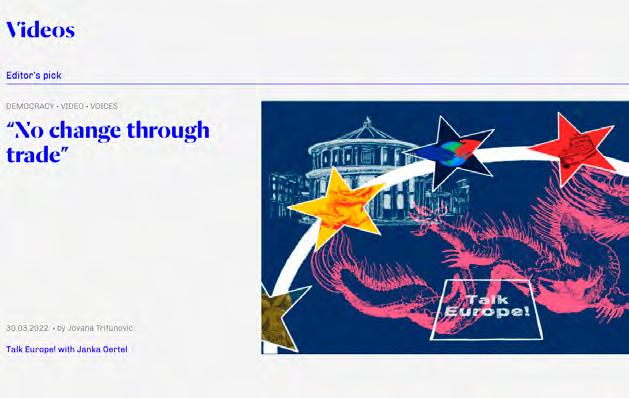
So tipping points don’t necessarily need to be spectacular events. They are often the famous last straw that breaks the camel’s back. This shows that the people chronicling current events shouldn’t just focus on the moment when things get out of hand or on the dawn of a “new normal”, or – using the terminology of editors: on the most sensational story. It’s just as important to focus on all of the little straws that were placed on the camel’s back before – all those personal stories and fates that go unnoticed day after day. Because each one of those straws is just as significant as the last straw, and we can never know which one of them just might be the last one that pushes things over the edge.
„If you can’t fly, run. If you can’t run, walk.
If you can’t walk, crawl, but by all means, keep moving.”
MARTIN LUTHER KING JR.
Straws can do more than break a camel’s back. It’s also an essential material for making bricks, or at least it used to be. Recall the saying, “You can’t make bricks without straw”, which means that you can’t start a project without the most important materials. For the people and topics in our magazine, the necessary ingredients for bringing about sustainable, positive change include patience, clear goals, and enthusiasm. Persistence and the power of small steps are important components too. After all, it takes a lot of bricks to build something new.
Martin Luther King Jr.’s speeches express this idea far more elegantly. The following lines come from one of his most famous addresses, the one he gave on success in life to the youth at Barratt Junior High School in Philadelphia on 26 October 1967: “If you can’t fly, run. If you can’t run, walk. If you can’t walk, crawl, but by all means, keep moving.” We pinned that over our editor’s desk. Tipping Point will report on the people who keep their eyes on the ball and don’t give up. Because they are doing the right thing. By all means, keep moving!
We believe that culture is a central part of our identity.
Every society needs culture: as a laboratory in which the past is considered, the present criticised and the future imagined. Culture strengthens the complex identities in Eastern Europe’s societies. We therefore want to explore important artistic practices in the recent Eastern European history.
The cultural heritage of dissident history must be secured and made accessible to an international audience. Artists need (free) spaces for their production, theorists need international recognition; and both, work and interpretation, should be accessible.
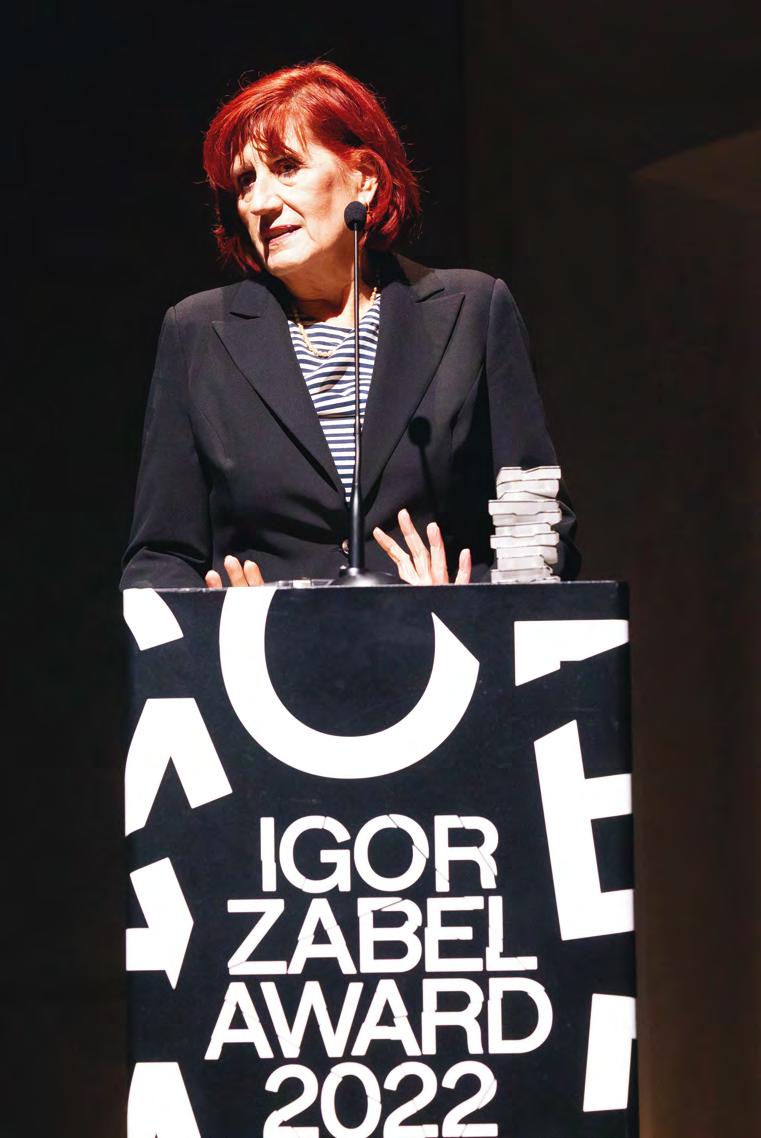
Art historian and curator Bojana Pejić was awarded the Igor Zabel Award 2022 for transforming the way we see postwar art from Eastern Europe.
The 2022 Igor Zabel grants went to Oksana Briukhovetska, Alina Șerban and Antonina Stebur.
The Igor Zabel Award for Culture and Theory 2022 was presented to art historian and curator Bojana Pejić in Ljubljana on 18 November 2022. Pejić, who was born in Belgrade in 1948 and has been living in Berlin for a long time, received the 40,000 euro accolade for her lifelong research into the constituent elements of Eastern European art and culture. In its statement, the international jury pointed out that her writings and particularly her complex international exhibitions such as After the Wall: Art and Culture in Post-Communist Europe (1999–2001) and Gender Check: Femininity and Masculinity in the Art of Eastern Europe (2009–2010), which was initiated and financed by ERSTE Foundation, had had a worldwide impact and a lasting influence on our understanding of art under state socialism. They also “provide a critical analysis of post-socialist culture after 1989”.
Bojana Pejić was born in Belgrade in 1948 and graduated in art history from the Faculty of Arts, University of Belgrade in 1975. She started to write about contemporary art as early as 1971. From 1977 until 1991, she worked as a curator at the Student Cultural Centre of Belgrade University. In the 1980s, she was a contributor to Artforum International and other international publications. Bojana Pejić has been living in Berlin since 1991. Her most important exhibition projects include After the Wall: Art and Culture in Post-Communist Europe (1999–2001), Aspects/Positions: 50 Years of Art in Central Europe 1949–1999 (co-curator, 2000), Gender Check: Femininity and Masculinity in the Art of Eastern Europe (2009–2010) and HERO MOTHER: Contemporary Art by Post-Communist Women Rethinking Heroism (co-curator, 2016). Most recently, from 2018 to 2022, she was a senior non-resident fellow at the New Europe College in Bucharest on the Getty Program’s seminar “Periodization in the History of Art and its Conundrums: How to Tackle Them in East-Central Europe”.
The jury went on to say that Bojana Pejić works alone or with transnational teams to survey what Eastern European countries have in common and how their art makes visible the history, nationalism, and gender politics of the region. “Pejić’s understanding of Eastern Europe transcends ideological pictures of an oppressed and underdeveloped East. She explores its varied cultural histories, treating them not as derivative products of Western exemplars but as heterogenous and specific, having their own unique importance. What’s more, her writings and exhibitions generate conclusions that are valuable beyond Eastern Europe: they provide lessons on art, society, and power structures relevant to audiences around the world. Bojana Pejić is an art historian and also an activist for whom academia is never sufficient. She compels us to reread our past in order to change our common future.”
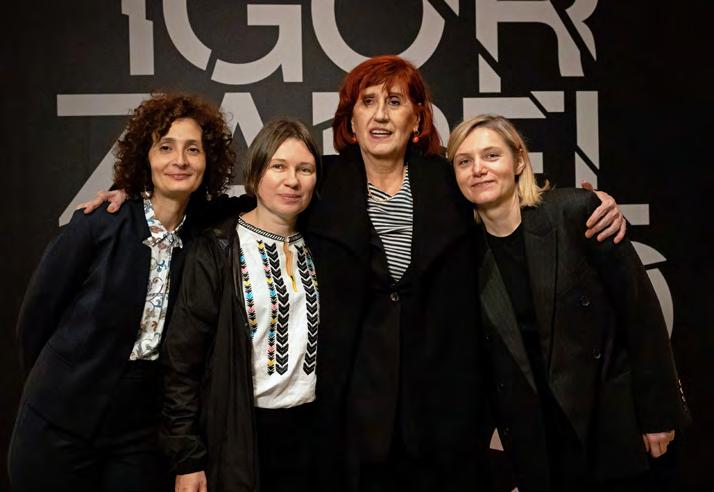
Bojana Pejić is responsible not only for the international recognition of many artistic voices, but also for creating critical self-reflecting knowledge about our shared history. Her curiosity, opinions, strength, and ongoing self-assessment have made her one of the most respected figures in her field. Virtually all attempts to historicise the art of Eastern Europe make reference to her work, and virtually all discussions on gender construction take place in the context of what she has established and shaped. Her consistently feminist reading of art from Eastern Europe (…) went beyond a simple narration of the particularities shaped by state socialism and the post-1989 history of the region. What’s more, her writing and exhibitions generate conclusions that are valuable beyond Eastern Europe: they provide lessons on art, society, and power structures relevant to audiences around the world. Her projects are test grounds – full of cross-references – that show rather than assume, and history is never petrified in them. With her work, Bojana Pejić invites us into a never-ending critical process.
Excerpts from the detailed jury statement
On 17 November, one day prior to the award ceremony held at Ljubljana’s Cukrarna Gallery, we hosted an international conference on the future of life on our planet at Cankarjev dom. Titled So Close: Ecologies of Life and Death, it broached the topic from the perspective of life’s end. Speakers Maja and Reuben Fowkes, Thom van Dooren, Šejla Kamerić, Marietta Radomska, Boštjan Videmšek and Mick Wilson talked about loss, decline, mourning and death. In their discussions, they sought to transcend the binary of, on the one hand, dystopian pessimism about the future and, on the other, utopian optimism about the fundamental human capacity to determine its own fate.
In addition to the main prize, three grants of 12,000 euros each are awarded.
In 2022 grant recipients were:
Oksana Briukhovetska
(Kyiv/Michigan), artist, curator and art writer
Oksana Briukhovetska received a grant for her outstanding contribution to the artistic and activist life in Ukraine and beyond; her work triggers processes of democratisation under the most demanding circumstances and raises feminist awareness.
Alina Șerban
(Bucharest), art historian, art writer, curator and editor
One grant went to Alina Șerban in recognition of her exceptional ability to create self-managed organisations and platforms that bring together Central and Eastern European researchers, practitioners, and cultural workers, and develop new transnational and transcultural perspectives and terminologies for issues that have previously been underdeveloped or marginalised.
Antonina Stebur
(Minsk, currently Poland and Germany), curator, art writer and researcher
The jury acknowledged Antonina Stebur’s extraordinary power of resistance, her commitment to decolonising Belarusian art, and her belief that art is a practical instrument of political imagination.
The first award was presented in 2008 in Ljubljana, the city where Igor Zabel lived and worked. It went to the Croatian curatorial collective What, How & for Whom (WHW), currently the artistic directors of Kunsthalle Wien. Art historian Piotr Piotrowski (1952–2015) received the award in 2010, North-Macedonian art historian and curator Suzana Milevska in 2012. In 2014, Russian-born curator and author Ekaterina Degot, currently director and chief curator of steirischer herbst in Graz, received this accolade. Russian curator and author Viktor Misiano was the award winner in 2016. Joanna Mytkowska, the Polish art historian, curator and director of the Museum of Modern Art in Warsaw, received the Igor Zabel Award 2018. In 2020 the award went to a colleague of Igor Zabel, Zdenka Badovinać, curator, art historian, writer, and long-time director of Moderna galerija in Ljubljana. She became head of the Museum of Contemporary Art Zagreb (MSU) in 2022.

 Urška Jurman and Boris Marte at the award ceremony of the Igor Zabel Award for Culture and Theory 2022. Photo: Nada Žgank
Urška Jurman and Boris Marte at the award ceremony of the Igor Zabel Award for Culture and Theory 2022. Photo: Nada Žgank
The Igor Zabel Award for Culture and Theory acknowledges the exceptional achievements of cultural workers whose work supports, develops, or investigates visual art and culture in Central, Eastern and South-Eastern Europe. The award has been conferred biennially since 2008 in cooperation with the Igor Zabel Association for Culture and Theory (Ljubljana) and is named in honour of the renowned Slovenian curator and art historian Igor Zabel (1958–2005). Endowed with prize money totalling 76,000 euros, it is one of the most generous and prestigious prizes for cultural achievements related to Central, Eastern and South-Eastern Europe.
The prize is not awarded based on an application process. A three-member international jury selects the laureate and recipients of three grants based on proposals given by 10 nominators. The 2022 jury consisted of Marta Dziewańska (philosopher and curator, Kunstmuseum Bern), Ahmet Öğüt (artist, Berlin/Amsterdam) and Tomáš Pospiszyl (art historian and curator, Prague). The 2022 nominators were Luchezar Boyadjiev (artist, Sofia), Olga Chernysheva (artist, Moscow), Anetta Mona Chisa (artist, Prague), iLiana Fokianaki (curator, theorist and educator, Athens/Rotterdam), Dóra Hegyi (curator, Budapest), Klara Kemp-Welch (art historian, London), Inga Lāce (curator, Riga), Lena Prents (art historian, Berlin), Kate Sutton (curator and art historian, Zagreb) and Ovidiu Ţichindeleanu (philosopher and art theorist, Chişinău/Cluj).
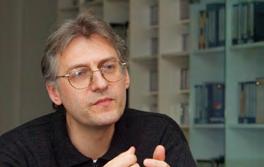
During his entire professional life, Igor Zabel (1958–2005) was actively involved in many fields of theory and culture – as an art historian, modern and contemporary art curator, writer, literary and art critic, columnist and essayist, translator, and mentor for new generations of curators and critics of contemporary art. As art historian and curator of Ljubljana’s Moderna galerija, Zabel made an important contribution to the placement of historical avant-gardes and neo-avant-gardes as well as to contemporary artistic practices in Slovenia and the broader region. His writings represent significant contributions to discourses on the geopolitics of art in Eastern Europe.
You can watch the conference and award ceremony here: Igor Zabel Association YT Channel
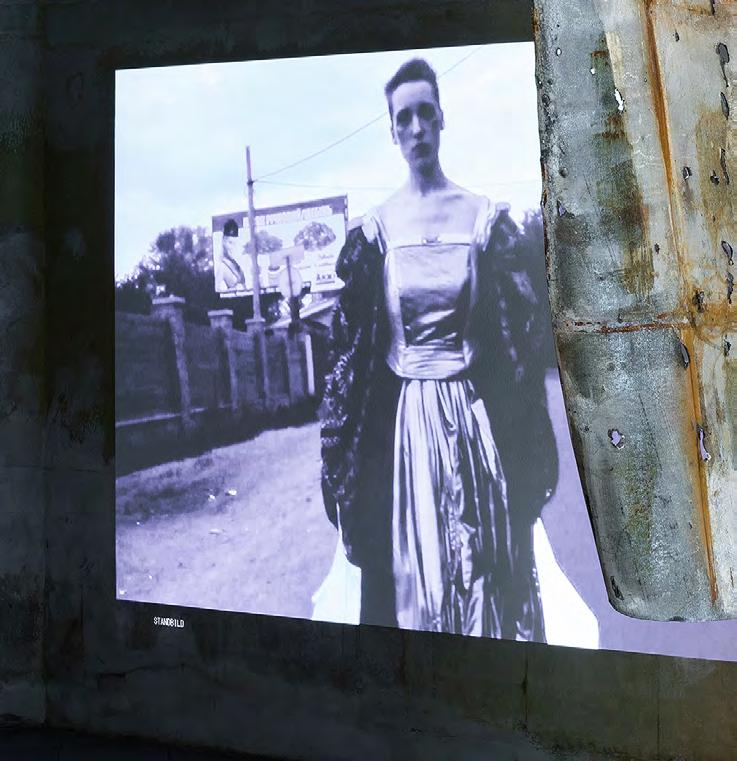 Exhibition view with works by Alina Kleytman and Nikita Kadan, Vienna 2022.
Exhibition view with works by Alina Kleytman and Nikita Kadan, Vienna 2022.
An exhibition by the Kontakt Collection in Vienna in 2022 provided an artistic view on past and current wars.
SILVIA EIBLMAYR and KATHRIN RHOMBERG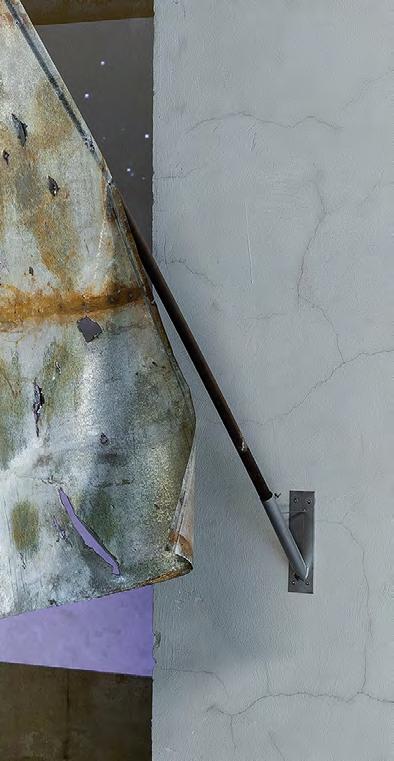
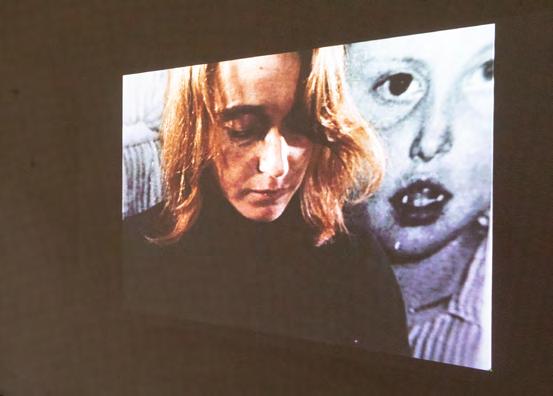
General Alert. Wars That Have Never Ended Vienna, 22 Oct – 27 Nov 2022
Artists: Heimrad Bäcker (AT), Sokol Beqiri (KO), Ștefan Bertalan (RO), Pavel Brăila (MD), Geta Brătescu (RO), Anna Daučíková (SK), Róza El-Hassan (HU), VALIE EXPORT (AT), Tomislav Gotovac (HR), Ion Grigorescu (RO), Sabine Groschup (AT), Sanja Iveković (HR), Anne Marie Jehle (AT), Anna Jermolaewa (RU), Nikita Kadan (UA), Alevtina Kakhidze (UA), Šejla Kamerić (BA), Alina Kleytman (UA), Ana Lupaș (RO), Dimitrije Bašičević Mangelos (HR), Roman Ondak (SK), R.E.P. Group (UA), Erna Rosenstein (PL), Zorka Ságlová (CZ), Wilhelm Sasnal (PL), Erzen Shkololli (KO), Mladen Stilinović (HR), Ceija Stojka (AT), Slaven Tolj (HR), Milica Tomić (RS), Endre Tót (HU), Zsuzsi Ujj (HU), Jasmila Žbanić (BA), Artur Żmijewski (PL)
Russia’s war of aggression against Ukraine clearly indicates that the wars of the past have never truly ended. Their ramifications continue to play a role in shaping Europe’s geopolitical, social and economic order to this day. That is one reason why artists continue to be drawn to topics regarding wars and their consequences. The exhibition General Alert. Wars That Have Never Ended was held in Vienna from 22 October to 27 November 2022. On the premises of ERSTE Foundation and in five other locations close by – most of them former, unrenovated commercial spaces that gave the show an aura of abandoned places –, the exhibition featured a total of 65 works by 34 artists who reflect on their more or less direct personal experience of war or who deal with it conceptually.
The exhibition was curated largely from the collection’s holdings by Kontakt advisory committee member Silvia Eiblmayr and the head of the Kontakt Collection, Kathrin Rhomberg, and focuses on works from Eastern and South-Eastern European countries as well as from Austria. They revolve thematically around the wars in Ukraine and former Yugoslavia as well as the Holocaust. Some of the works on display also deal with the subjective, the existential, and the corporeal as expressions of melancholy, injury, anxiety and criticism, thereby also manifesting tensions with political reality.
General Alert is borrowed from the title of a work by Sanja Iveković from 1995. While the air-raid warning for Zagreb (Opća Opasnost Zagreb) was superimposed onscreen during regular TV programming, she recorded selected cinematic scenes where fictional drama intertwines with reality. In his most recent work, Moldovan artist Pavel Brăila has been filming on the border of Ukraine and his home country since the beginning of the war against Ukraine. Vera, a woman from Ukraine, represents the danger, the fear and suffering of hundreds of thousands of women and children who have since been forced to flee. Anna Jermolaewa, who will represent Austria at the Venice Biennale in 2024, presented the film Kiev (After Lumière) (2021), in which a freight train of martial aesthetics thunders right through the middle of a flea market set up on both sides of the tracks. Today it has become a parable of the terror caused by the lethal machinery of war that has swept over the country.


Images of psychological and physical violence tell poignantly of traumatic experiences, such as VALIE EXPORT’s film … Remote … Remote (1973); Ion Grigorescu’s photographs (1977); Ștefan Bertalan’s drawings (1989); Milica Tomić’s videos (1996/1997, 1999), made during the wars in former Yugoslavia; or Alina Kleytman’s sombre nocturnal walk through a Ukrainian city (2017). Artur Żmijewski staged the sadism inherent in military rituals (2000), while the R.E.P. Group (2005, 2006) rehearsed resistance in bizarrely provocative actions on Kyiv’s Maidan.
The absolute break with civilisation represented by the Holocaust and Austria’s complicity therein have been downplayed, suppressed and tabooed for decades. In light of this approach to dealing with the history of the Holocaust, the way in which Cold War-era politics helped repress memories of crimes against humanity becomes particularly comprehensible. It was only 50 years after she survived the concentration camps as a child, that Ceija Stojka began
Milica Tomić, xy unsolved - Reconstruction of the Crime, 1996/97, Vienna 2022.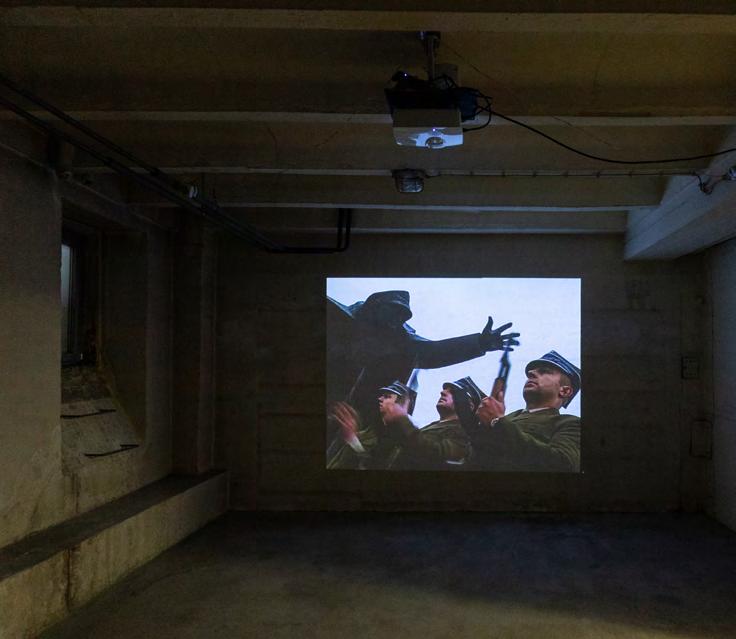
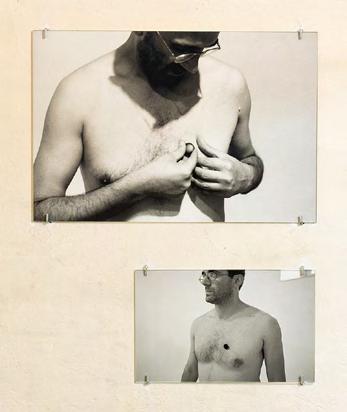 Artur Żmijewski, KR WP, 2000, Vienna 2022.
Photo: Oliver Ottenschläger
Slaven Tolj, Valencia-Dubrovnik-Valencia, 2003, Vienna 2022.
Artur Żmijewski, KR WP, 2000, Vienna 2022.
Photo: Oliver Ottenschläger
Slaven Tolj, Valencia-Dubrovnik-Valencia, 2003, Vienna 2022.


to record what she had experienced back then. Erna Rosenstein, who was able to escape from the L’viv ghetto by fleeing and then going into hiding, likewise created her work recalling that time much later. Memories Do Not Die (2018) by Sabine Groschup is dedicated to the Jewish people in Vienna who were forced into so-called collective housing, in this case on Novaragasse, before being deported. Heimrad Bäcker is the most important documentarian of National Socialist rule in Austrian concentration camps (Konzentrationslager Mauthausen, 1970–1975). In the context of this exhibition, the painting Paysage de la mort (1971–1977) by Dimitrije Bašičević Mangelos became a metaphor for an age of wars that never end.
In her drawings and posters, the Ukrainian artist Alevtina Kakhidze deals with life in a country forced to defend itself in a war not of its own making. The exhibition featured a poster she created on 10 October 2022, when Kyiv and other Ukrainian cities were again hit by Russian missile fire. For this annual report (see pages 22 to 29) she provided another seven drawings. We are very grateful for the permission to reproduce these intimate insights into the everyday life of war.
Šejla Kamerić, Bosnian Girl, 2003, Vienna 2022. Photo: Oliver Ottenschläger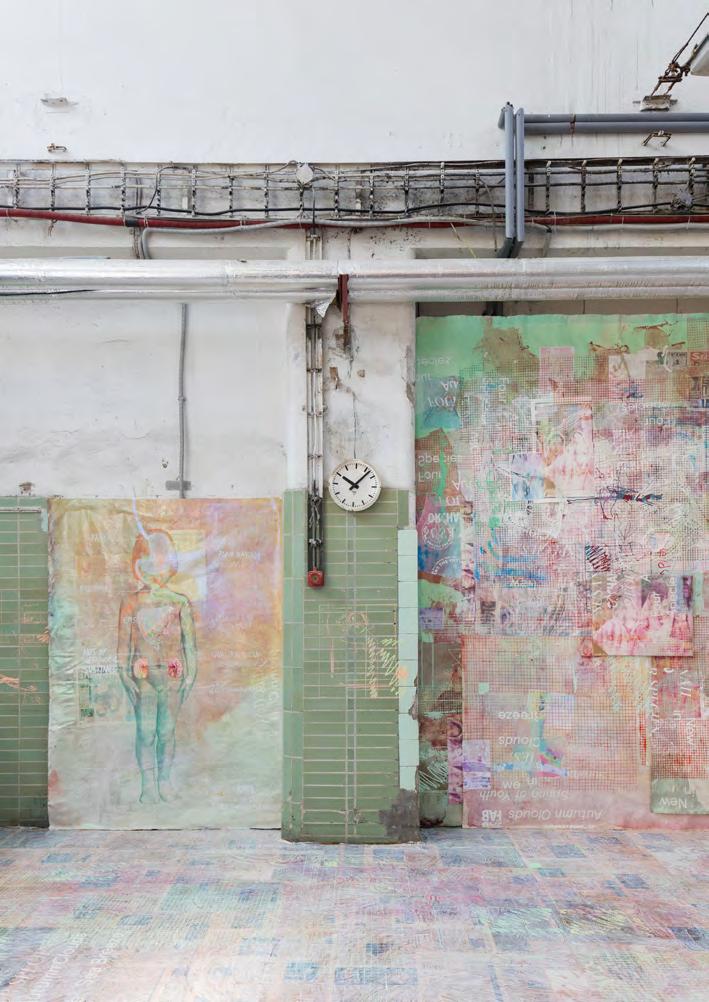 Biennale Matter of Art 2022
Exhibition view, General Faculty Hospital: Mandy El-Sayegh, Alice Walter, Lily Oakes
Biennale Matter of Art 2022
Exhibition view, General Faculty Hospital: Mandy El-Sayegh, Alice Walter, Lily Oakes
The central themes of the second edition of the Biennale “Matter of Art” in Prague were vulnerability, resilience, and trauma, from both collective and individual perspectives. A journey in pictures through the exhibition in 2022.
tranzit.cz has set itself the ambitious goal of establishing a new biennale in Prague. The “Matter of Art” Biennale (MoA) aims to consolidate a highly regarded, socially engaged art event with strong international connections and firm ties to Prague.
The very first edition of the MoA Biennale in Prague premiered in 2020 and suffered badly from the pandemic. It took place under harsh conditions of travel restrictions and lockdowns. In 2022, the second edition of the MoA Biennale could finally put its concept on full display and offer “new perspectives on the origins of contemporary crises and the ways in which we construct collective identity”.
Conceived by an international group of curators – Rado Ištok, Renan Laru-an, Piotr Sikora, and the tranzit.cz collective –, the programme specifically explored the question of decolonisation in Central and Eastern Europe by examining the relations between this region and other parts of the world.
Spanning across three venues – the Prague City Gallery, the General Faculty Hospital, and the Šaloun Studio – the exhibition comprised works by 45 artists from Ukraine, the Philippines, Czechia, Romania, Sweden, and more. Eight new commissions co-produced by MoA were created and exhibited for the first time. The public programme comprised more than 80 events, including performances, debates, and workshops. For three months, the activities organised in the framework of the Biennale attracted more than 11,700 visitors, which reflected tranzit. cz’s commitment to making art publicly accessible with free admission to the exhibition and accompanying events.
“The central theme of the exhibition was vulnerability. Every person has a weak spot, a childhood self, a memory of something painful. Sometimes such injuries are caused by injustice in our society. Sometimes, the most vulnerable among us – people who are excluded for various reasons, people who are ill or those with disabilities, children, single mothers who were left alone with their kids, and even animals or things – don’t have a position in our society to tell their stories. This exhibition should be such a place for them,” commented tranzit.cz programme director Tereza Stejskalová at the opening of the exhibition.
Biennale Matter of Art 2022, Prague
21 July – 23 October 2022
Venues Prague City Gallery, General Faculty Hospital, Šaloun Studio
Curated by Rado Ištok, Renan Laru-an, Piotr Sikora, and tranzit.cz Organiser tranzit.cz in cooperation with the Prague City Gallery Collaboration tranzit.cz/Biennale Matter of Art is part of the East Europe Biennial Alliance (eeba.art)
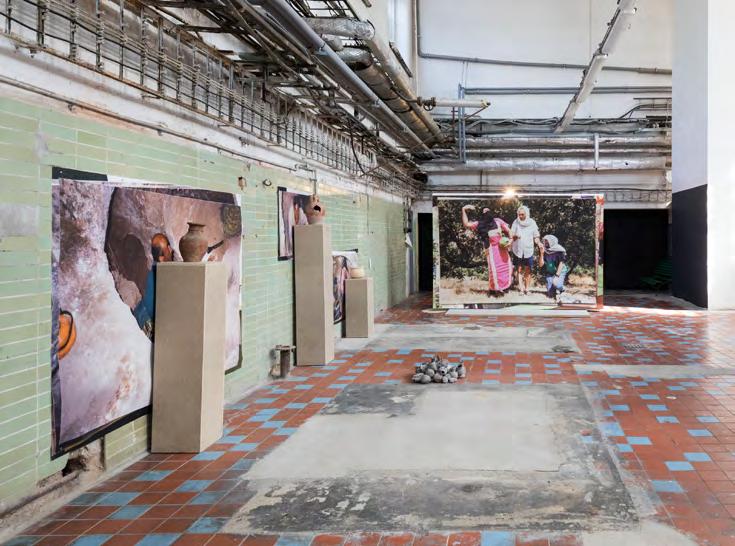
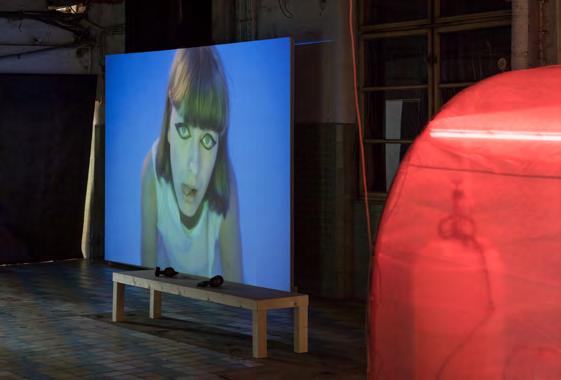 Biennale Matter of Art 2022
Exhibition view, General Faculty Hospital: Marie Tučková
Photo: Jonáš Verešpej
Biennale Matter of Art 2022
Exhibition view, General Faculty Hospital: Michal Bar-Or
Biennale Matter of Art 2022
Exhibition view, General Faculty Hospital: Marie Tučková
Photo: Jonáš Verešpej
Biennale Matter of Art 2022
Exhibition view, General Faculty Hospital: Michal Bar-Or

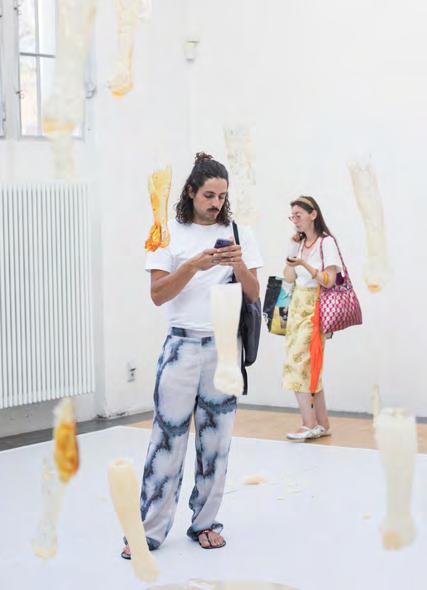
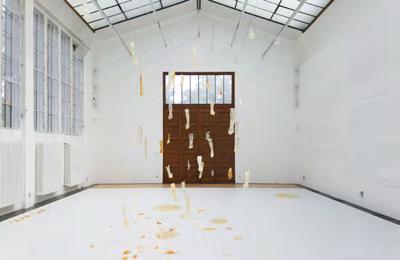 Biennale Matter of Art 2022
Exhibition view, Šaloun Studio: Robert Gabris, Luboš Kotlár
Photo: Jonáš Verešpej
Biennale Matter of Art 2022
Exhibition view, Šaloun Studio: Robert Gabris, Luboš Kotlar
Biennale Matter of Art 2022
Exhibition view, Šaloun Studio: Robert Gabris, Luboš Kotlár
Photo: Jonáš Verešpej
Biennale Matter of Art 2022
Exhibition view, Šaloun Studio: Robert Gabris, Luboš Kotlar

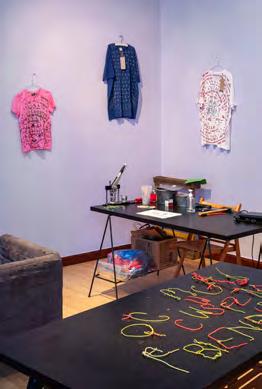
 Biennale Matter of Art 2022
Exhibition view, Prague City Gallery: Tarek Lakhrissi, Ceija Stojka
Photo: Tomáš Souček
Biennale Matter of Art 2022
Exhibition view, Prague City Gallery: Hanni Kamaly
Photo: Tomáš Souček
Biennale Matter of Art 2022
Exhibition view, Prague City Gallery: Collective Pradelna/Laundry Collective
Biennale Matter of Art 2022
Exhibition view, Prague City Gallery: Tarek Lakhrissi, Ceija Stojka
Photo: Tomáš Souček
Biennale Matter of Art 2022
Exhibition view, Prague City Gallery: Hanni Kamaly
Photo: Tomáš Souček
Biennale Matter of Art 2022
Exhibition view, Prague City Gallery: Collective Pradelna/Laundry Collective
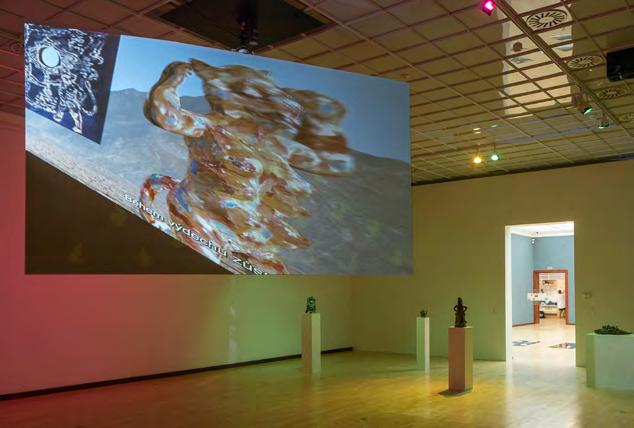
Participating artists: Hamja Ahsan (United Kingdom), Gwendolyn Albert (United States/Czech Republic), APART (Slovakia), Michal Bar-Or (Israel), Anca Benera & Arnold Estefán (Romania), Hera Büyüktaşcıyan* (Turkey), Larisa Crunţeanu (Romania), Nolan Oswald Dennis (South Africa), Patricia Domínguez (Chile), Mandy El-Sayegh with Alice Walter and Lily Oakes (United Kingdom), Brenda Fajardo (Philippines), Florin Flueras (Romania), Ramon Guillermo (Philippines), Filip Herza (Czech Republic), Jana Horváthová (Czech Republic), Robin Hartanto (Indonesia), Robert Gabris* (Austria) & Luboš Kotlár* (Slovakia) (from the i pack* collective, formerly with Cat Jugravu), Brigitta Isabella (Indonesia), Hanni Kamaly (Norway/Sweden), Barbora Kleinhamplová (Czech Republic), Alina Kleytman* (Ukraine) & Marie Lukáčová* (Czech Republic), Jacques de Koning (Netherlands), Jana Krejcarová-Černá (†, Czech Republic), Tarek Lakhrissi* (France), Renz Lee (†, Philippines), Dorota Jagoda Michalska (Poland), Candice Lin (United States), Fathia Mohidin & Adele Marcia Kosman (Sweden), OMARA – Mara Oláh (†, Hungary), Linh Valerie Pham* (Vietnam) with Ha Thuy Hang and Rene O. Villanueva’s characters, Alina Popa (†) with Florin Flueras (Romania), Pižmo (Czech Republic), Kolektiv Prádelna* / The Laundry Collective* (Czech Republic), Ábel Ravasz (Slovakia), Anna Remešová (Czech Republic), Vincent Rumahloine (Indonesia), Charlotte Salomon (†, Germany), Rudolf Samohejl (Czech Republic), Františka Schormová (Czech Republic), Sina Seifee* (Germany/Iran), Jana Shostak (Poland/Belarus), Sráč Sam (Czech Republic), Ceija Stojka (†, Austria), Bára Šimková* (Czech Republic), Olúfé mi O. Táíwò (United States), Shūji Terayama (†) with Tetsuya Chiba and Ashita no Joe artifacts (Japan), Marie Tučková (Czech Republic), Rene O. Villanueva (†) with Jo Atienza (Philippines), Lenka Vítková (Czech Republic), Zai Xu (Czech Republic) * new commissions
Zdenka Badovinac appointed director of Zagreb MSU

Zdenka
Curator, writer and 2020 Igor Zabel Award winner Zdenka Badovinac was appointed the new director of the Zagreb Museum of Contemporary Art (MSU). In her statement, Badovinac said that she was very honoured and praised her future workplace for possessing one of the best collections in Central Europe. She went on to say that she was very much looking forward to working with colleagues from the museum and the entire art and intellectual scene in Zagreb.
Olga Shparaga’s book on the Belarusian revolution published in Russian

Olga Shaparaga. Photo: Violetta Savchits
After leaving Belarus for Vilnius in 2020, Belarusian philosopher and revolutionary Olga Shparaga started working on her book Die Revolution hat ein weibliches Gesicht.
Der Fall Belarus. It was published in German by Suhrkamp in 2021 and tells of Belarusian women’s courage as they fight against their country’s authoritarian regime. In cooperation with tranzit.at and funded by ERSTE Foundation, the Russian-language edition of the book was published in February 2022.
Lenka Vítková at Fait Gallery in Brno
During her artist-in-residence stint at Vienna’s MuseumsQuartier in November and December 2020, Lenka Vítková worked on a project that has now resulted in an exhibition and a publication. Brno’s Fait Gallery presented FIRST BOOK OF EMBLEMS from 16 February to 7 May. The exhibition and the book explore the relationship between texts and images. Texts and paintings by the artist are installed in a kind of labyrinth that guides visitors through the gallery.
The exhibition Experiment received the Biela Kocka Award, a prize awarded by the Council of Galleries of Slovakia for “an independent project in the field of gallery activities in 2020”. The award ceremony was held in Zvolen on 21 February. Experiment ran from 11 December 2020 to 14 May 2021 at tranzit.sk and featured part of the estate of Slovak artist Robert Cyprich. Although a legend of the Slovak neo-avant-garde scene, Cyprich, who died in 1996, was widely unknown. The Czech artist and curator Jan Mlčoch manages the estate. The exhibition showcased representative examples of various phases of Cyprich’s work and its range of positions. Congratulations!
Erhard Busek passed away
Sad news reached us on 13 March: Erhard Busek passed away at the age of 80. With his death, we have lost one of our great mentors,
Badovinac. Photo: Igor Andjelica helpful and truth-seeking companion. ERSTE Foundation and its work in Central, Eastern and South-Eastern Europe were a matter close to his heart. He was one of the greatest Austrians and one of the greatest Europeans. Busek was chairman of ERSTE Foundation’s advisory board from 2005 to 2016. Under his aegis, a major joint project of European foundations, the European Fund for the Balkans, was launched at a time when hopes were still high that all the countries of Europe would soon become members of the European Union. In the last days of a life lived in the service of reconciliation and freedom, he must have been heartbroken to witness war break out in Europe again.
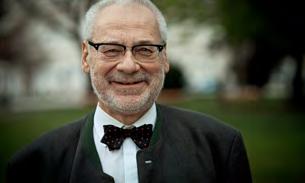
APRIL
We were also deeply saddened to learn of the death on 2 April of Jiri Sevcik, a long-time member of the art advisory committee of the Kontakt Collection. The art historian and influential thinker was 78 years old. He had been a member of the collection’s advisory committee since its inception in 2004, helped develop the programme of Kontakt and made it possible for key works of Eastern European and Austrian neo-avant-garde as well as works of contemporary art to become part of the collection. As an active protagonist of the Czech(oslovak) art scene since the 1960s, he constantly reframed the relationship be-
tween art and politics. In 2017, he called for a “revision of our perceptions of the historical turnaround of 1989/90 and a root-andbranch rethink of its significance and scope” in order to find new ways in which to transfer “utopian hopes into culture and preserve this moment in our cultural memory” even during times of crisis.

Europe’s Futures cooperates with Dahrendorf Programme at Oxford University Europe’s Futures organised a conference titled “How Europe Thinks About Itself in a Changing World” at Vienna’s IWM from 5-6 April. “Europe in a Changing World” is a research project of the Dahrendorf Programme at the European Studies Centre, Oxford University, with which Europe’s Futures cooperates. The first of a planned series of conferences kicked off in Vienna with two public panels: “Ukraine and the Future of Europe” and “How Does – and How Should – the EU Tell Europe’s Story of the World”. As part of the second panel, Julia De Clerck-Sachsse presented the report “Look Who‘s Talking: Telling Europe’s Story in the EU Capital”, jointly published by the Dahrendorf Programme and Europe’s Futures.
Erhard Busek. Photo: Markus Schwarze Jiri Sevcik passed away Jiří Ševčík. Photo: ČTK/Houdek MartinaThe 59th Venice International Art Biennale took place from 23 April to 27 November 2022, a year later than planned Several artists and partner organisations from ERSTE Foundation’s network participated in the Biennale Internationale d‘Arte 2022 in Venice. Jakob Lena Knebl and Ashley Hans Scheirl were the first queer artists to exhibit in the Austrian Pavilion. The artists, who are represented in the Kontakt Collection, aimed to “seduce” visitors with their installation.
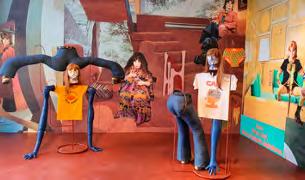
Once again, ERIAC, the Berlin-based European Roma Institute for Arts and Culture, organised a collateral event to accompany the Biennale’s main programme. Curated by Ilina Schileru at the Istituto Veneto di Scienze, Lettere ed Arti on Campo S. Stefano, the show brings together two exhibitions: Roma artist Eugen Raportoru presented The Abduction from the Seraglio, and a documentary was dedicated to Roma Women: Performative Strategies of Resistance. It was only for the fourth time in the long history of the Biennale that Roma art was represented. ERIAC commissioned the collateral Roma event for the second time, again with the support of ERSTE Foundation.
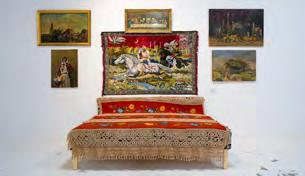
ERIAC was also proud to announce that in 2022, two Roma artists presented their work at the art biennial for the first time: along with Romanian artist Eugen Raportoru at Campo S. Stefano, the official programme of the Polish Pavilion featured Malgorzata Mirga-Tas
The Polish-Romanian artist represented both Poland in its Pavilion and the entire transnational Roma community. Her exhibition Reenchanting the World attracted over 230,000 visitors. ERIAC acted as project partner for the exhibition in the Polish Pavilion. ERIAC also doubled the number of visitors compared to 2019 in the collateral exhibition located outside the Giardini: over 34,850 interested visitors saw The Abduction from the Seraglio. 41 Roma art and cultural producers were involved in the event.

ERSTE Foundation also supported Romania’s contribution to the Biennale di Venezia, You Are Another Me – A Cathedral of the Body. Curated by Cosmin Costinaș and Viktor Neumann and implemented with an international team, the project by artist and filmmaker Adina Pintilie marks the latest stage of her multimedia research into the politics and poetics of intimacy and the body, which was initiated with her feature film Touch Me Not, winner of the Golden Bear at the 2018 Berlin International Film Festival.
Jakob Lena Knebl and Ashley Hans Scheirl in the Austrian Pavilion. Photo: APA/Sonja Harter Eugen Raportoru, The Abduction from the Seraglio (2021), installation view, National Museum of Romanian Farmers. Photo: Alex Busuioceanu Adina Pintilie, You Are Another Me - A Cathedral of the Body (2022), multi-channel installation, dimensions variable. With kind permission of the artist. Photo: Clelia CadamuroTimothy Snyder I: Tryzub Friend of Ukraine Award
IWM permanent fellow and “Speaker to Europe 2019”, Timothy Snyder, was awarded the Tryzub Friend of Ukraine Award on 12 May. Chrystia Freeland, deputy prime minister of Canada, presented him with the award in recognition of his contribution to and support for Ukraine and democracy. The Tryzub Awards were created by the Myhal Family Foundation to recognise the accomplishments of the Ukrainian community in Canada who has worked in support of Ukraine, Ukrainian concerns, the Ukrainian-Canadian community and Canada as a whole. Congratulations!
Timothy Snyder II: Speeches that have made Europe
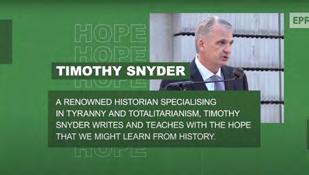
Etienne Bassot, director-general of the European Parliamentary Research Service, inquired about the Speech to Europe given by Timothy Snyder at Vienna’s Judenplatz as part of the Wiener Festwochen Festival and ERSTE Foundation’s 2019 Tipping Point Talks. The EU Parliament collects „speeches that have made Europe“, powerful, moving and visionary speeches that have helped shaped Europe. “Whether famous or less well-known, from the past or the present, they have taken us from ideas to projects, from projects to policies and finally to the changes in the lives of citizens that make up our European Union. These speeches are part of our common heritage and continue to inspire us today.”
Timothy Snyder’s 2019 Speech to Europe is also to be included in this collection. It is now part of a YouTube playlist alongside speeches by Francois Mitterrand, Vaclav Havel, Greta
Thunberg and Volodymyr Zelenskyy. It is also available at the European Parliament Info Hub in Brussels.
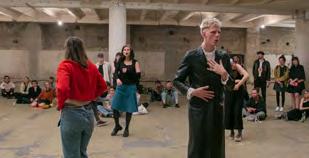
The tranzit network in 2002 began to set up independent art spaces step by step: Bratislava and Prague were the first in line in August and September 2002. Today there are five tranzit spaces, in Austria, Romania, Slovakia, the Czech Republic and Hungary. The anniversary was also celebrated step by step and included plenty of emotion: We Are All Emotional – the performance art festival was held from 6-7 May at Prague’s Divadlo X10 theatre. Jointly organised by all five tranzits, the event rang in the network’s 20th anniversary.
Three ERSTE projects among top three!
FASresearch conducted a Network Study on Main Actors and Topics of a Stakeholder Platform for Financial Market Stability on behalf of Österreichische Nationalbank. We were very pleased to hear that ERSTE Foundation ranked first in the relevant civil society organisations section. What is more, the second and third places also went to projects in which ERSTE Foundation is involved. The top three: 1. ERSTE Foundation, 2. Erste Financial Life Park (FLIP), 3. Foundation for Economic Literacy. #SomethingForTheImpactReport
documenta fifteen opens: OFF Biennale Budapest among the curators documenta fifteen ran from 18 June to 25 September – and received a great deal of criticism despite featuring works by over 6,000 artists from all over the world. The Jakarta-based artists’ collective ruangrupa curated documenta fifteen, complying with principles such as collectivity, shared resource building and equitable distribution. The OFF Biennale Budapest was among the invited co-curators. It presented two exhibition projects and a publication. A long-term collaborative project with the European Roma Institute for Arts and Culture (ERIAC) showcased artworks at the Fridericianum that explored the question of the (im)possibility of a RomaMoMA (Roma Museum of Contemporary Art). In close proximity to the Fulda River, a completely different space in and around the boathouse Ahoi oscillated between the concepts of playground, junkyard and construction site – all of which are places of creativity, transgression, refuse and regeneration. documenta fifteen attracted 738,000 visitors.
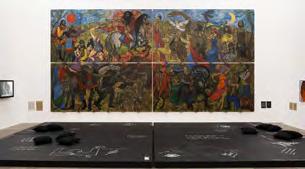
Max Beckmann Prize
Austrian media artist VALIE EXPORT was awarded the City of Frankfurt’s Max Beckmann Prize on 19 June. Works by the artist have been part of the Kontakt Collection for years. At St. Paul’s Church, Frankfurt’s head of the Department of Culture, Ina Hartwig (SPD), praised the prize winner as a pioneer of an “artistic feminism” that had
radically overturned the prevailing perception of the female body in a patriarchal society. Endowed with 50,000 euros, the prize has been awarded every three years since 1978. Congratulations!

Dimitar Bechev publishes book on Turkey Europe’s Futures fellow 2021/2022, Dimitar Bechev, published his new book on 28 June: Turkey Under Erdoğan. How a Country Turned from Democracy and the West, a pioneering work on the politics of today’s Turkey. “Bechev analyses the two decades that witnessed the evolution of President Erdoğan from a seemingly EU-friendly ‘Muslim democrat’ to a strongman. He masterfully portrays how the shifts in AKP’s foreign policy were intertwined with rising authoritarian practices in Turkey,” said Ayşe Kadıoğlu, professor at Sabancı University in Istanbul.
Olivia Lazard’s TED talk on energy transition goes viral
Olivia Lazard, Europe’s Futures fellow 2021/2022, gave a TED talk in New York City on 30 June. “The Blind Spots of the Green Energy Transition” has been viewed more than two million times on various platforms.
Tamara Opačić receives Vesna Kesić Award for critical journalism
Tamara Opačić, a recipient of the 2017 Balkan Fellowship for Journalistic Excellence and journalist for the Croatian magazine Novosti, won the city of Zagreb’s Vesna Kesić Award for critical journalism. Opačić, who is also editor-in-chief of the social magazine Nada,
focuses on migration and minorities. In her reports, she gives a voice to those who are usually not heard. Congratulations!

Opened on 2 July, the second edition of the Gmunden Photo exhibition focused on images of war. Curators Boris Ondreička and Yana Barinova from viennacontemporary selected 17 photographers, most of whom are from Ukraine, some from Austria.

The Romanian Cultural Institute in Vienna presented the group exhibition Virus Diary from 4 to 26 August. Initiated by Dan Perjovschi, it was co-curated by Gloria Luca, whose works were also on display in the show. Luca was an artist in residence at Q21 MuseumsQuartier in July and August.
Maria Bartuszová at Tate Modern in London
From 16 September 2022 to 25 June 2023, Tate Modern dedicated a retrospective to artist Maria Bartuszová, featuring all of the artist’s
work from the Kontakt Collection. Bartuszová worked in Košice, the second largest city in Slovakia, over three decades. She created around 500 sculptures, from small organic forms to commissions for public spaces as well as works in the landscape. The exhibition starts in the 1960s, when Bartuszová experimented using her own distinctive method of casting plaster by hand. Her signature material was white plaster, giving the sculptures a fragile quality.

viennacontemporary: Tjaša Pogačar curates special programme ZONE 1, Yana Barinova introduces Statement Ukraine
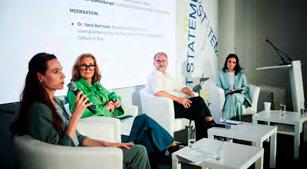
With a new concept for its 2022 edition (8 to 11 September), viennacontemporary also moved to a new location, the Kursalon Hübner. Tjaša Pogačar, 2020 artist in residence at Vienna’s MuseumsQuartier, curated the special programme ZONE 1, which exclusively featured artists under 40 who live, work or have been trained in Austria. Yana Barinova, former Kyiv city councillor for culture who joined ERSTE Foundation and viennacontemporary in 2022, organised the programme section Statement Ukraine, which
JULY Gmunden Photo showcases war photography Photo: Rainer Hosch Endless Egg / Nekonečné vajíčko, 1985, Kontakt Collection Judith Kohlenberger, Francesca Habsburg-Lothringen, Philippe Kern and Yana Barinova during the Statement Ukraine discussion. Photo: Valerie Maltsevawas divided into an exhibition presented at das weisse haus and a panel discussion. The exhibition showcased twenty Ukrainian and international artists who engage with the situation in Ukraine using various media, from photography and film to ceramics. It was put together by Kateryna Filyuk, curator of ARSENALE, the first Kyiv International Biennale of Contemporary Art.
As they did in 2021, on 11 October on behalf of the Foundation, the Supervisory Board members from the works councils of Erste Group and Erste Bank delegated to the ERSTE Foundation, Ilse Fetik (European Workers Social Affairs Organisation), Barbara Pichler (Chairwoman of the Works Council of Erste Group Bank AG) and Kurt Zangerle (Chairman of the Works Council of Erste Bank der oesterreichischen Sparkassen AG) handed over donations to five Austrian social organisations in the presence of ERSTE Foundation Senior Advisor Franz Karl Prüller. The five beneficiaries were: the association immo-humana / Verein für Mütter in Wohnungsnot, the Make A Wish Foundation, the Schulstart project of Volkshilfe, SEED, a project for equal opportunities for children and young people, and the Workshops for Integration and the Prevention of Radicalisation (WIR) from the International Organisation for Migration.
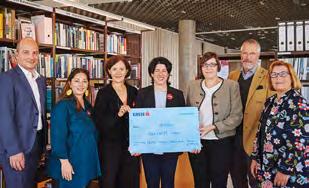
From 8 October 2022 to 16 April 2023, the mumok in Vienna presented an exhibition by Emília Rigová: Nane Oda Lavutaris / Who Will Play for Me? Emília Rigová explores the history and present-day experiences of the Roma. In an installation with pianos, she refers to the musical heritage of the Roma and the tensions between self-image and external perception that this music embodies. The opening featured a performance with a stonemason, who carved the lyrics of the Wallachian folk song Či čorav či drábara (“I do not steal, and I do not practice divination”) into stone. The stone and the video recording of the performance will remain part of the exhibition, which was curated by Rainer Fuchs (mumok).
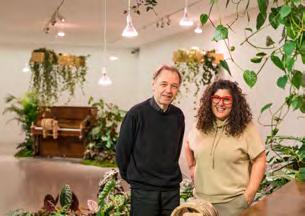
The conference “Tackling Disinformation in Central Europe and the Western Balkans” at Vienna’s Palais Niederösterreich on 25 October examined how digital propaganda influences the shaping of political processes. Politicians, experts and journalists dissected sources, goals and countermeasures to disinformation campaigns and gave an overview of the approach taken by EU member states and the scale of the problem in the Western Balkans. The event was co-organised by the Slovak Ministry of Foreign Affairs.
The picture shows the handover of donations to Volkshilfe Wien on 11 October 2022. From left to right: Kurt Zangerle, Claudia Bernatz (Operations Manager TAV Betriebe), Lilli Gneisz (Managing Director of Volkshilfe Wien Association), Tanja Wehsely (Managing Director of Volkshilfe Wien), Barbara Pichler, Franz Karl Prüller and Ilse Fetik. Photo: Marcel Billaudet Emília Rigová and Rainer Fuchs at the exhibition Nane Oda Lavutaris / Who Will Play for Me? mumok – Museum moderner Kunst Stiftung Ludwig Wien. Photo: Klaus PichlerNathalie Tocci’s book on Europe’s energy transition published
Nathalie Tocci, Europe’s Futures fellow 2022/2023, published her new book A Green and Global Europe in October. This widely acclaimed study examines Europe’s (future) energy transition and how it is linked to the bloc’s foreign policy. The EU, she argues, must not act in isolation or ignore the adverse effects of the transition on member states and their neighbours. It must also address the global conflicts that may arise with China, transatlantic relations and the Global South as a result of the EU’s green agenda.
Reportage by Klodiana Lala wins an EU Investigative Journalism Award
Klodiana Lala won first place in the EU Investigative Journalism Awards in the Western Balkans and Turkey for an Albanian report. Her Albanian Crime Story: Hostage to the Cocaine Supply Chain was produced as part of the Fellowship for Journalistic Excellence 2021. Established in 2015, the EU Investigative Journalism Awards continues to celebrate and promote the outstanding achievements of investigative journalists as well as the visibility of quality journalism in the Western Balkans and Turkey. Awards are given to journalistic articles from each of the six Western Balkan countries and Turkey, published in the previous year and related to freedom of expression, rule of law, transparency, abuse of power and fundamental rights, corruption and organised crime. The winners were announced on 10 November during the EU Western Balkans Media Conference in Tirana.
Congratulations!
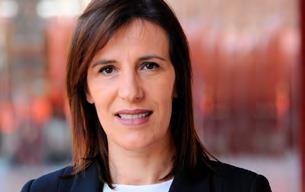
Funded by ERSTE Foundation and produced by the inclusive media project andererseits, the critical documentary The Donation Problem about the Austrian broadcasting corporation’s fundraising campaign “Licht ins Dunkel” prompted heated debate across Austria. andererseits is the first Austrian media organisation where people with and without disabilities work together equitably.
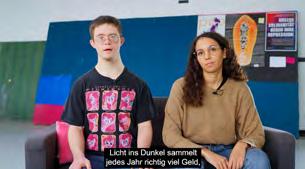
Sunny Honey wins three “Goldene Honigwaben”
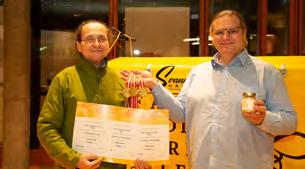
The “Sunny Honey – Summer Edition” and “Sunny Honey – Spring Edition” honey harvests of the SonnwendBienen honey farm in the neighbourhood garden of Vienna’s Sonnwendviertel won a “Goldene Honigwabe” 2022/2023 each in the blossom honey category at the Wieselburg fair. Another first prize and thus a Golden Honeycomb in the crème honey category went to the “Sunny Honey Creamy”. The “Goldene Honigwabe” is an award presented by the Austrian Beekeepers’ Association to recognise high-quality honey
Photo: Klodiana Lala (private archives) Filmstill of The Donation Problem by andererseits Sonnwend beekeepers Steve Unger and Harald Kickerand honey products. With entries from across Austria and neighbouring countries, the competition shows the great variety of regional products. As ERSTE Foundation cooperates with the inclusive beekeeping project in the foundation’s neighbourhood, it receives and enjoys part of the “Sunny Honey” harvest each year. Congratulations!
Olivia Lazard’s analyses make headline news in Serbia’s Novi magazine
Serbia’s leading political weekly, Novi magazine, interviewed Olivia Lazard, Europe’s Futures fellow 2021/2022, on the burning issue of lithium mining in Serbia. The interview was the lead story in the 3 November issue.

Nicole Koenig, Europe’s Futures fellow 2019/ 2020, has been Head of Policy of the Munich Security Conference since November. She is an expert on EU foreign and security policy and Franco-German security cooperation.
Zsuzsanna Szelényi publishes book on Orbán’s Hungary

Zsuzsanna Szelényi, Europe’s Futures fellow 2018/2019, published her new book Tainted Democracy. Viktor Orbán and the Subversion of Hungary, a first-hand account of Hungary’s
autocratic shift under Viktor Orbán. She answers some key questions: why has Orbán been so successful, winning widespread support within Hungary and wielding considerable influence in European politics? And how can Hungary’s opposition turn the country around?
Nicole Traxler receives 2022 prize for sustainable shapers
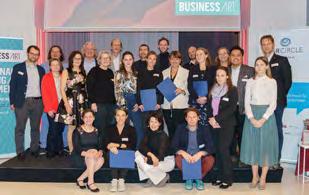
Nicole Traxler, managing director of Two Next GmbH and co-inventor of the app Alles Clara (see p. 66), was awarded the “Nachhaltige Gestalter:innen” (“sustainable shapers”) 2022 award by Businessart magazine on 15 November. Winners are selected by CSR and sustainability experts in a multi-stage process. The award recognises people who have set milestones with respect to implementing the Sustainable Development Goals, bringing their companies a significant step forward, and people who shape the business environment to become more sustainable. They not only represent the transformation of our economy; they also take the necessary steps to achieve it. Congratulations!
Nicole Koenig, Head of Policy at Munich Security Conference Nicole Koenig. Photo: Zsolt Marton, IWM Zsuzsanna Szelényi. Photo: Christian Fischer Sustainable shapers 2022. Businessart CSR Circle. Photo: Martina Draper“A Resilient Europe in Uncharted Waters” conference in Rome
Italy’s leading institute for international relations welcomed Europe’s Futures. On 13 December, the Istituto Affari Internazionali (IA) hosted a meeting of experts who sought to address the question of whether Europe is responding vigorously enough to threats to the democratic liberal order, both internally and externally. The seminar’s premise: the future of Europe and the European Union is at stake. The Russian invasion of Ukraine is a watershed moment. Does Europe want to be a bystander in a radically shifting global landscape? Or can the EU live up to its claim to be a geopolitical actor on an equal footing with other powers?
Golden Heart from Volodymyr Zelenskyy
In 2022 the Media Development Investment Fund, which is also supported by ERSTE Foundation, provided support to Kherson’s newspaper Grivna from the emergency fund earmarked for Ukrainian media. President Volodymyr Zelenskyy presented the Golden Heart Award to Irina Salikhowa, head of Grivna’s online projects, on 30 December. Irina organised the centre for community support for the residents of Kherson who lived under occupation. She raised 300,000 dollars and coordinated the work of 40 volunteers who provided people with food and medicine.
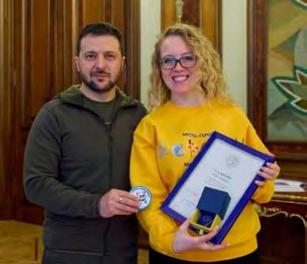 Here is the conference
Ukrainian President Volodymyr Zelenskyy presented the “Golden Heart” to Iryna Salikhova.
Here is the conference
Ukrainian President Volodymyr Zelenskyy presented the “Golden Heart” to Iryna Salikhova.
Russia’s invasion of Ukraine destroyed the lives and homes of millions of people, shattered the postCold War European security order and completely reshaped the EURussia relations that had existed over many years. The war continues to endanger the world’s economic recovery from the Covid19 pandemic through inflation, food security and energy security disruptions. In 2022, the Talk Europe! video series addressed some of the major social, political and cultural challenges posed by the war. For the series, Jovana Trifunović asked thinkers and doers from our network to go in front of the camera and risk a glimpse into the future.
“Ukraine is but a pawn on a larger chess board set by the Russians, where the Moscow Kremlin is posing a strategic challenge to the European security system.”



Russia is testing the European security system and seeking to undermine it through the situation in Ukraine. Wojciech Przybylski, editor-in-chief of Visegrad Insight, believes that Europe can do a lot as an immediate response to the Russia-Ukraine conflict by staying invested in the neighborhood, Eastern partnerships and the Western Balkans.

The Kyiv based, independent journalist Olga Tokariuk believes that we Europeans should be putting all our resources together to think how to protect ourselves, how we can integrate Ukraine in this process and what we can learn from the Ukrainian experience.

“When Russia launched a full-scale invasion of Ukraine, every journalist in Ukraine was forced to become a war reporter against their will.”
Here is the video

“If we do not think of resilience as inter-resilience, meaning interdependent resilience between different regions and between different countries, and as a global phenomenon, we cannot stop climate change.”



In this episode, Carnegie Europe and Europe’s Futures fellow Olivia Lazard discussed topics such as green energy, taxonomy on sustainable finance, the need for global research cooperation and why climate resilience cannot be sovereign.
“The closer economic ties between East and West have in no way led to the worldwide promotion of democracy, freedom and the rule of law, as a look in the direction of Russia and China shows.”
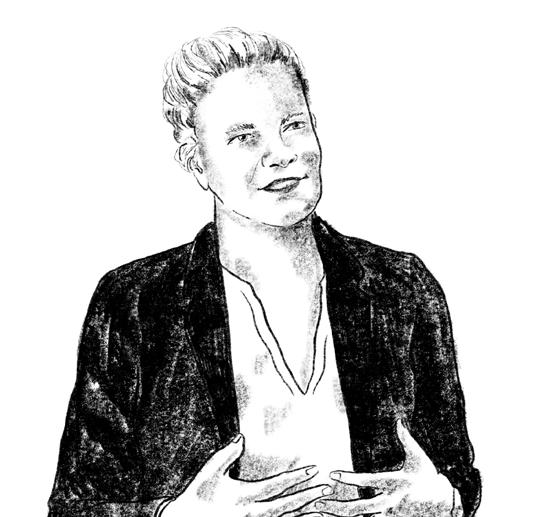

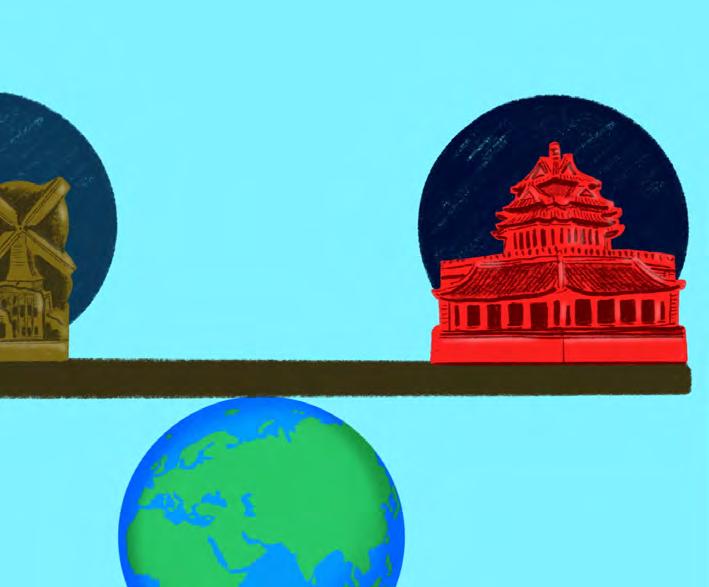
Change through trade is over. Europe must adapt more strongly to a new reality: we are confronted with authoritarian states that play by their own rules to which we have to adapt differently. The war in Ukraine made that clear. Janka Oertel of the European Council on Foreign Relations debunks some major myths about the relationship between Europe and China.
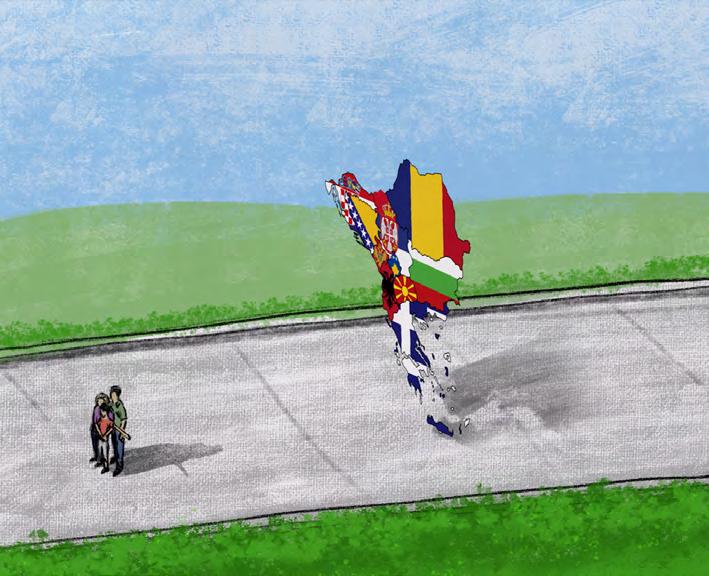
The Western Balkans is a region with pockets of uncertainty. There are many problems such as the status of Kosovo or the future of Bosnia and Herzegovina. Those grievances can be abused. The most efficient tool, according to the former Minister of Affairs of North Macedonia Nikola Dimitrov, is obviously the enlargement policy, which no longer works. Now that the geopolitical framework of our life on the continent is in danger, we have to immediately reward progress and we have to name and shame when there is backsliding.

“The EU enlargement process has been turned upside down. It is now a force for maintaining the status quo and no longer a force for progress.”
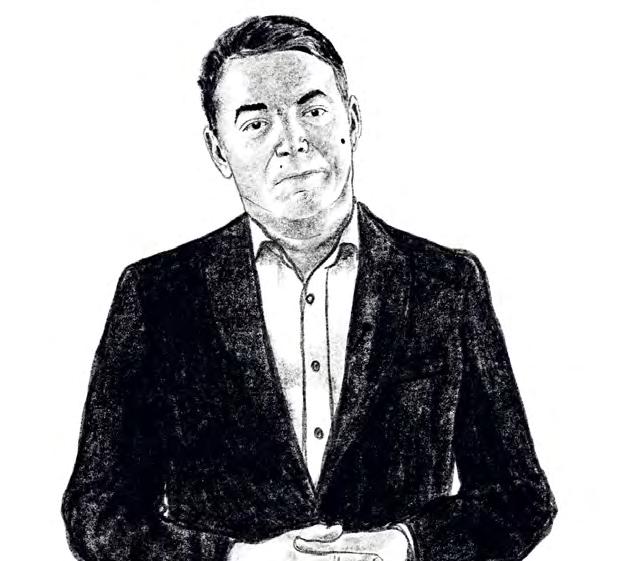
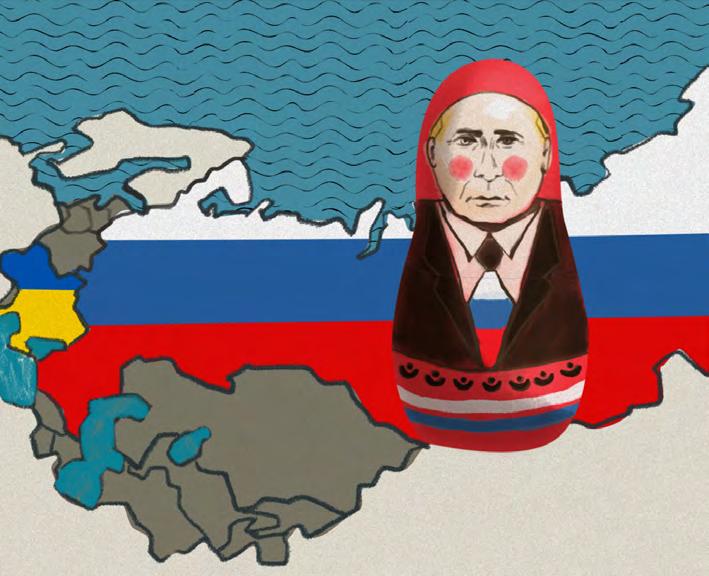
Nathalie Tocci, director of the Istituto Affari Internazionali and Europe’s Futures fellow, explores the question of whether Europe can manage to maintain the necessary unity to do the things that need to be done, even if political debates and public opinions are starting to reflect a certain degree of fatigue with the war. The critical issues include, among other things, moving forward on the enlargement process, energy independence and the common security and defence policy.

“The main challenge for Europe posed by the war in Ukraine, especially considering that this war is unlikely to end anytime soon, is sustaining unity within the European Union.”

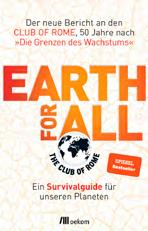
CLUB OF ROME (ED.)
Earth for All. A Survival Guide for Humanity
A report to the Club of Rome, fifty years after The Limits of Growth by Sandrine DixsonDeclèv, Owen Gaffney, Jayati Ghosh, Jorgen Randers, Johan Rockström, Per Espen Stoknes, Gabriola Island: New Society Publishers 2022, 195 pages
In 1972, the first report to the Club of Rome shook the world’s belief in progress. Today, The Limits to Growth is considered the most influential publication on the imminent overload of our planet. Fifty years later, a group of renowned researchers including Jørgen Randers, Sandrine Dixson-Declève and Johan Rockström once again take a look into the future and present a roadmap of actions to restore our crisis-ridden world to “health”. This requires a radical shift in thinking on five key areas of political action aimed at making big changes with relatively small adjustments:
1. ending poverty; 2. eradicating glaring inequality;
3. empowering women; 4. creating a healthy food system for people and ecosystems;
5. shifting to the use of clean energy.

KARIN FISCHER, MARGARETE GRANDER (EDS.)
Globale Ungleichheit. Über Zusammenhänge von Kolonialismus, Arbeitsverhältnissen und Naturverbrauch
Vienna: Mandelbaum 2022, 400 pages
Tracing global correlations, causalities and mechanisms, this book examines the unequal distribution of income, wealth and opportunity across societies around the world. Individual articles deal with the historical and current effects of colonialism and racism, of global political economy and financial market capitalism, international division of labour and ecological inequality. Case studies illustrate the complex subject matter. Inequality is most evident in society, in communities and in the places where we live. In many ways, however, we are embedded in global processes that generate or reinforce local inequality. While financial and real estate markets, working conditions and resource consumption are influenced by local and national conditions, they are marked by global interdependence and causal connections.
erstestiftung.org/en/library
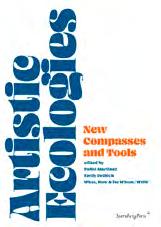
PABLO MARTÍNEZ, EMILY
WHAT, HOW & FOR WHOM/WHW (EDS.)
Artistic Ecologies.
New Compasses and Tools
London: Sternberg 2022, 239 pages
An inquiry into current ways of knowing, their ramifications and institutional and noninstitutional artistic practices that provide channels for education from below. The book aims to both analyse and speculate about potentials of artistic ecologies, collective learning and engaged pedagogies to engender new institutionalities.

Art and Climate Change
London, New York: Thames & Hudson 2022, 294 pages
MAJA AND REUBEN FOWKES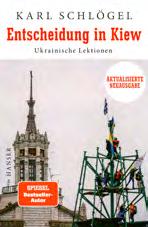
Entscheidung in Kiew. Ukrainische Lektionen updated and expanded new edition, Munich: Hanser 2022, 384 pages
What defines Ukraine? It was only the Russian annexation of Crimea that prompted an awareness of the independence of a country that the aggressors now want to wipe off the map. Karl Schlögel has added a major essay to his Ukrainian Lessons of 2015, addressing a war that is directed against the very idea of freedom. Lviv, Odesa, Chernivtsi, Kyiv, Kharkiv, Mariupol: all those names we have come to associate with terrible news actually represent doorways into an open, diverse world that the West has ignored for far too long. Anyone who really wants to know what is at stake in Europe must look at Ukraine.

Osteuropa zwischen Mauerfall und Ukrainekrieg. Besichtigung einer Epoche Berlin: Suhrkamp 2022 (= es 2777), 254 pages
Does anyone remember the “common European home”, Gorbachev’s dream of a Europe stretching from Lisbon to Vladivostok?
In contrast, Vladimir Putin fantasises about this home being a Russian one. This by no means small difference alone patently points to the rift that today, thirty years after the apparent end of the East-West conflict, separates Russia from its western neighbours. Russia has invaded Ukraine – there is war in Ukraine, state terror in Belarus. Within the EU, fault lines are becoming visible along the old border. Constitutional changes in Poland and Hungary are threatening the rule of law and democracy achieved only recently. There is much to suggest that we are finding ourselves on an epochal threshold or at a “turning point” (Olaf Scholz). How did it come to this? The anthology looks back at the developments of the last 30 years.
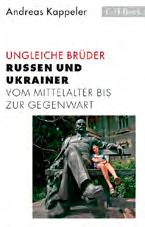
Ungleiche Brüder. Russen und Ukrainer vom Mittelalter bis zur Gegenwart 2nd edition, Munich: C.H.Beck 2022, 267 pages
Russians and Ukrainians have long regarded each other as brother nations, with Russians considering themselves as the big brother. The Russian annexation of Crimea and the subsequent occupation of the industrial region in south-eastern Ukraine by Russiancontrolled militias in spring 2014 triggered a military conflict between these states, which not only continues to this day but has resulted in Russia’s brutal aggression against the whole of Ukraine. Since the 18th century, the relationship between these closely connected peoples has become increasingly asymmetric, culminating in Russia’s refusal in the 19th century to recognise the “Little Russians”, as the Ukrainians were officially called at the time, as an independent nation with a history separate from that of Russia. In Russia, this view has persisted to this day and is also widespread in the West.

Grenzland Ukraine. Unterdrückte Potenziale, drastische Gewalterfahrung with an essay by Wolfgang Petritsch, Vienna: Mandelbaum 2022, 204 pages
Over the course of the past century, the population of Ukraine has experienced more death and suffering than almost any other region of the world: as the central theatre of the devastation caused by both world wars, as a result of the planned famine of 1932/33, the extermination of the Jews, political persecutions and the long-term consequences of Chernobyl. To raise awareness of this history and serve as background knowledge about the acute war situation, Christian Reder’s essays contribute to a better understanding, focusing on little known facts and the potential temporarily lost to the country through flight and emigration.

Himmel über Charkiw.
Nachrichten vom Überleben im Krieg
translated from the Ukrainian to German by Juri Durkot and Sabine Stöhr, Berlin: Suhrkamp 2022, 239 pages
He has no time to keep a diary. Serhij Zhadan roams shelled Kharkiv day and night – evacuating children and old people from the suburbs, distributing food, coordinating deliveries to the military and giving concerts in the metro stations where the people of Kharkiv flee to during Russian missile attacks. Social media posts document his routes through the city offering words of encouragement to the people in Kharkiv – tirelessly, day after day. The city is emptying out. Friends are being killed. Death is omnipresent, hatred is growing. When images of Bucha go around the world, Zhadan’s voice fails him too. “There are no words. None. Hold out, my friends. Now there is only resistance, fighting and mutual support.”
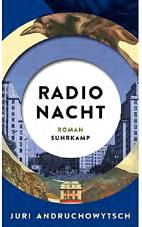
Radio Nacht
novel, translated from the Ukrainian to German by Sabine Stöhr, Berlin: Suhrkamp 2022, 472 pages
He supported the revolution in his home country by being a “barricade pianist”. Forced into exile, he earns his living playing salon music – Josip Rotsky, a man of unclear identity whose name rhymes with Trotsky, Brodsky and Joseph Roth. In a Swiss hotel he is forced to perform for his country’s dictator – and becomes an assassin. After his release from prison, Rotsky retreats to his native Carpathian Mountains. Secret service agents and other sinister characters are out to kill him. He flees to Greece with his lover Animé and his raven Edgar. Rotsky ends up on a prison island on the prime meridian, where he hosts Radio Night, broadcasting music, poetry and stories around the clock into a darkening world.
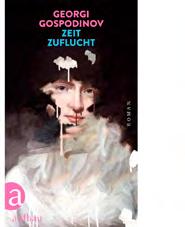
Zeitzuflucht
novel, translated from the Bulgarian to German by Alexander Sitzmann, Berlin: Aufbau Verlag 2022, 342 pages
In Georgi Gospodinov’s novel, the narrator meets Gaustine, a vagrant in time. In Zurich, Gaustine opens a “clinic for the past”, an institution that offers inspirational treatment to Alzheimer’s sufferers: each floor recreates a particular decade, allowing patients to find comfort in their fading memories. But then, an increasing number of healthy people seek out the clinic, hoping to escape from the horrors of their daily lives. Eventually, entire countries pursue Gaustine’s idea of past spaces, wanting to return to previous times...
A brilliant, highly political novel, laced with dark wit, that opens up a new way of bringing together concepts of the past, present and future. Outstanding!
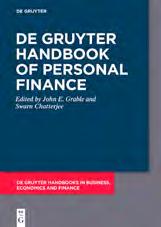 JOHN E. GRABLE, SWARN CHATTERJEE (EDS.)
JOHN E. GRABLE, SWARN CHATTERJEE (EDS.)
De Gruyter Handbook of Personal Finance
Berlin: De Gruyter 2022, XXIII, 629 pages
The De Gruyter Handbook of Personal Finance provides a robust review of the core topics comprising personal finance, including the primary models, approaches, and methodologies being used to study particular topics that comprise the field of personal finance today. The contributors include many of the world’s leading personal finance researchers, financial service professionals, thought leaders and leading contemporary figures conducting research in this area whose work has shaped – and continues to affect – the way that personal finance is conceptualised and practiced. This handbook will be a core reference work for researchers, financial service practitioners, educators and policymakers and an excellent supplementary source of readings for those teaching undergraduate and graduate-level courses in personal finance, financial planning, consumer studies and household finance.
The 2021 financial statements were prepared in accordance with section 18 of the Austrian Private Foundation Act (PSG) by analogy with the relevant provisions of the Austrian Commercial Code (UGB) and in consideration of the relevant provisions of the Austrian Banking Act (BWG) as amended.
Information and explanations that resulted from changes in applicable accounting provisions can be found in section 3 (Changes to the accounting and valuation principles).
In addition, ongoing changes in the general environment due to the Ukraine-Russia conflict bear mentioning. There were no economic effects for the foundation against the backdrop of the UkraineRussia conflict and the resulting geopolitical tensions. The going-concern assumption is not affected and remains appropriate.
When adding up rounded amounts and calculating rates of change, minor differences may occur compared to the calculation from the non-rounded calculation bases.
Due to the conversion of the legal form of “DIE ERSTE österreichische Spar-Casse
Anteilsverwaltungssparkasse” to “DIE ERSTE österreichische Spar-Casse Privatstiftung” (hereinafter: ERSTE Foundation) and the associated retention of book value, the financial statements of ERSTE Foundation retain the structure stipulated under the Austrian Banking Act.
ERSTE Foundation was created with the entry in the commercial register pursuant to section 7, paragraph 1 of the PSG. The Anteilsverwaltungssparkasse (share management savings bank) continues to exist as a private foundation pursuant to section 27b, paragraph 1 of the Savings Bank Act (SpG). The private foundation was entered in the commercial register at the Vienna commercial court on 19 December 2003 under company number 072984f and company name “DIE ERSTE österreichische Spar-Casse Privatstiftung”.
The financial statements were prepared in accordance with generally accepted accounting principles and the fair presentation concept, which stipulates that preparers provide the most accurate picture possible of the private foundation’s net assets, financial position and results.
The valuation of assets and liabilities was based on the principle of individual valuation and the private foundation was assumed to be a going concern.
The principle of prudence was also applied.
Foreign currency debtors and creditors, values and foreign currency cheques were valued using the ECB’s reference exchange rate.
Currency conversion income was recognised in the income statement.
Participating interests and shares in affiliated companies were recognised at initial value unless a write-down was necessary due to a probable permanent impairment (using the lower of cost or market rule).
Loans and advances to credit institutions and other accounts receivable were valued in accordance with the regulations in section 207 of the UGB. Discernible risks were accounted for through a corresponding value adjustment.
Investments (bonds and other fixed-rate securities, shares and other variable-yield investments) are valued according to their allocation to financial assets and depending on whether they are accounts receivable and financial instruments similar to accounts receivable (‘FFIs’) for the purpose of AFRAC Opinion 14:
• Investments that are FFIs are valued at amortised cost less impairments resulting from default risks. FFIs are debt instruments that are intended to be held to maturity and whose value is not potentially affected by risk and return structures that differ significantly from the default risks of the instrument.
• Debt instruments held as fixed assets that are not FFIs and equity instruments held as fixed assets are valued at amortised cost and written down to the lower fair value if impairment is expected to be permanent (‘moderate lower of cost or market rule’).
Investments are grouped to current or financial assets or to FFIs according to the organisational guidelines passed by the managing board.
Regarding fixed-rate securities with characteristics of a financial asset, if the initial value is higher than the repayment amount, the difference is written down pro-rata temporis pursuant to section 56, paragraph 2 of the BWG. There is no instance of a pro-rata temporis write-up of differences pursuant to section 56, paragraph 3 of the BWG.
If, during a subsequent fiscal year, the reasons for write-down to the lower fair value no longer apply, the write-down loss is reversed.
Pursuant to section 189a(4) UGB, the fair value is the stock exchange price or market price; in the case of financial instruments whose market price cannot be readily determined as a whole, the value derived from the market prices of the individual components of the financial instrument or the market price for a similar financial instrument; if a reliable market cannot be readily determined for financial instruments, the value determined with the help of recognised valuation models and methods, provided that these models and methods ensure a reasonable approximation of the market price.
Intangible assets and tangible assets were valued at their cost of acquisition or production, less scheduled linear amortisation or depreciation. Amortisation and depreciation periods have not changed during the reporting year. They are
• four years (25%) for intangible assets,
• between four and 15 years (between 25% and 6.67%) for other tangible assets.
Low-value assets were depreciated in full in the year of acquisition and recorded as disposals.
Liabilities were recognised at the amount to settle the obligation.
Provisions were measured at the best estimate of the amount to settle the obligation. Other provisions with a remaining term of more than one year are discounted at a market interest rate, which is the rate at which a company with a high credit rating can procure debt.
No changes were made to the accounting and valuation principles versus the previous year.
The balance sheet values and shows individual balance sheet items according to section 2. The figures in the following notes, however, show book values without pro rata interest.
Breakdown by residual terms of loans not repayable on demand, deposits not payable on demand, and obligations to credit institutions and non-banks not repayable on demand:
Relations to affiliated companies were managed within the standard industry framework.
Participating interests and shares in affiliated companies comprise shares in the following key companies and show the following shareholders’ equity and results according to the most recent financial statements available to us:
The book value of participating interests in the amount of EUR 341,104,766.07 (previous year: TEUR 314,333) is composed of EUR 2,951,769.70 (previous year: TEUR 2,978) from the 40% stake in Erste Social Finance Holding GmbH, the value of which was reduced by a write-down of EUR 26,467.86 carried out on 31 December 2022 – and EUR 338,152,996.37 (previous year: TEUR 311,354) from the stake in Erste Group Bank AG, the value of which increased on the one hand through the purchase of 1,275,000 shares with a book value of EUR 38,720,528.68 and was reduced on the other hand by a further contribution of 1,800,000 shares with a book value of EUR 11,922,000.00. This book value represents total holdings of 24,836,956 Erste Group Bank ordinary shares, which are managed –depending on their acquisition period – in three different custody accounts at different acquisition costs and which represent 5.78% of the share capital as at 31 December 2022 (previous year: 5.90%). The market value of this participating interest was EUR 742,624,984.40 at the end of the year as calculated from the closing price of EUR 29.90 on the Vienna Stock Exchange.
As ERSTE Foundation is not a superordinate credit institution (credit institution or financial holding company) in relation to Erste Group Bank AG, which would constitute a credit institution group for the purpose of section 30, paragraph 1 of the BWG, there is no need to include ERSTE Foundation in the companies to be consolidated according to the BWG. No consolidated accounts need to be prepared under commercial law either according to section 244 of the UGB.
The 42% participating interest in Fund of Excellence Förderungs GmbH was written down to EUR 0.00 in 2020 (previous year: TEUR 0) because it is restricting its business to existing contracts and has stopped taking on new business.
The ‘shares in affiliated companies’ item on the balance sheet shows the participating interest in Sparkassen Beteiligungs GmbH & Co KG with a book value of EUR 339,482,028.78 (previous year: TEUR 327,560) for a total of 24.8 million EGB shares (previous year: 23 million shares). ERSTE Foundation indirectly holds 5.77% of Erste Group Bank AG’s share capital via Sparkassen Beteiligungs GmbH & Co KG (previous year: 5.35%). ERSTE Foundation therefore directly controls 11.55% as at 31 December 2022 (previous year: 11.25%). In accordance with the Preferred Partnership Agreement, ERSTE Foundation forms a syndicate of core shareholders with Sparkassen Beteiligungs GmbH & Co KG, the savings banks and their foundations, Erste Mitarbeiterbeteiligung Privatstiftung and Wiener Städtische Wechselseitige Versicherungsverein – Vermögensverwaltung – Vienna Insurance Group. Along with its syndicate partners, ERSTE Foundation directly and indirectly controlled 24.16% (previous year: 22.25%) of Erste Group Bank AG’s share capital.
The average valuation rate per Erste Group share for the shares that ERSTE Foundation holds directly and indirectly in the form of its stake in Sparkassen Beteiligungs GmbH & Co KG was EUR 13.69 as at 31 December 2022.
This item also includes the 100% stakes in Sparkassen Beteiligungs GmbH and Two Next GmbH, each of which has a book value of EUR 35,000.00 (previous year: TEUR 35). Two Next GmbH received a shareholder contribution of EUR 1,584,000.00 in 2022, however, this was completely written off on 31 December 2022.
There were no transactions with related companies and persons that were significant or unusual for the market.
Asset items 5 to 8 contain securities admitted to trading on the stock exchange, participating interests and shares in affiliated companies, which are categorised as follows:
The initial values of bonds and other fixed-income securities were partially higher than the sum payable at maturity, with the remaining difference according to § 56 para. 2 BWG being EUR 0.00 (previous year: TEUR 5).
The fair value is the amount that can be obtained from the sale of a financial instrument on an active market, or the amount that would be paid to purchase the same. Market prices are used for the valuation if they were available. In the absence of market prices, valuation models, particularly the present value method, were used.
4.9 Bonds and other fixed-income securities maturing in the following year
Of bonds and other fixed-income securities, EUR 0.00 will mature in the following year (previous year: TEUR 145).
Of the marketable bonds issued, EUR 0.00 (previous year: TEUR 200,000) will mature.
4.10 Subordinated assets
The following assets were subordinate in affiliated companies and companies linked by virtue of an equity interest:
4.11 Fixed assets
The statement of changes in fixed and long-term assets can be found on the following pages.
4.12 Interim corporation tax pursuant to section 22, paragraph 2 of the Corporation Tax Act (KStG)
The Republic of Austria owes EUR 7,654,028.47 (previous year: TEUR 7,929) from the settlement of interim corporation tax.
As of preparing the financial statements, no prediction can be made as to whether or when the non-interest-bearing amount owed by the Republic of Austria from the prepayment of interim corporation tax can be offset against capital gains tax on grants. For this reason, the value of the amount has been adjusted to 50%.
The nominal amount receivable for unsettled interim corporation tax payments is EUR 275,160.13 (previous year: TEUR 63).
There were no significant obligations to affiliated companies not shown in the balance sheet.
For the following fiscal year, there are obligations of EUR 307,266.88 (previous year: TEUR 298) regarding leased tangible assets not listed on the balance sheet. These obligations total EUR 1,536,334.40 for the next five years (previous year: TEUR 1,493).
Other liabilities included the following significant individual items:
Pursuant to section 13, paragraph 5(1) of the KStG, the conversion of legal form from the Anteilsverwaltungssparkasse to ERSTE Foundation is considered to have taken effect at the end of the conversion date, that is, as of 1 April 2003. The conversion date is the day on which the final balance sheet of the Anteilsverwaltungssparkasse was prepared according to section 27a, paragraph 6 of the SpG.
Pursuant to section 13, paragraph 5(2) of the KStG, the tax liability resulting from the conversion (for the differences between the taxable book values and the current values of the individual assets on the final balance sheet of the Anteilsverwaltungssparkasse) can be partially deferred until ERSTE Foundation assets are sold or otherwise disposed of, provided a corresponding application has been filed. This application was filed with the 2003 tax return.
The difference on the list results from the difference between the commercial value and the taxable value of Erste Bank der oesterreichischen Sparkassen AG (now Erste Group Bank AG) ordinary shares before the conversion and was calculated as follows:
The taxable value of Erste Bank der oesterreichischen Sparkassen AG shares was EUR 31.48 per share before the conversion (EUR 7.87 after the share split). The commercial value of the shares was calculated as the six-month average from October 2002 to March 2003, or EUR 61.10 (EUR 15.28 after the share split). The difference of EUR 29.62 (EUR 7.41 after the share split) was recorded as the difference for 19,831,809 shares (or EUR 587,418,182.58). Disposals in 2004, 2005, 2010, 2011, 2012, 2013, 2014 and 2015 reduced this to EUR 294,895,657.74. The difference for 1,500,000 shares was taxed in 2003.
ERSTE Foundation generates income primarily from capital assets and other income from the disposal of participating interests that, according to section 13, paragraph 3 of the KStG, are subject to interim tax of 12.5% up to and including 2010 and interim tax of 25% from 2011 (previous year: 25%). No interim tax is collected if ERSTE Foundation makes grants on which it pays capital gains tax. An evidence account needs to be kept for interim tax paid and interim tax credits; the amount in this account is EUR 7,654,028.47 as at 31 December 2022.
Deferred tax liabilities arising from 2018 of EUR 312,253.00 relate to operating expenses subsequently recognised during 2013-2015 that had been de-recognised as part of the 2008-2012 tax audit (completed in 2015). Any resulting back payments were recognised as a provision in 2018. The legal view of the tax audit was thus followed when calculating the tax expense, but its contents are not made public by ERSTE Foundation and are currently subject to legal appeal.
The deferred taxes are based on temporary differences regarding accruals of other operating income, which are taxable pursuant to section 29 of the EStG. The provision for deferred taxes had a book value as at 31 December 2022 of EUR 7.84 (previous year: TEUR 0).
Committed reserves were allocated to capital reserves as part of the change in legal form in 2003. This capital reserve balance results from assets originally endowed to the private foundation and is to be retained pursuant to section 27a (4), line 4 of the SpG. The balance may be reduced to cover disposal losses connected with the originally endowed assets or any income tax arising from conversion or disposal gains on those same assets.
There are no off-balance sheet items and no off-balance sheet items that need to be disclosed according to section 237 paragraph 1(2) UGB that are required to evaluate the company financial situation.
Interest received amounting to EUR 157,865.56 (previous year: EUR 116,000) results primarily from interest accrued on the evidence account for interim tax.
Interest expenses totalled EUR 3,597,609.21 (previous year: TEUR 6,246) and primarily relate to interest from borrowings with credit institutions and the issued bond.
Dividend income from shares held directly in Erste Group Bank AG totalled EUR 40,259,129.60 (EUR 1.60 per share) and dividend income from shares held indirectly through the participating interest in Sparkassen Beteiligungs GmbH & Co KG amounted to EUR 60,760,000.00 (EUR 2.60 per share).
The distribution of Sparkassen Beteiligungs GmbH & Co KG includes the supplementary dividend from December 2021 in the amount of EUR 23,000,000.00 (EUR 1.00 per share).
Audit expenses for the 2021 year-end financial statements stood at EUR 12,394.00 (previous year: TEUR 16). A provision of EUR 14,000.00 was recognised for the 2022 fiscal year (previous year: TEUR 17). No other services were provided.
Net income for the year of EUR 89,844,814.76 (previous year: TEUR 38,419) was fully allocated to year-end reserves.
As at the balance sheet date of 31 December 2022 the equity balance of ERSTE Foundation stood at EUR 547,531,272.00 (previous year: TEUR 466,671) as shown above, without hidden reserves or hidden charges. This change in foundation equity results, on the one hand, from the allocation of free reserves for 2022’s net income of EUR 89,844,814.76 and, on the other hand, from the appropriation of reserves in the amount of EUR 8,894,553.24 through grants to beneficiaries according to section 3 of the foundation’s articles of association.
The return on assets, which is to be presented as the quotient of the annual result after tax (net income for the year) divided by the balance sheet total as at the balance sheet date, is 12.7461% (previous year: 5.6736%).
No noteworthy events occurred after the balance sheet date.
In the reporting year 2022, dividend payments of EUR 101 million were received from Erste Group Bank AG shares.
ERSTE Foundation has managed to build free reserves of over EUR 323 million in recent years as a result of dividend distributions.
To ensure adequate liquidity, ERSTE Foundation has a credit line with a major Austrian bank under which up to EUR 35 million can be drawn on at any time.
The planned debt restructuring took place in January 2022. A new fixed-rate bond in the amount of EUR 100 million with a maturity in 2027 was issued and a short-term loan in the amount of EUR 50 million was taken out, which will be repaid in 2023 from the dividend payments of Erste Group. Consequently, the foundation can distribute planned and approved grants to beneficiaries, and there is sufficient liquidity for the following fiscal year to service all liabilities, conduct planned activities and continue reducing debt as planned.
Erste Group Bank AG has announced that it will propose to the annual general meeting to pay a dividend of EUR 1.90 per share again for fiscal year 2022.
The foundation had an average of 17.20 staff (previous year: 17.19). This equates to a total of 20 employees (previous year: 24).
No members of the managing board or supervisory board had any outstanding loans or advances.
Provisions of EUR 0.00 (previous year: TEUR 69) were made for voluntary severance payments for employees.
According to section 13 of the foundation’s articles of association, the members of the foundation’s managing board receive remuneration consistent with their tasks and with the situation of ERSTE Foundation, the amount of which is to be determined by the supervisory board, unless the member of the foundation’s managing board receives regular remuneration from Erste Group Bank AG or from one of the companies it controls.
Total remuneration for members of the managing board amounted to EUR 790,537.46 (previous year: TEUR 432). No remuneration was paid to former members of the managing board or their heirs. Remuneration of EUR 80,000.00 was paid to members of the supervisory board in 2021 (previous year: TEUR 149). There is a EUR 120,000.00 provision for 2021 and 2022 (previous year: TEUR 120).
The following persons were active as members of the managing board:
Boris Marte (Chair)
Wolfgang Schopf (Deputy Chair)
Martin Wohlmuth
Eva Höltl, MD
The following persons were active as members of the supervisory board:
Andreas Treichl (Chair)
Dr Manfred Wimmer (Deputy Chair)
Bettina Breitender
Maximilian Hardegg
Barbara Pichler
Philipp Thurn und Taxis
Dr Johanna Rachinger
Dr Markus Trauttmansdorff
Kurt Zangerle
The following persons were active as members of the supervisory board at other times:
Franz Portisch, until 9 May 2022
Mario Catasta, until 1 September 2022
The general assembly was made up of 118 members (previous year: 119) and 40 honorary members (previous year: 36).
Association director: Andreas Treichl
After a strong upswing in 2021, economic growth slowed significantly in 2022, mainly due to the energy supply shock caused by the Russia-Ukraine war, fiscal measures taken to curb inflation and ongoing Covid-related constraints in China. Inflation skyrocketed to levels not seen in decades, leading to tighter monetary policy around the world. In addition, Covid still had a dampening effect on growth even after restrictions on economic and social activities were lifted during the year. Supply chain problems also continued to hamper the recovery in manufacturing, albeit to a lesser extent. Labour markets, on the other hand, remained robust. Overall, global real GDP grew by 3.4%, up from 4.4% forecast at the beginning of 2022.
Among the world’s developed economies, both the United States and the euro area experienced slower GDP growth rates. The economic consequences of Russia’s invasion of Ukraine, a short-lived setback from the Omicron wave, tighter financing conditions, declining real disposable income due to fiscal normalisation and high inflation had a negative impact on global economic performance.
The military conflict between Russia and Ukraine and the resulting sanctions had a negative impact on exports of commodities such as metals, food, oil and gas from the region, pushing inflation to its highest level in decades. Due to the high dependence of Austria and some core markets on Russian natural gas, natural gas prices fell after the summer in view of high storage levels and reduced deliveries. Besides Austria, some other economies in CEE were very dependent on Russian natural gas as well. Central banks outside the euro area had already adopted a more restrictive course in monetary policy in 2021 in response to strong inflation. The European Central Bank (ECB) followed suit in 2022. In addition, states resorted to measures such as price caps, subsidies and tax cuts. As in other developed economies, labour markets in the euro area remained very strong, with unemployment rates falling in most countries. The euro area economy grew by 3.5% overall.
Central banks are caught between fighting inflation and stabilising the economy, financial and public debt. This has been exacerbated by the ongoing geopolitical crisis. To combat persistently high inflation rates, they have sent clear signals and ended their expansive monetary policy. After interest rate hikes in some CEE countries and the UK, the US Federal Reserve (Fed) took the first step in its raising cycle in mid-March. After some delay, the European Central Bank (ECB) ended its six-year zero interest rate policy in July with its first interest rate hike in 11 years. With a total of four rate hikes, the ECB lifted its key interest rate to 2.5% by the end of the year and recalibrated the conditions of its targeted longer-term refinancing operations. The combination of higher interest rates and higher volumes in its markets had a positive impact on Erste Group’s net interest income.
The Austrian economy performed better than expected over the course of the year and was above the European Union average. Economic growth, which was significantly stronger in the first half of the year, was supported by almost all sectors of the economy, especially transport, hospitality, services and manufacturing. Most sectors posted levels of activity that were the same or higher than before the pandemic. The tourism industry, which is highly developed in Austria, managed to recover further following a significant easing of travel restrictions. Trade also made a significant contribution to this development. During the second half of the year, however, Austria’s economy weakened. Growth slowed noticeably as a result of a decline in disposable income caused by high inflation. In addition, supply chain problems had a negative impact on investments and industrial production. Although most Covid measures expired during the year, the government put together aid packages to mitigate the effects of strong inflation. The measures mainly included tax relief and one-off payments such as a climate bonus. The amount of gas stored in Austria increased rapidly and was among the highest in the European Union at the beginning of winter. Inflation peaked in October at 11.0%. The annual average inflation rate in 2022 was 8.6%. The Austrian labour market proved robust once again. The unemployment rate of 4.8% recorded at the end of 2022 and the number of registered long-term unemployed reached their lowest levels since 2014. Austria’s economy grew by 4.7% overall.
Economies in Central and Eastern Europe also performed better than expected. Growth forecasts were raised during the year even in countries that were highly dependent on Russian gas before the outbreak of the Russia-Ukraine war, such as the Czech Republic, Slovakia and Hungary. Romania and Croatia, where Russian gas plays a much smaller role, achieved the highest growth rates in the region. Private consumption, one of the main drivers of economic growth, visibly weakened during the second half of the year. Exports experienced dynamic growth despite supply chain problems. The automotive industry, characterised by high order backlogs, contributed noticeably to economic growth. Croatia benefited from the recovery in the tourism sector.
Inflation continued to rise throughout the year, exceeding 15% in many CEE countries in the autumn. Central banks in the region responded with restrictive monetary policy. Key interest rates rose by more than three percentage points in the Czech Republic, by almost five percentage points in Romania and Poland, and by 15 percentage points in Hungary. However, monetary conditions were also influenced by other tools, such as reducing the balance sheet through foreign exchange intervention (in the case of the Czech Republic) or stricter liquidity management and higher reserve requirements (in the case of Hungary). Labour markets remained extremely robust in the region, with unemployment rates in most CEE countries at or near their historical lows. The Czech Republic and Hungary were among the countries with the lowest unemployment rates in the European Union. CEE governments introduced a number of measures to support households and businesses, such as electricity price caps and direct energy-related subsidies. Some CEE countries such as Hungary and Croatia imposed taxes on what they considered to be excess profits. In the currency market, the Hungarian forint significantly underperformed other currencies, weakening by more than 10% in 2022. Other CEE currencies such as the Romanian leu and the Czech koruna remained largely stable against the euro. On 1 January 2023, Croatia became the 20th member to join the euro area. Overall GDP growth in CEE economies in 2022 ranged from 1.7% in Slovakia to 6.1% in Croatia.
ERSTE Foundation’s economic performance in 2022 is reflected in the income statement –particularly in the items ‘income from investments and participating interests’, ‘income/expenses from the revaluation of investments valued as financial assets’ and ‘participating interests and shares in affiliated companies’ – and is described in the subchapter ‘Notes on changes in earnings’.
ERSTE Foundation emerged in 2003 from Erste Österreichische Spar-Casse Anteilsverwaltung, the legal successor to Erste Österreichische Spar-Casse. In 1819, this savings bank association opened Vienna’s first bank for people who previously had no way to plan for their future. The foundation inherited its commitment to people from its founders. According to the foundation’s governing document, the purpose of the foundation is to maintain a shareholding in Erste Group Bank AG as well as “to promote the savings bank idea and the savings bank system, business and technology, science and art, research and innovation, culture and education” (including school education, adult education and vocational training, environmental protection and much more). The governing document indicates that ERSTE Foundation is to make grants of financial resources to specifically defined beneficiaries in “pursuit of charitable, benevolent or ecclesiastical purposes”. ERSTE Foundation therefore invests a portion of its dividends in the region in which Erste Group operates. The specific goals it has defined are to support those who care for socially disadvantaged groups, financial health for all, the preservation of democracy in Europe and the creation of free spaces for contemporary culture.
After the second pandemic year in 2021, 2022 was overshadowed by the next major disaster: the escalation of Russia’s war of aggression against Ukraine. ERSTE Foundation responded to the suffering of the Ukrainian population with a special budget of one million euros, which went to three areas: aid organisations on the Ukrainian border in Slovakia, Hungary, Romania and Moldova; emergency funds for Ukrainian media and independent media in exile; and cultural initiatives to support Ukrainian artists in Ukraine and Austria. On 20 May 2022, ERSTE Foundation and its partners organised the “Time to Decide Europe Summit” with high-ranking experts on the situation in Ukraine, the future of Central Europe, the European Union and, last but not least, a post-war Russia. In December, the first of five planned “Culture Policy Labs” took place at ERSTE Foundation
in cooperation with the Ministry of Culture and Information Policy of Ukraine. The focus was on Ukraine’s cultural heritage, post-war reconstruction and the importance of culture in the self-image of a modern European country, which Ukraine wants to become.
Further examples of charitable activities in 2022 from the foundation’s focus areas (for detailed descriptions, see the content section of this annual report):
At the beginning of 2022, ERSTE Foundation in Austria commissioned a study on “Impact factors of competent money management”. The study examined specific influencing factors in people’s relationship with money that are often critical for decisions regarding their financial lives. The Foundation for Economic Literacy started the School Pilot for Economic Education in 2022 at 30 pilot schools. It will feature an impact assessment over the course of four years, across all school levels.
The Alles Clara app, developed by ERSTE Foundation startup Two Next and all major Austrian aid organisations, attempts to connect relatives with care advisors online. The app’s one-year pilot phase started in 2022.
Europe’s Futures, a collaboration with the Institute for Human Sciences to explore key risks and issues facing Europe and its liberal democratic order, welcomed its fifth generation of fellows in 2022. The Reporting Democracy platform is active in the realm of media freedom and independent journalism. A well-attended alumni meeting of scholarship recipients from the last 14 years took place in Belgrade in December 2022.
The 2022 Igor Zabel Award for Culture and Theory went to the Berlin-based curator and art historian Bojana Pejić, who organised the successful exhibition Gender Check in 2009 with the support of ERSTE Foundation. Another important exhibition mainly comprising works from the Kontakt art collection was General Alert. Wars That Have Never Ended, which was held in November at various locations in Vienna’s 4th and 10th districts. The Prague Biennial Matter of Art organised by tranzit.cz also took place again.
Equity risk from the participating interest in Erste Group Bank AG: Holding a qualified participating interest in Erste Group Bank AG is defined in the foundation’s mission.
The participating interest in Erste Group Bank AG represents ERSTE Foundation’s key asset. This creates an income dependency on dividends distributed by Erste Group Bank AG and an associated risk of suspended dividends. This risk last materialised in fiscal year 2020 when no dividends were paid to ERSTE Foundation on the basis of the ECB’s recommendations to credit institutions on dividend distributions. Erste Group began paying a dividend again in 2021.
Interest rate risk from borrowings and issued bonds: All issued bonds have a fixed interest rate. The remaining refinancing balance comprises loans with a variate interest rate and a term to maturity of 10 months.
Liquidity risk: Interest payments for loans as well as their amortisation will be financed in the long term mainly through dividend income from the participating interest in Erste Group Bank AG. A line of credit is available in the form of a cash reserve to bridge any short-term liquidity bottlenecks until a dividend is paid.
There is no foreign currency risk and minimal credit risk from accounts receivable (EUR 200,000.00).
The assets arising from the balance sheet conversion of DIE ERSTE österreichische Spar-Casse
Anteilsverwaltungssparkasse will remain permanently dedicated to ERSTE Foundation and are to be retained. Grants may only be allocated from income generated by ERSTE Foundation. Assets result primarily from dividend income generated by the stake in Erste Group Bank AG.
Total assets grew during the reporting period by TEUR 27,735 from TEUR 677,148 to TEUR 704,883.
Loans and advances to credit institutions
Demand deposits amounting to TEUR 18,043 (previous year: TEUR 29,154) were held mainly at Erste Bank der oesterreichischen Sparkassen AG.
Loans and advances to customers
This item represents a loan to Erste Social Finance Holding GmbH, in which ERSTE Foundation has a participating interest. The loan, which totalled TEUR 318 including accrued interest (previous year: TEUR 311), was granted to carry out the Ministry of Social Affairs’ Social Impact Bond – Perspektive: DIGITALISIERUNG.
Investments
This item amounting to TEUR 142 (previous year: TEUR 345) consists of bonds (investments) from Social Financing SK S.R.O., which were revalued by TEUR 58 in 2022.
Participating interests
This item increased by TEUR 26,772 and stands at TEUR 341,105 (previous year: TEUR 314,333). This is due on the one hand to devaluations of Erste Social Finance Holding GmbH and on the other hand to the purchase of 1,275,000 shares and the transfer of 1,800,000 shares of Erste Group Bank.
ERSTE Foundation directly held 24,836,956 shares (previous year: 25,361,956 shares) in Erste Group Bank AG as at the balance sheet date, with a book value of TEUR 338,153 (previous year: TEUR 311,354). Along with its syndicate partners and Sparkassen Beteiligungs GmbH & Co KG, the foundation directly and indirectly controlled 24.16% (previous year: 22.25%) of Erste Group Bank AG’s share capital. The average book value of directly held shares is EUR 13.61 per share (previous year: EUR 12.28).
The participating interests item also includes holdings in Erste Social Finance Holding GmbH (40% stake), with a book value of TEUR 2,952 (previous year: TEUR 2,978), and Fund of Excellence Förderungs GmbH (42% stake), which has a book value of TEUR 0 (previous year: TEUR 0).
Shares in affiliated companies
ERSTE Foundation holds 24.8 million of its Erste Group Bank shares (previous year: 23 million shares), or 5.77% (previously 5.35%) of Erste Group Bank AG’s share capital, via Sparkassen Beteiligungs GmbH & Co KG, valued at TEUR 339,482 (previous year: TEUR 327,560).
This item also includes the shares in Sparkassen Beteiligungs GmbH, valued at TEUR 35 (previous year: TEUR 35), and in Two Next GmbH, valued at TEUR 35 (previous year: TEUR 35).
Other assets
This item amounts to TEUR 5,205 (previous year: TEUR 4,797) and primarily comprises a receivable from taxation authorities, which stands at TEUR 3,827 (previous year: TEUR 3,965) from the evidence account for interim tax.
Liabilities to credit institutions
As of 31 December 2022, this item had a book value of TEUR 50,280 (previous year: TEUR 0). This item includes accrued interest of TEUR 280 (previous year: TEUR 0).
A credit line with a major Austrian bank, under which up to TEUR 35,000 can be drawn at any time, was extended again by another year in early 2022.
Securitised liabilities
This balance sheet item changed by 103,528 from the previous year and has a book value of TEUR 102,147 (previous year: TEUR 205,675). This item includes accrued interest of TEUR 2,147 (previous year: TEUR 5,675).
Other liabilities
This item amounting to TEUR 4,282 (previous year: TEUR 4,058) contains grants promised but not yet dispersed of TEUR 3,928 (previous year: TEUR 3,824) as well as other liabilities of TEUR 354 (previous year: TEUR 234).
Provisions
Provisions of TEUR 644 (previous year: TEUR 744) relate to TEUR 313 of taxes (previous year: TEUR 313) as well as staff and other costs totalling TEUR 331 (previous year: TEUR 431).
Reserves
Foundation equity (capital reserves and retained earnings) stands at TEUR 547,531 (previous year: TEUR 466,671) as at 31 December 2022 after grants to beneficiaries totalling TEUR 8,985 (previous year: TEUR 5,684) and after the allocation of reserves from the net gain for 2022 totalling TEUR 89,845 (previous year: TEUR 38,419).
ERSTE Foundation’s main sources of income during the last fiscal year stemmed from shares in Erste Group Bank AG and interest from the investment of foundation assets. Specifically, this consisted of dividend distributions of TEUR 101,019 (previous year: TEUR 49,543) and interest income of TEUR 158 in the 2022 fiscal year (previous year: TEUR 116).
Net interest income
This item had a surplus of interest payable over interest received amounting to TEUR 3,440 (previous year: TEUR 6,129).
Operating income
This item (including net interest income mentioned above) totalled TEUR 97,632 (previous year: 43,396) and essentially consists of the dividend distribution of TEUR 101,019 (previous year: TEUR 49,543) from Erste Group Bank AG.
Operating expenses
This item totalling TEUR 6,124 (previous year: TEUR 4,776) consists of staff costs of TEUR 2,021 (previous year: TEUR 1,916), administrative expenses totalling TEUR 4,028 (previous year: TEUR 2,744) and write-downs totalling TEUR 75 (previous year: TEUR 116).
Revaluation of investments valued as financial assets as well as of participating interests and shares in affiliated companies
This item stands at TEUR 1,664 (previous year: TEUR 218) and comprises the write-off of the shareholder contribution of TEUR 1,584 to Two Next GmbH, the TEUR 26 devaluation of Erste Social Finance Holding GmbH, a TEUR 58 bond from Social Financing SK S.R.O and TEUR 5 of realised profit from the redemption of the AT0000A19NS0 bond.
Taxes
This item contains income tax payments totalling TEUR 0 (previous year: payments of TEUR 17).
Profit for the year
The net profit for the year of TEUR 89,845 (previous year: TEUR 38,419) was allocated in full to the balance sheet reserves.
The core shareholder syndicate, which consists of ERSTE Foundation, the savings banks and their joint subsidiary, Sparkassen Beteiligungs GmbH und Co KG, Erste Mitarbeiterbeteiligung Privatstiftung and Wiener Städtische Wechselseitiger Versicherungsverein, increased its stake in Erste Group Bank AG to 24.16%. The syndicate members aim to further increase their stake over the medium term.
Most liabilities are in the form of a EUR 100 million privately placed, fixed-rate bond that matures in January 2027. In addition, ERSTE Foundation has taken out a EUR 50 million loan that matures in October 2023. There are plans to repay this liability from Erste Group’s dividends in 2023.
Erste Group announced it will pay a dividend of EUR 1.90 per share for fiscal year 2022. Payment of the dividend is planned for June 2023.
For 2023, a decision was made to slightly increase the grant budget to EUR 9.0 million versus 2022 to continue to put greater focus on projects with a high long-term impact in the international nonprofit sector. Another moderate increase in administrative and staff expenses is planned.
Vienna, 17 April 2023
The Board:
Boris Marte Chair Wolfgang Schopf Deputy Chair Eva Höltl MD Member of the Board Martin Wohlmuth Member of the Board(as at 31 Dec 2022)
ANGYAN Dr. Thomas
ATTEMS Mag. Dr. Johannes
ATTENSAM Ing. Oliver
BADELT Univ.-Prof. Dr. Christoph *
BARTENSTEIN MA MMag. Dr. Ilse *
BERCHTOLD-OSTERMANN Mag. Dr. Eleonore *
BLAHUT Mag. (FH) Stephan
BLEYLEBEN-KOREN Dr. Elisabeth
BREITENEDER Mag. Bettina
BRETSCHNEIDER Dr. Rudolf
BURGER Dr. Ernst *
CATASTA Mag. Dr. Christine
CATASTA Dr. Mario (deceased 1 Sept 2022)
CLARY UND ALDRINGEN MBA Dkfm. Maximilian
DRAXLER Mag. Christiane
DÜKER Dipl.-Bw. Gabriele
EBERLE Doraja
EGERTH-STADLHUBER Mag. Dr. Henrietta
EISELSBERG Dr. Maximilian
ERSEK Mag. Hikmet
FEYL Dr. Peter *
FLATZ Dr. Alois M.
FÖLSS Mag. Herwig
FRITZ Dr. Dipl.-Ing. Michaela
GATNAR Anton
GEIGER Ing. Franz *
GEYER Dr. Günter
GLATZ-KREMSNER Mag. Bettina
GLAUNACH Dr. Ulrich
GRUSZKIEWICZ Mag. LL. M. Jan
GÜRTLER Dkfm. Elisabeth
GUTSCHELHOFER Univ.-Prof. Dr. Alfred
HAFFNER Dr. Thomas M.
HAGG Valerie, MSc
HARDEGG Dipl.-Ing. Maximilian
HAUSER Dr. Wulf Gordian
HEINISCH Dr. Michael
HIMMELFREUNDPOINTNER Friedrich
HOFFMANN Monika, MBA
HÖLTL Dr. Eva
HOLZINGER-BURGSTALLER MMag. Gerda
HOMAN Mag. Jan
HORNSTEIN-TOMIĆ Dr. Caroline
HUMER Rudolf
KALSS Univ.-Prof. Dr. Susanne
KANTA Mag. Helene
KAPSCH Mag. Georg *
KLEINITZER Dr. Peter
KNECHTEL Dr. LL. M. Gerhard
KOLLMANN Mag. Dagmar
KÖPPL-TURYNA Priv.-Doz. Dr. Monika
KRAINER-SENGER-WEISS LL. M. Dr. Elisabeth
KRISTEN Dkfm. Dr. Walter
KUCSKO-STADLMAYER Univ.-Prof. Dr. Gabriele *
KÜHNEL MA Mag. Mariana
KUHNERT Dr. Caroline
KWIZDA Dkfm. Dr. Johann F.
LAMEZAN-SALINS Dr. Dominik
LANDAU DDr. Michael
LASSHOFER Mag. Robert
VON LATTORFF MBA Philipp
VON LATTORFF Tatjana
LIEBEN-SEUTTER Christoph *
LOUDON Dr. Ernst-Gideon
MAIR Professor Dr. Johanna
MARENZI Dr. Stefan
MARTE Mag. Boris
MAYR-HARTING Mag. Clemens
MECHTLER Mag. Bernhard
MÜLLER Univ.-Prof. Dr. Markus
NEUNTEUFEL Ing. Johann
NIMMERVOLL Dr. Maximilian
NISS MBA Dr. Therese
OBERHAMMER Univ.-Prof. Dr. Dr. h. c. Paul
PIRKER DDr. Horst
PLACHUTTA Mario
POLSTERER-KATTUS Dr. Ernst *
PORTISCH Mag. Franz
PRÜLLER MSc Franz Karl
RACHINGER Dr. Johanna
RATH Mag. Philipp
RETTER Dkfm. Herbert F. (deceased 17 Sept 2022)
REUTTER Dr. Georg
ROBATHIN Dr. Heinz
RÖDLER Dipl.-Ing. Mag. Friedrich
SALM-REIFFERSCHEIDT Dr. Franz
SCHELLHORN Dr. Franz
SCHNEIDER Dr. Graham Paul *
SCHOPF Wolfgang
SCHÜSSEL Dr. Wolfgang *
SCHUSTER Walter
SORGER MBA Dipl.-Ing. Felix
SPALLART Dr. Michael
SPALT Mag. Bernhard *
STEIN-PRESSL Mag. Susanne
STICKLER Dipl.-Ing. Friedrich
STIMPFL-ABELE Dr. Alfons
STRADIOT Georg
SUTTER-RÜDISSER Prof. Dr. oec. Michèle F.
SZCZEPANSKI Valerie
TAPPEINER Univ.-Prof. Dr. Gerhard
THEISS Mag. Johannes
THURN UND TAXIS MBA Mag. Philipp
TRAUTTMANSDORFF Dr. Markus
TREICHL Mag. Andreas
TUMA Zdenek
UHER Dr. Thomas *
UMDASCH MBA Mag. Stefan
UNTERBERGER Dr. Andreas
WALLMANN Tom
WEINZIERL Mag. Christine
WENCKHEIM Christiane
WIMMER Dr. Manfred
WINCKLER Univ.-Prof. Dr. Georg
WOHLMUTH Mag. Martin
WOLF Dr. Richard
ZEILER Gerhard
ZERDIK Dr. Michael
ZIMPFER MBA Univ.-Prof. Dr. Michael
* inactive
BENISEK Walter
BLAHUT Dkfm. Dr. Dietrich
CESKA Dr. Franz
DORALT em. Univ.-Prof. Dr. Peter
ESSL Prof. Karlheinz
FUCHS Dkfm. Dr. Konrad
GALLE Dr. Klaus
GEIECKER Dkfm. Otto
GLEISSNER Dr. Friedrich
GÜRTLER Dr. Rudolf
HARMER Dr. Gustav
HAUMER Dr. Hans
HUTSCHINSKI Dipl.-Ing. Werner
JONAK Friedrich
KARNER Dr. Dietrich
KESSLER Dr. Heinz
KURZ Dr. Otto
LÖWENTHAL-MAROICIC Dr. Franz
MANG em. o. Univ.-Prof. Dipl.-Ing. Dr. Dr. h.c. mult. Herbert
MARENZI Dr. Heinrich
MARSONER Dkfm. Dr. Helmut
MITTERBAUER Dipl.-Ing. Dr. Dr. h. c. Peter
NIEDERSÜSS Rudolf
PAMMER Dr. Ernst
PASCHKE em. Univ.-Prof. DI DDr. h. c. Fritz
(deceased 29 March 2022)
RAIDL Dkfm. Dr. Claus J.
RAUCH Franz
RUSTLER Dr. Peter
SCHIMETSCHEK Herbert
SCHMITZ Dr. Richard
SCHNEIDER Dr. Georg-Jörg
SCHWARZENBERG Karl Fürst zu
SENGER-WEISS Dkfm. Heidegunde
SENGER-WEISS Dipl.-Ing. Paul
STREISSLER Dr. Erich
TAUS Dr. Josef
TUPPY em. Univ.-Prof. Dr. Dr. h. c. Hans
ULRICH Dr. Wolfgang
WALDSTEIN Georg
WIESMÜLLER Dr. Heinrich
ZEIDLER Mag. Dr. Franz
Honours 2022
45-years’ membership (joined 6 May 1977)
GÜRTLER Dr. Rudolf
STREISSLER Dr. Erich
40-years’ membership (joined 14 May 1982)
DORALT em. Univ.-Prof. Dr. Peter
RAIDL Dkfm. Dr. Claus
LÖWENTHAL-MAROICIC Dr. Franz
35-years’ membership (joined 6 October 1987)
HAFFNER Dr. Thomas
HARMER Dr. Gustav
NIEDERSÜSS Rudolf
WINCKLER Univ.-Prof. Dr. Georg
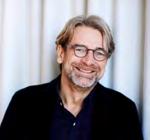
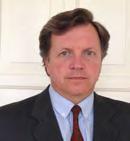

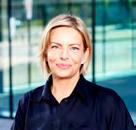

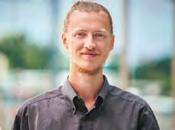

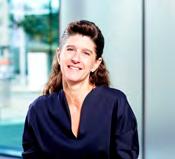

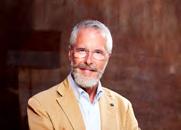
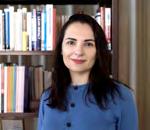
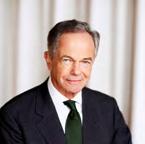
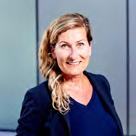

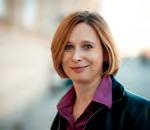
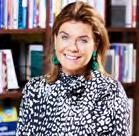




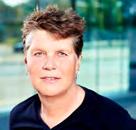


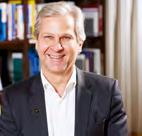
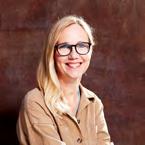

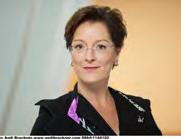




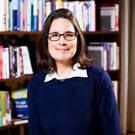
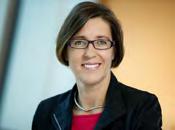
(as at 31 Dec 2022)
Supervisory Board
Andreas Treichl, Chair
Manfred Wimmer, Deputy Chair
Bettina Breiteneder
Maximilian Hardegg
Barbara Pichler
Johanna Rachinger
Philipp Thurn und Taxis
Markus Trauttmansdorff
Kurt Zangerle
Barbara Kampits, Assistant to the Chair of the Supervisory Board
Managing Board
Boris Marte, CEO
Wolfgang Schopf, Deputy CEO, CFO
Eva Höltl
Martin Wohlmuth
Franz Karl Prüller, Senior Advisor to the Board
Susanne Schaller, Assistant to the Board
Project Management
Yana Barinova, Project Manager European Policies and Ukraine
Ursula Dechant, Grant Manager
Hedvig Morvai, Director Strategy and Europe
Barbora Orlíková, Project Coordinator
Marianne Schlögl, Manager Strategic Partnerships
Nicole Traxler, Project Manager Social Innovation
Heide Wihrheim, Project Manager
ERSTE Foundation Library
Jutta Braidt, Head
Communications
Maribel Königer, Director of Communications, Journalism and Media
Miroslava Krása, Communications Specialist
Gerald Radinger, Communications Expert
Jovana Trifunović, Communications Expert
Finance, Law & Organisation
Sabine Altmann, Office Manager
Simona Rhomberg, Counsel
Johannes Steiner, Office Manager
Ľubica Vopičková, IT Coordinator and Accounting Administrator
Eva Zalesky, Board Meeting Manager
Publisher
DIE ERSTE österreichische SparCasse Privatstiftung
Am Belvedere 1, 1100 Vienna, Austria office@erstestiftung.org www.erstestiftung.org
Editors
Maribel Königer (editorinchief), Sarah Hayes, Miroslava Krása, Gerald Radinger, Jovana Trifunović
Authors
Jutta Braidt, Amanda Coakley, Silvia Eiblmayr, Eva Höltl, Maribel Königer, Olivia Lazard, Boris Marte, Zoran Nechev, Oana Popescu, Franz Karl Prüller, Wojciech Przybylski, Kathrin Rhomberg, Christian Seiler, Andreas Treichl, Jovana Trifunović, Martin Wohlmuth, Valbona Zeneli
Artistic Contribution
Alevtina Kakhidze
Visual Concept
EnGarde: Thomas Kloyber, Lini Taschner
Illustrations
Thomas Kloyber, Norma Nardi, Lini Taschner
Cover Illustration: Midjourney (prompt: a pattern with flowers, colours red, blue, pink, embroidered on black fabric ar 2:3)
Proofreading and Translations
Barbara Maya, Douglas Fox, Communicate for you
Photos, if not marked differently: © ERSTE Foundation
© ERSTE Foundation, Vienna 2023
